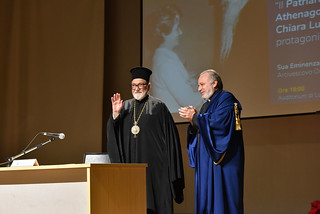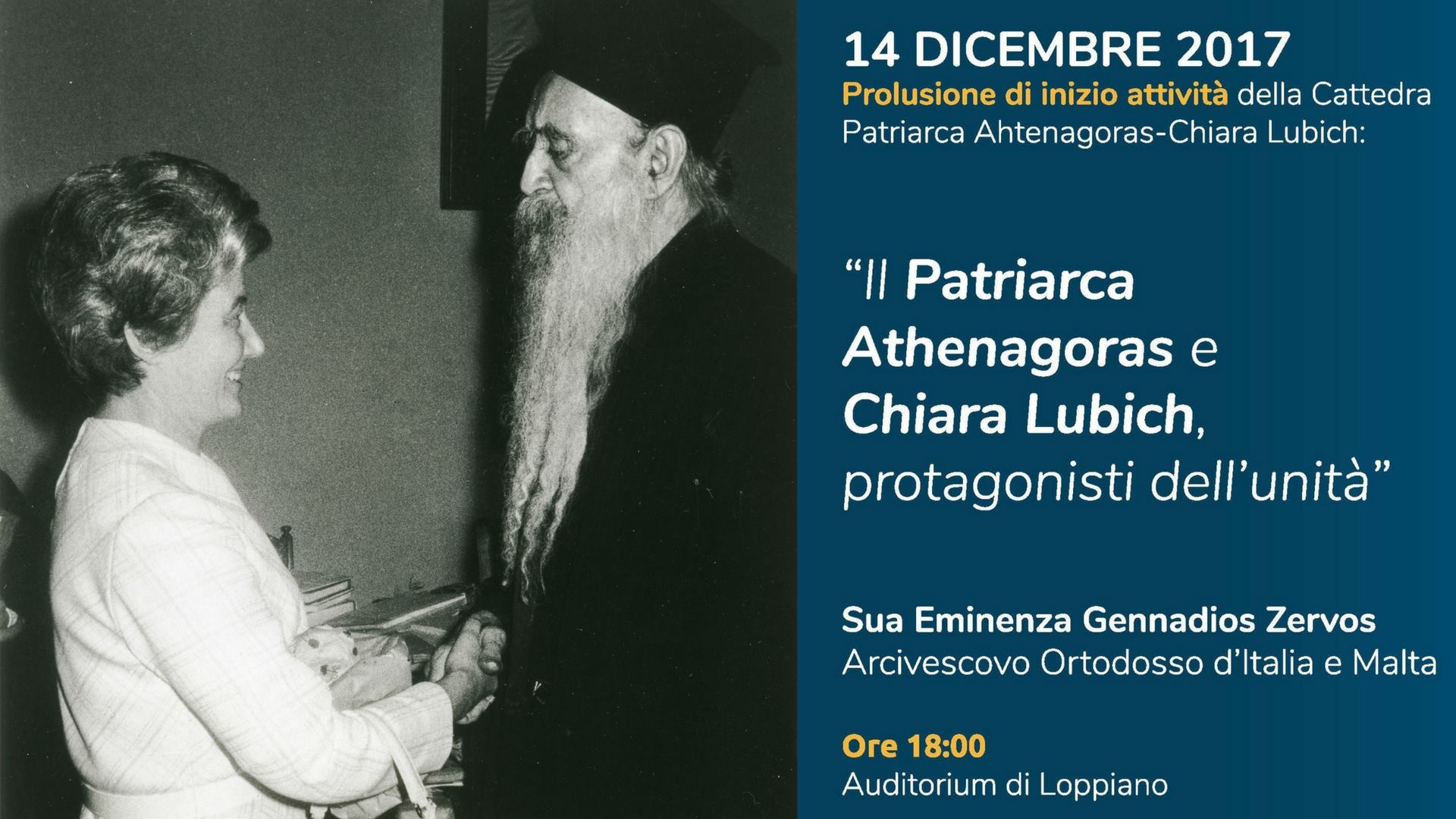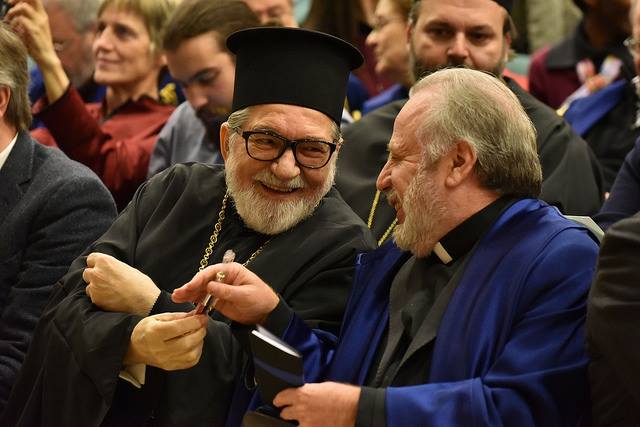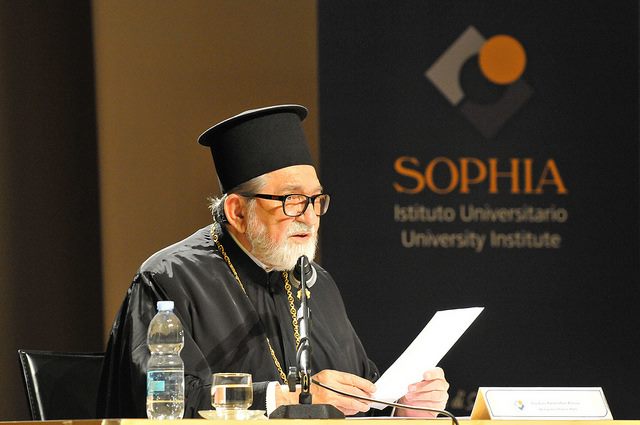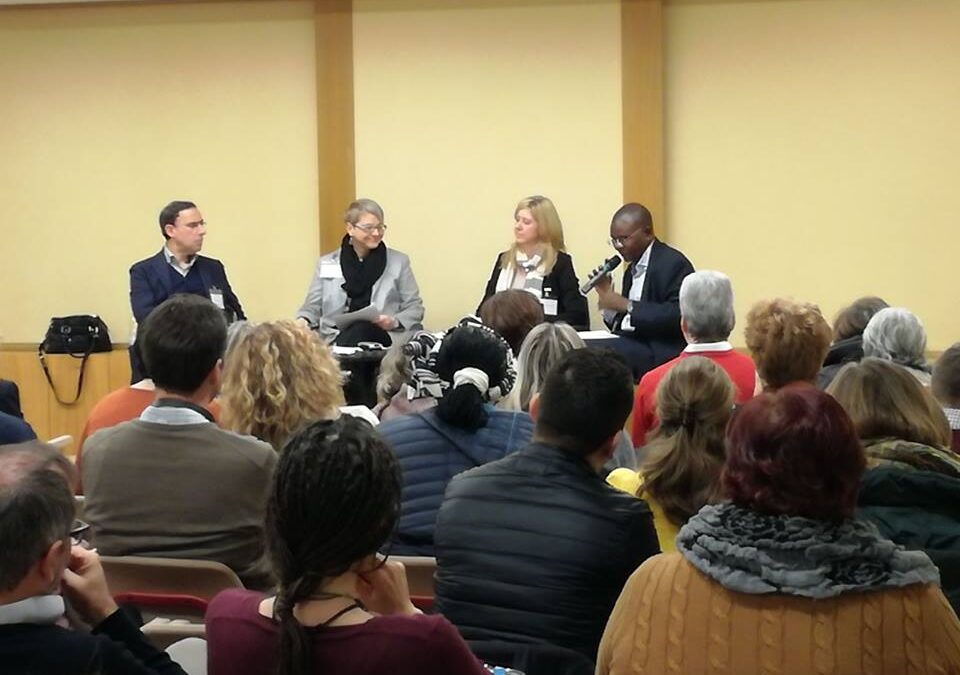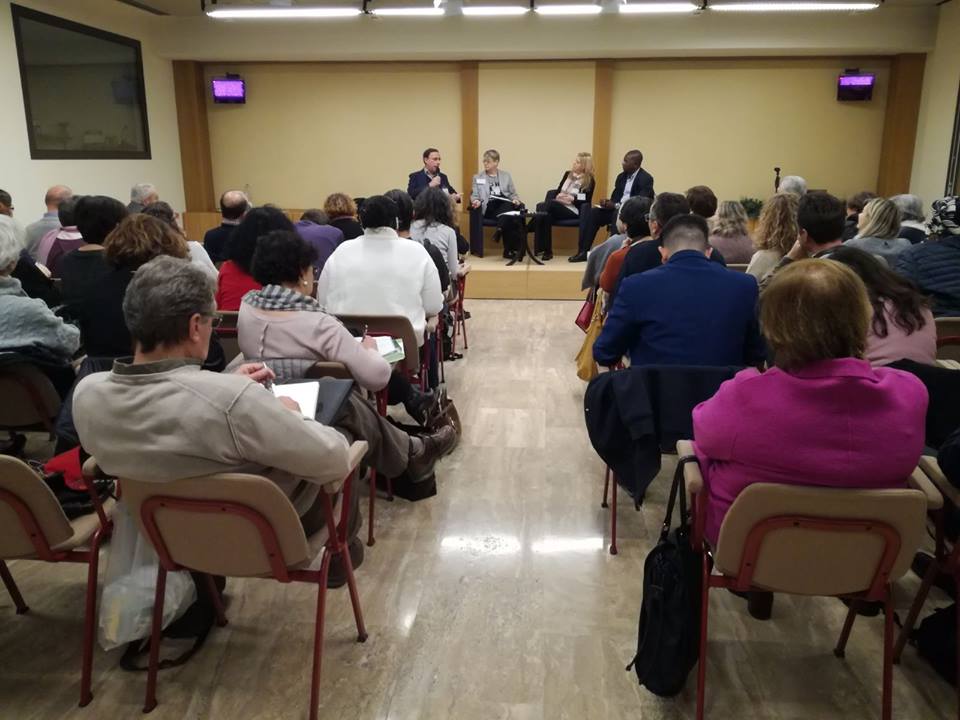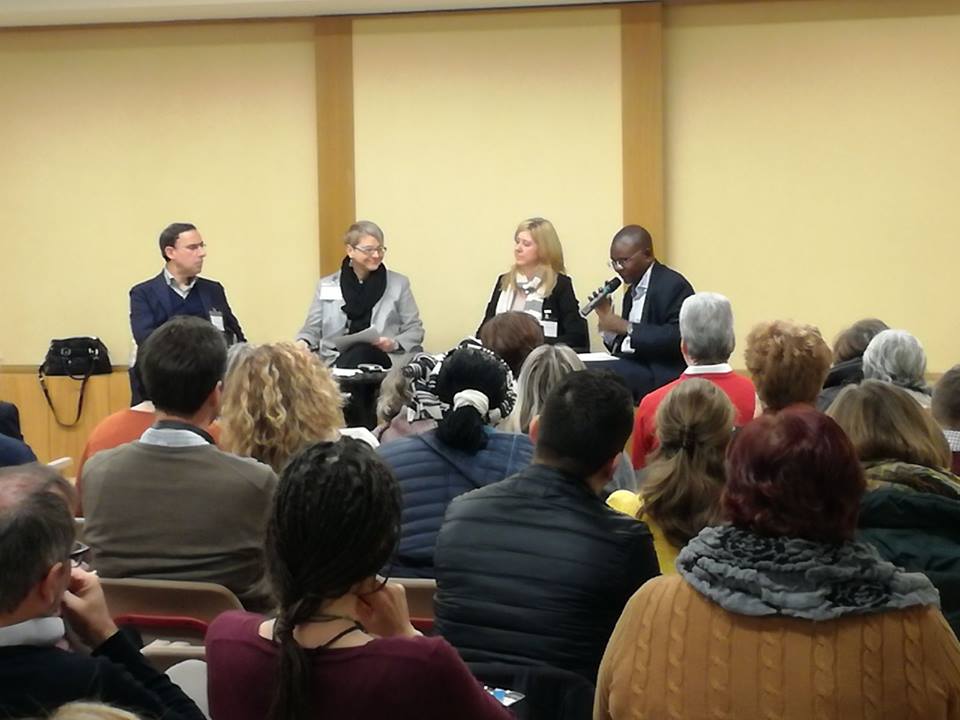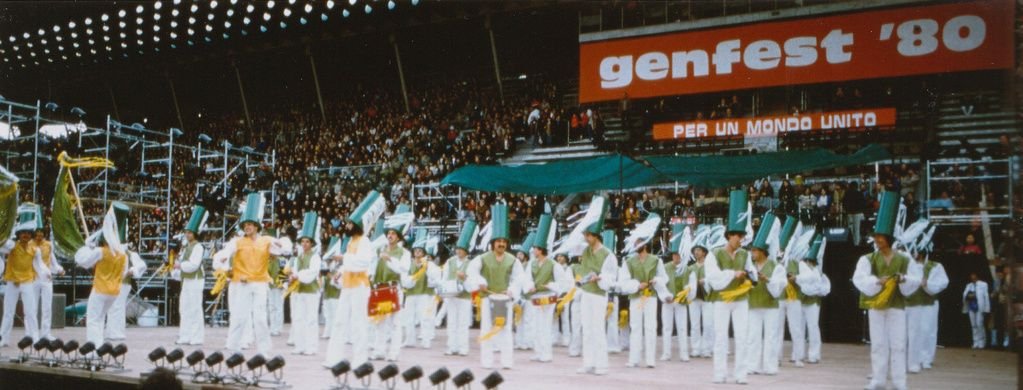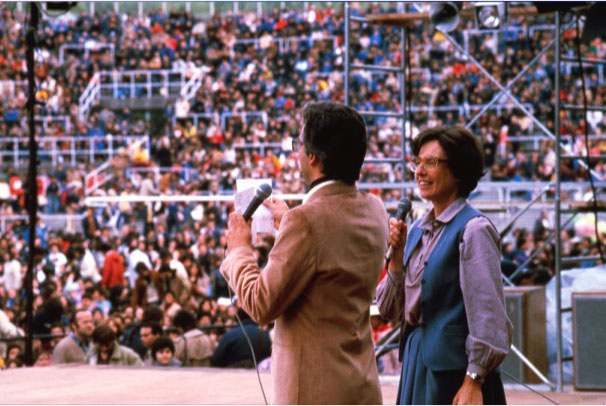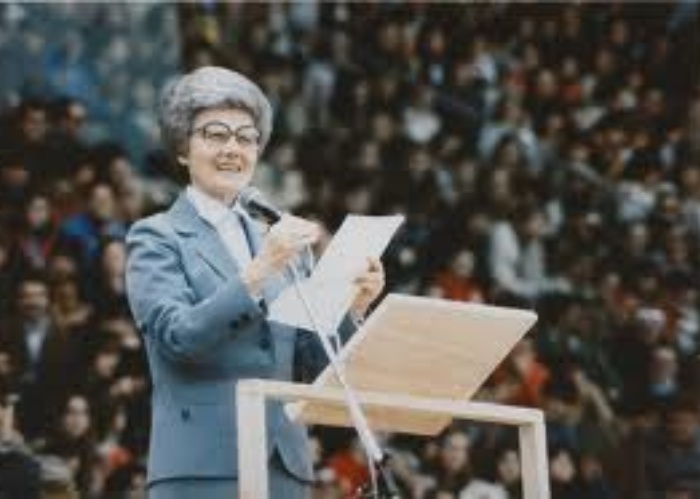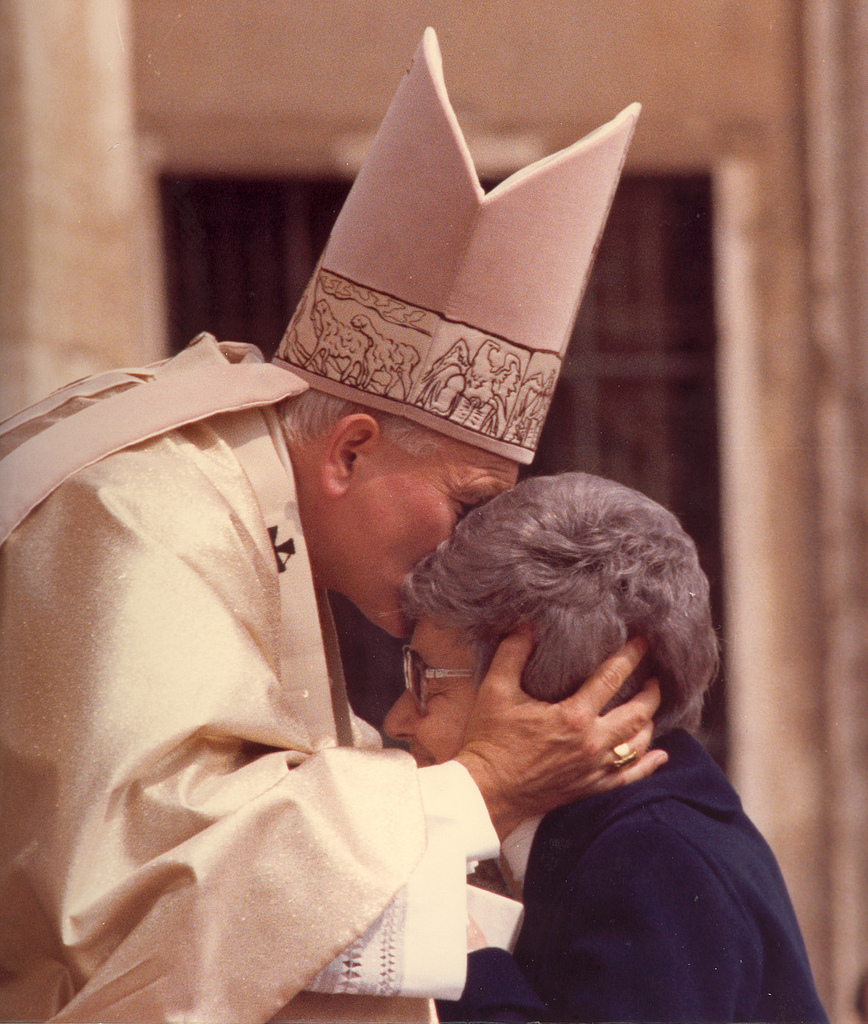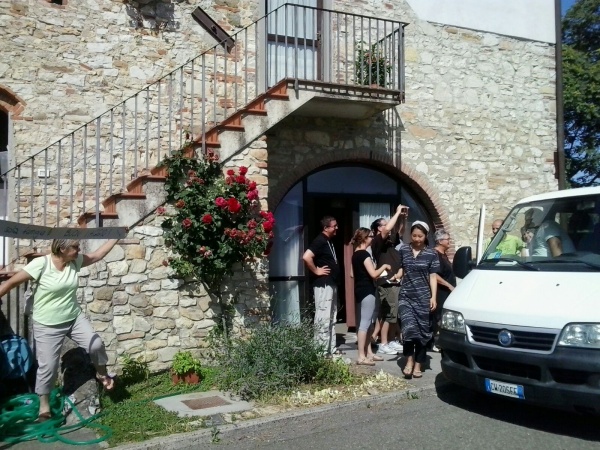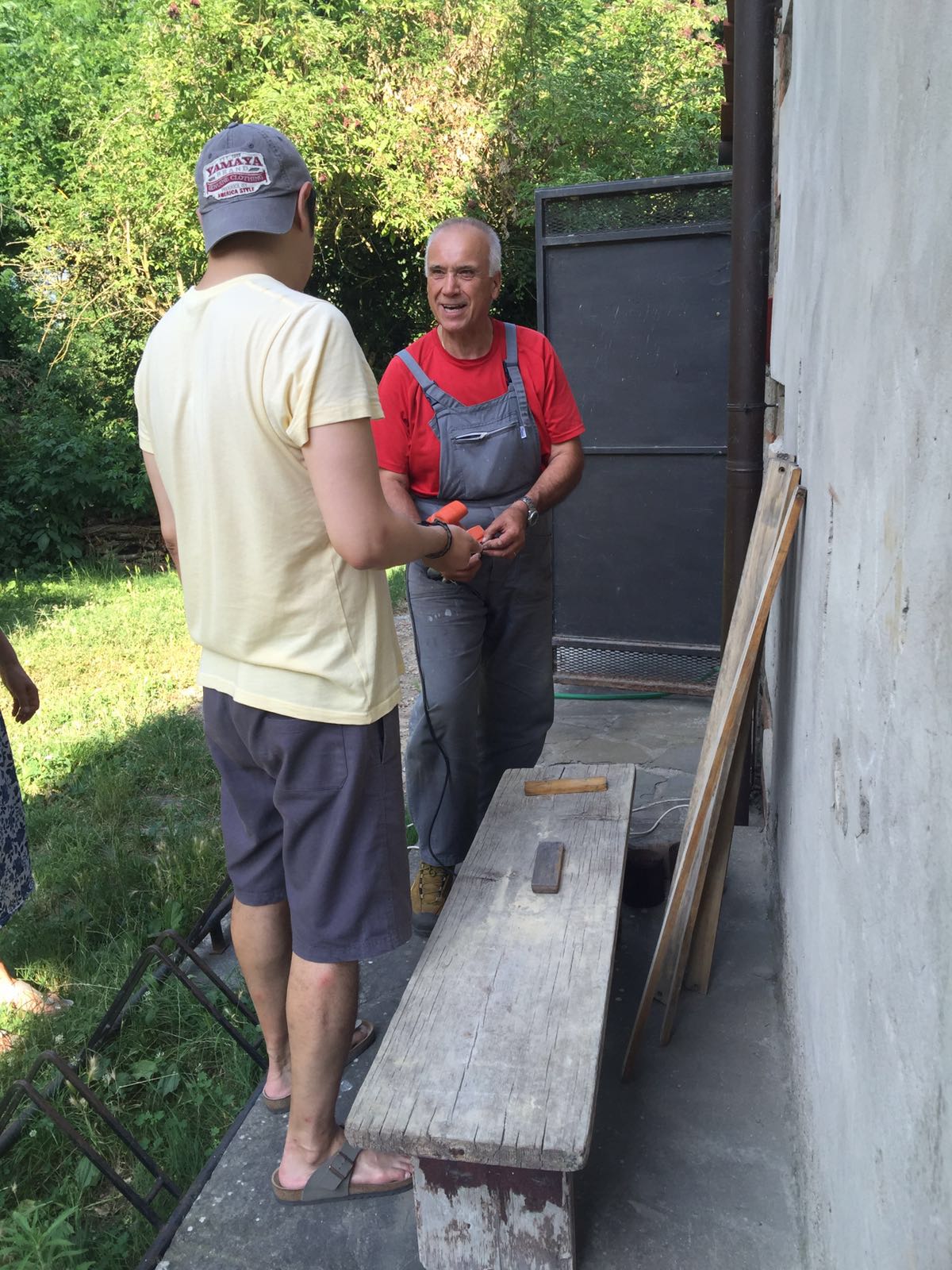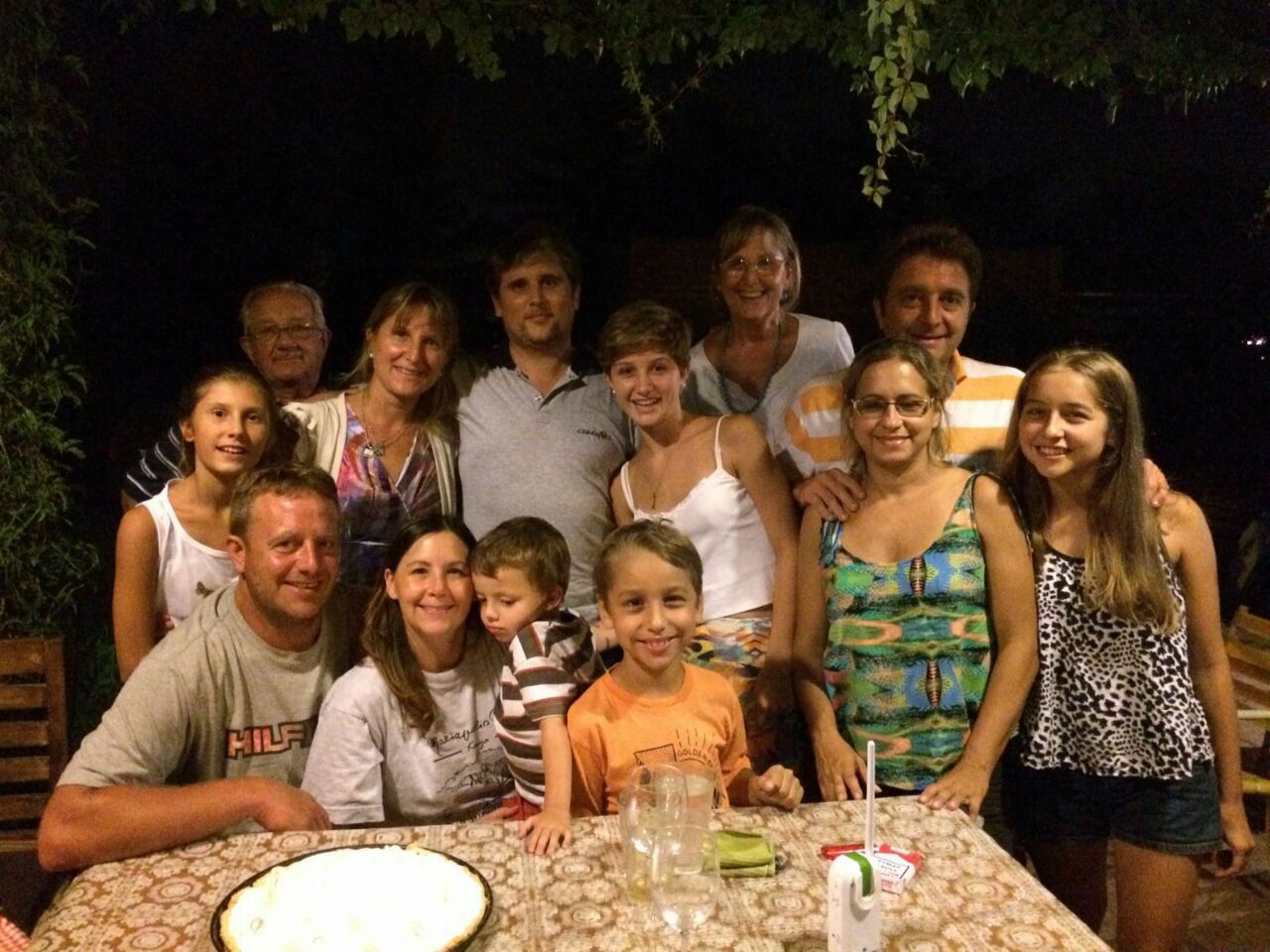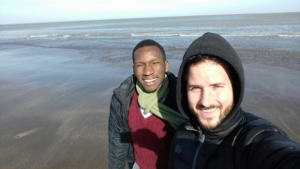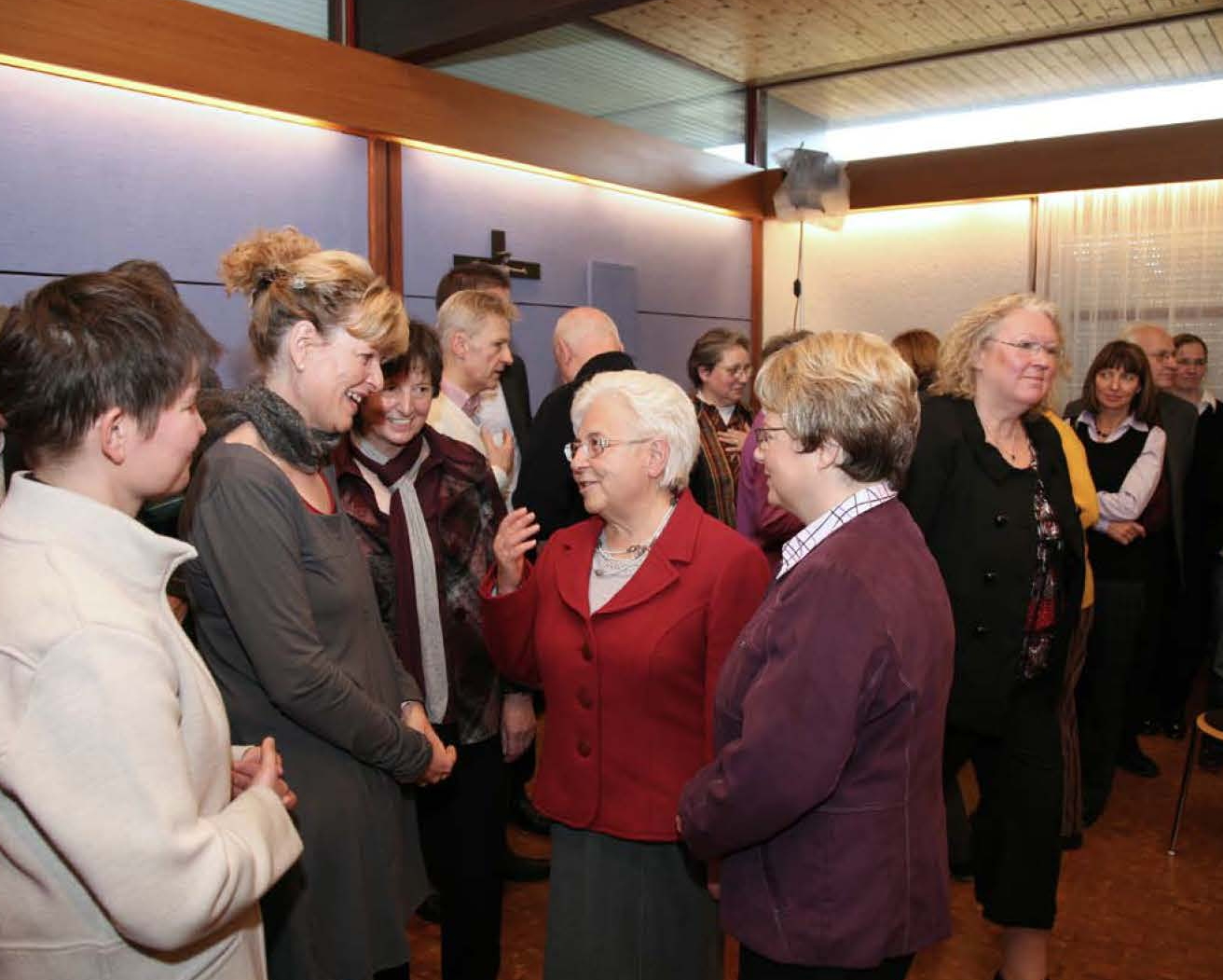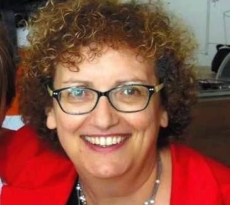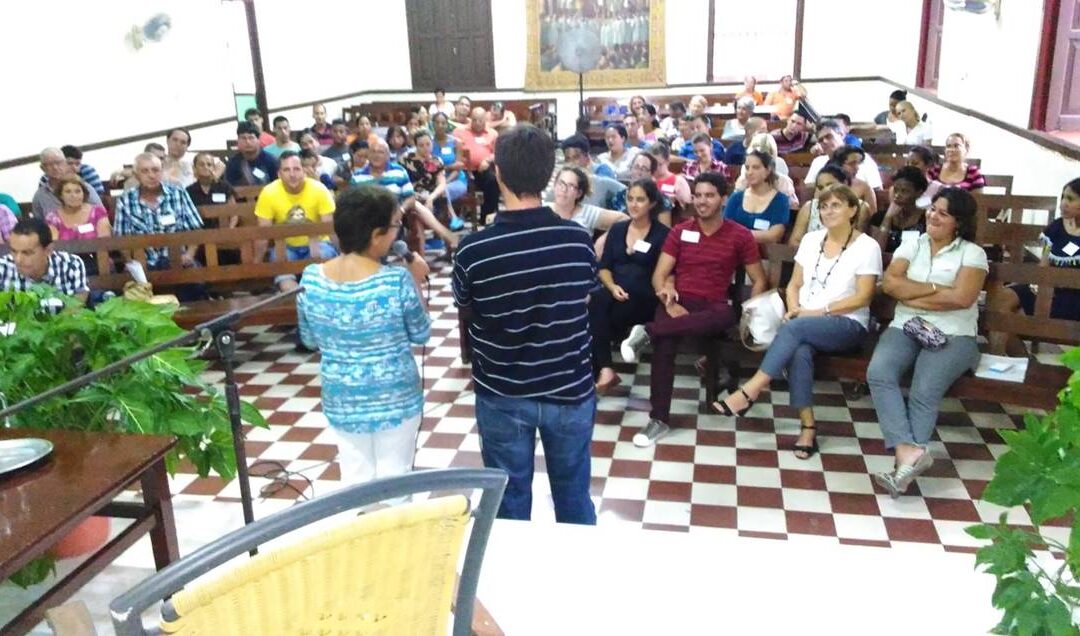
At the Heart of the Caribbean
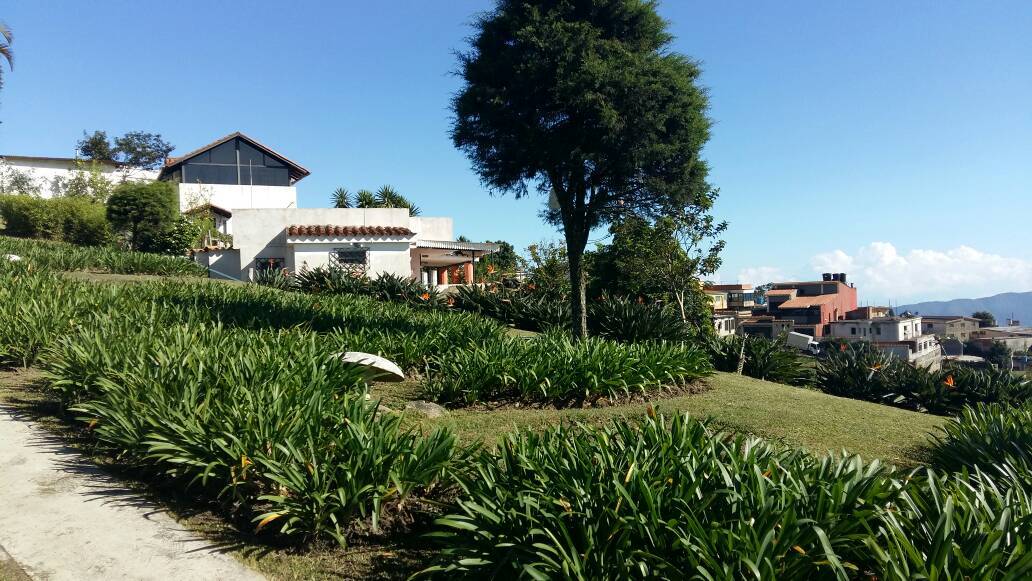 Ongoing emergencies, but also much solidarity and desire to get things going again. It is a difficult socio-political scene in Venezuela: soaring inflation, the persistent increase in the number of people living in extreme poverty, the lack of basic human necessities, and violent clashes. In Cuba and Puerto Rico, recontstruction has been hard because of the exodus of thousands of people, and the lack of electricity and drinking water. Yet, in the midst of it all, the vitality of the Caribbean people and the will to begin again has never faded. María Augusta and José Juan, from the Focolare community in the Carribean region report: “The general situation in Venezuela is quite painful, because of the lack of food and medicines, and also because of the growing uncertainty and helplessness and the continuing exodus of the people who are leaving the country. The list of our friends who have already left and of others who are attempting to leave, is long. In spite of this we have to “stay” at the foot of the cross, in the midst of much suffering, in the hope of a resurrection. But we can already see the Resurrection happening in many people, in their depth and in the Christian solidarity that animates them.”
Ongoing emergencies, but also much solidarity and desire to get things going again. It is a difficult socio-political scene in Venezuela: soaring inflation, the persistent increase in the number of people living in extreme poverty, the lack of basic human necessities, and violent clashes. In Cuba and Puerto Rico, recontstruction has been hard because of the exodus of thousands of people, and the lack of electricity and drinking water. Yet, in the midst of it all, the vitality of the Caribbean people and the will to begin again has never faded. María Augusta and José Juan, from the Focolare community in the Carribean region report: “The general situation in Venezuela is quite painful, because of the lack of food and medicines, and also because of the growing uncertainty and helplessness and the continuing exodus of the people who are leaving the country. The list of our friends who have already left and of others who are attempting to leave, is long. In spite of this we have to “stay” at the foot of the cross, in the midst of much suffering, in the hope of a resurrection. But we can already see the Resurrection happening in many people, in their depth and in the Christian solidarity that animates them.”  Ofelia from the Venezuelan community recounts: “It’s not easy to find answers to the problems we’re facing, like the lack of food, clothing and medicines. But we have Jesus’s words alive in our hearts: ‘Give and there will be gifts for you’, which we can live one day at a time. If someone doesn’t have food to eat, we can share a package of rice or medicine and all the things that we receive in thousands of ways. Each of us thinks of the other, life circulates and the community grows. In the midst of the violence and uncertainty, the presence of Jesus among us is like a flame that attracts and gives hope.” María Augusta e José Juan are always the ones to report on Cuba: “Last weekend a Mariapolis was held in Santiago with around 200 people, a sign of hope that continues to rise in the midst of the many difficulties that everyone has to face.” And from the community in Puerto Rico: “As you know, they have been living through truly tragic months due to the devastating effects of the hurricaine which destroyed the island. Very touching testimonies of Gospel love continue to arrive.” Here are a few: “Fifty six days without water, and electricity for only 30 minutes a day. It’s not easy to work in the office with the intense heat, but we do it! The flashlight provides a bit of light, the water bottles can be left in the afternoon sun, so that one has a bit of warm water to bathe with. For the heat, a hand fan or spray bottle of water and alcohol can provide some refreshment…” “Some young people from the Movement and the Inmaculado Corazón de María Parish in Patillas, along with some students from Saint Ignatius College have distributed rations to the needy – 237 sacks of food in all.” “My experience at Palma Sola was quite hard because of the destruction and lack of everything. Offering my service, with my entire family, was the most beautiful thing I’ve ever done in my life.” “We always have something to give, evaluating what we really need and offering the rest to the people who are more in need.” “We went to the Recio community in the Guardarraya di Patillas barrio. It was hard to get there because of the condition of the roads after the hurricaine. Beginning from the outskirts where there was total devastation, we found elderly people with tired and discouraged expressions, people with asthma problems, ulcers on their legs, diabetics (and the problem of finding a way to conserve the insulin without electricity), people suffering from high blood pressure… One boy had a skin allergy. We made an attempt to use the old community aquaduct to make up for the lack of water.” “In Gurabo we were able to know our neighbours better by helping them in their need.” “Carrying on and getting on our feet again doesn’t only depend on the government, nor the military, nor help from abroad. It also depends on us, on me, on you. Together, we’ll get it done!”
Ofelia from the Venezuelan community recounts: “It’s not easy to find answers to the problems we’re facing, like the lack of food, clothing and medicines. But we have Jesus’s words alive in our hearts: ‘Give and there will be gifts for you’, which we can live one day at a time. If someone doesn’t have food to eat, we can share a package of rice or medicine and all the things that we receive in thousands of ways. Each of us thinks of the other, life circulates and the community grows. In the midst of the violence and uncertainty, the presence of Jesus among us is like a flame that attracts and gives hope.” María Augusta e José Juan are always the ones to report on Cuba: “Last weekend a Mariapolis was held in Santiago with around 200 people, a sign of hope that continues to rise in the midst of the many difficulties that everyone has to face.” And from the community in Puerto Rico: “As you know, they have been living through truly tragic months due to the devastating effects of the hurricaine which destroyed the island. Very touching testimonies of Gospel love continue to arrive.” Here are a few: “Fifty six days without water, and electricity for only 30 minutes a day. It’s not easy to work in the office with the intense heat, but we do it! The flashlight provides a bit of light, the water bottles can be left in the afternoon sun, so that one has a bit of warm water to bathe with. For the heat, a hand fan or spray bottle of water and alcohol can provide some refreshment…” “Some young people from the Movement and the Inmaculado Corazón de María Parish in Patillas, along with some students from Saint Ignatius College have distributed rations to the needy – 237 sacks of food in all.” “My experience at Palma Sola was quite hard because of the destruction and lack of everything. Offering my service, with my entire family, was the most beautiful thing I’ve ever done in my life.” “We always have something to give, evaluating what we really need and offering the rest to the people who are more in need.” “We went to the Recio community in the Guardarraya di Patillas barrio. It was hard to get there because of the condition of the roads after the hurricaine. Beginning from the outskirts where there was total devastation, we found elderly people with tired and discouraged expressions, people with asthma problems, ulcers on their legs, diabetics (and the problem of finding a way to conserve the insulin without electricity), people suffering from high blood pressure… One boy had a skin allergy. We made an attempt to use the old community aquaduct to make up for the lack of water.” “In Gurabo we were able to know our neighbours better by helping them in their need.” “Carrying on and getting on our feet again doesn’t only depend on the government, nor the military, nor help from abroad. It also depends on us, on me, on you. Together, we’ll get it done!”
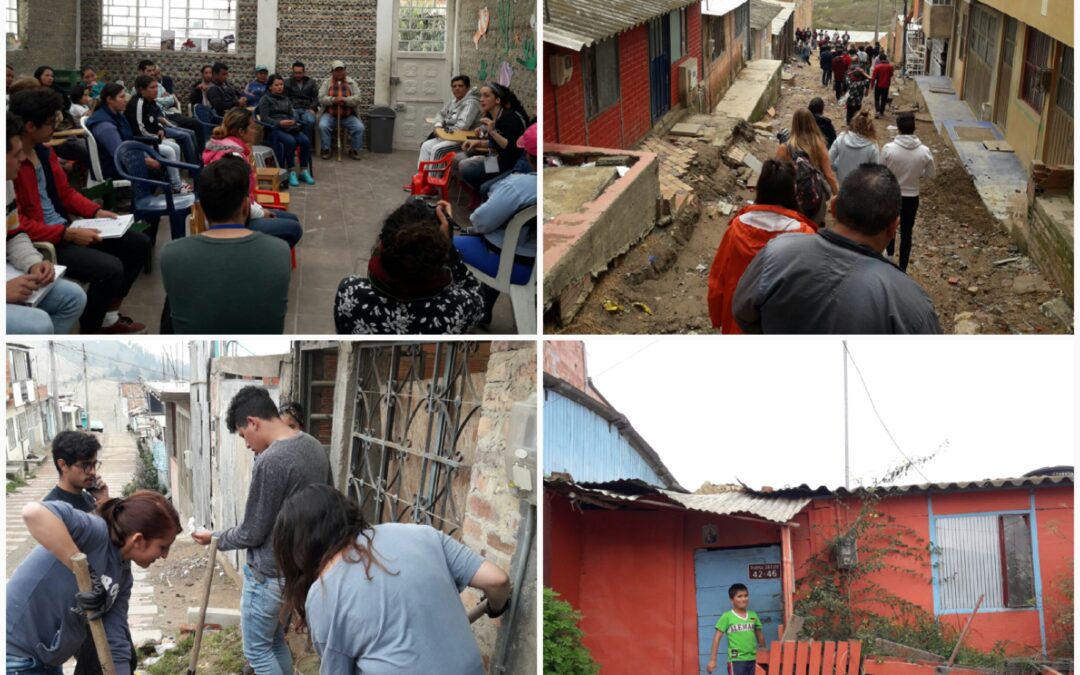
Travelling is the method and location is the classroom
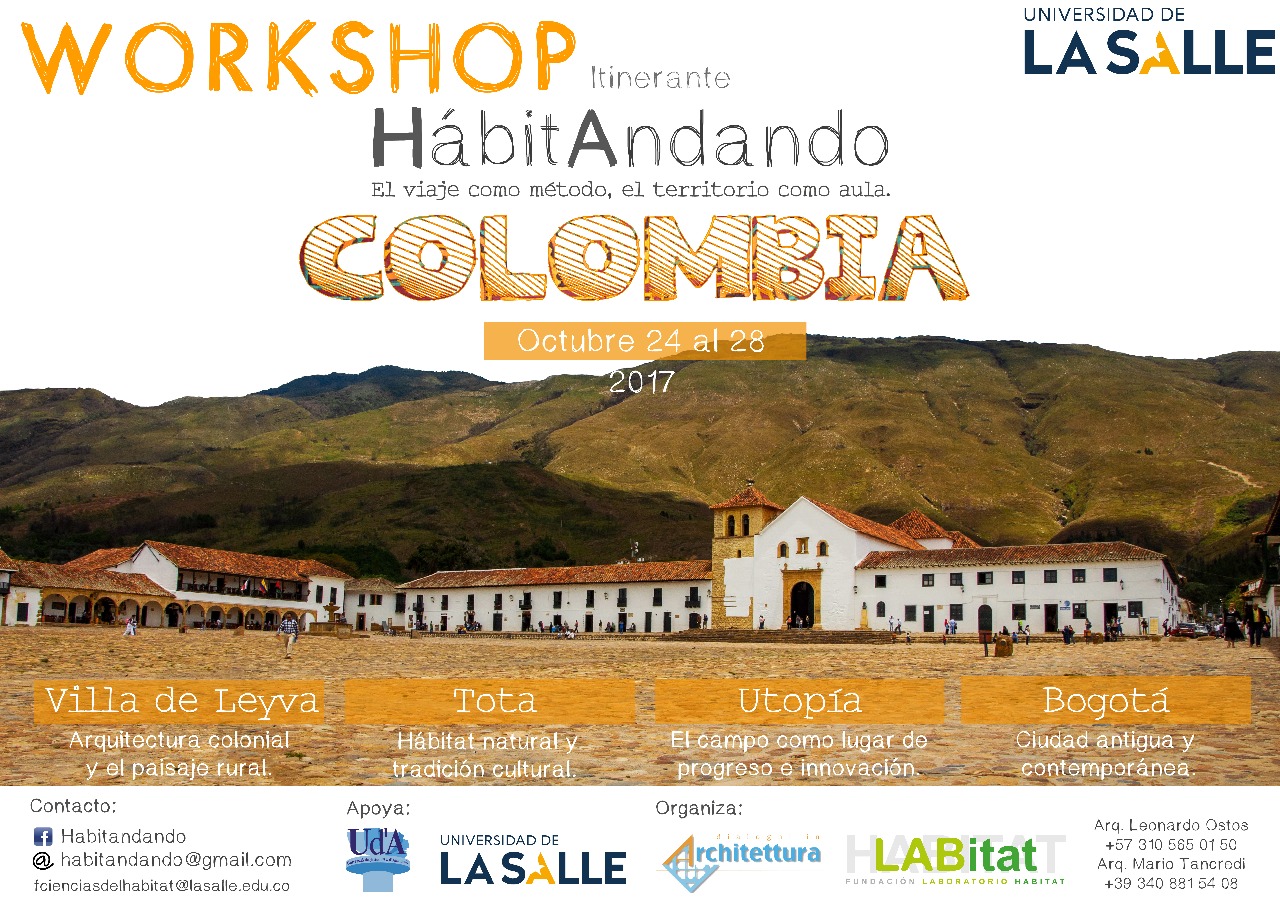 The trip, which is organized by the international Dialogue in Architecture network and the La Salle University of Bogota, isn’t tourism, but an experience of living together, getting to know places, cultures, businesses and associations. The departure was from Bogota, south of the city. The puzzled looks on the faces of the Italians showed that they had to “shift their gaze” in order to place themselves with their heart and mind in this land of many contrast and with a different relationship to the environment. We passed over the eastern Cordillera and reach Villanueva, a colonial town in the mountains where time seemed to have stood still. We helped out in an earthquake evacuation drill as we gathered in square with the locals, which allowed us to share in this communitarian moment with them. The journey continued along a long downhill road that twisted through tunnels and led to the discovery of the intense green of the mountains and fabulous landscape views. We reached the port of Llano, Villavicencio. The temperature was hot, just like the warmth of the people we me. A majestic tree shaded us from the sun. We got back on the road and passed through el llano, a vast expanse of land. Here we visited the l’Università Unitrópico, which has begun an interdisciplinary course on social architecture.
The trip, which is organized by the international Dialogue in Architecture network and the La Salle University of Bogota, isn’t tourism, but an experience of living together, getting to know places, cultures, businesses and associations. The departure was from Bogota, south of the city. The puzzled looks on the faces of the Italians showed that they had to “shift their gaze” in order to place themselves with their heart and mind in this land of many contrast and with a different relationship to the environment. We passed over the eastern Cordillera and reach Villanueva, a colonial town in the mountains where time seemed to have stood still. We helped out in an earthquake evacuation drill as we gathered in square with the locals, which allowed us to share in this communitarian moment with them. The journey continued along a long downhill road that twisted through tunnels and led to the discovery of the intense green of the mountains and fabulous landscape views. We reached the port of Llano, Villavicencio. The temperature was hot, just like the warmth of the people we me. A majestic tree shaded us from the sun. We got back on the road and passed through el llano, a vast expanse of land. Here we visited the l’Università Unitrópico, which has begun an interdisciplinary course on social architecture. 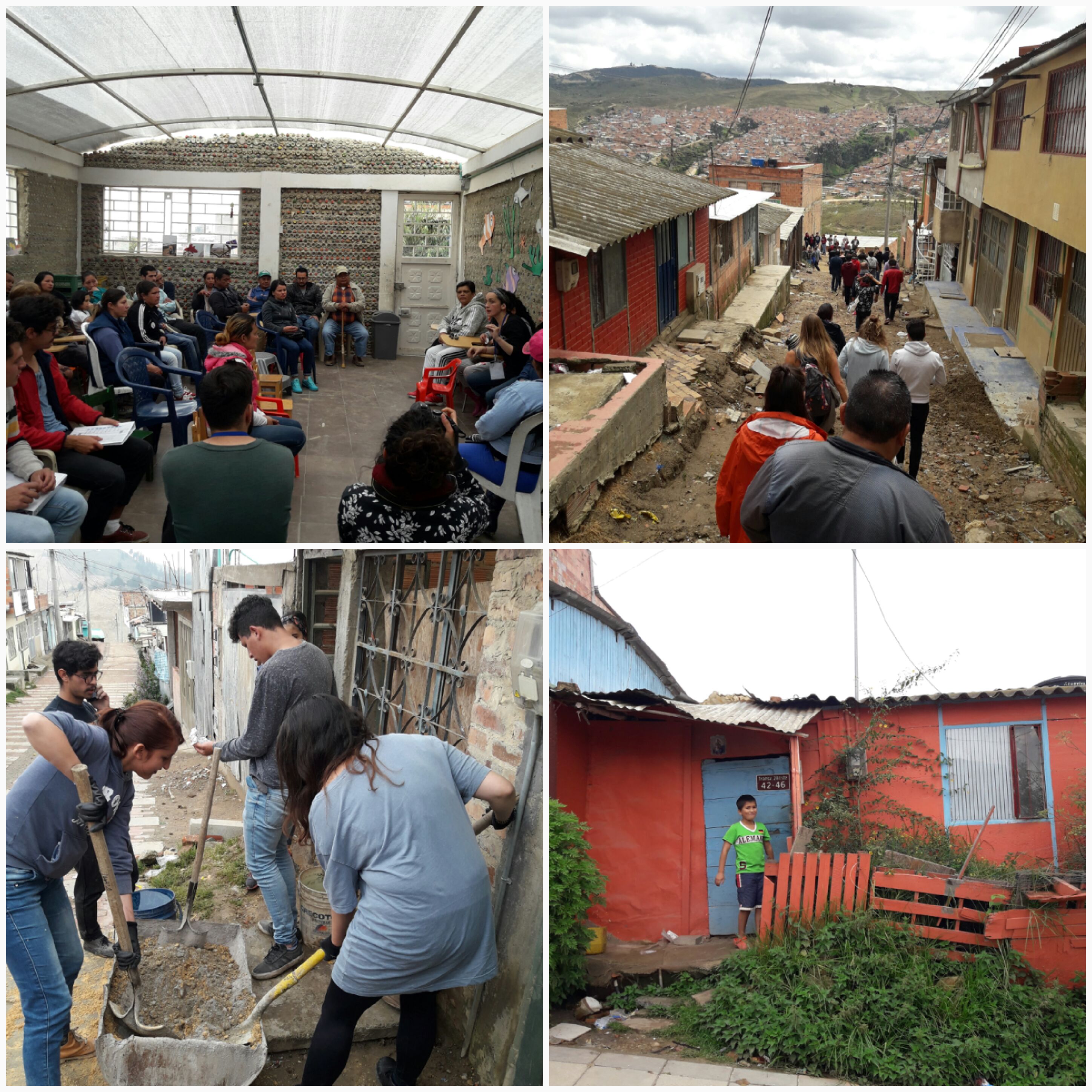 As in all Latin American countries, the architecture in Colombia is an expression of local society and emerges from the relationships with the communities. La Salle’s University’s Utopia Campus can be found in the region of Yopal, a place for young people who come from the rural regions and are often the victims of guerrilla violence. The course provides them with a work-study program that allows them to earn a diploma in Agrarian Sciences, and the possibility to get a job. It’s a concrete peace education experiment that seems to be working. We were halfway through our trip and after a delicious local style breakfast, we headed towards the colonial villages of Mongu and Tunja, Colombia’s original capital. In the grand colonial plazas, like Villa de Lyva, we came face to face with the indigenous populations who convey their strong identity which today is well integrated with their local colonial architecture. We returned to Bogotá in the North. The impact is almost stronger than in the south. We drove through the wealthiest zone that has its houses all surrounded by security walls. The experience continued with the workshop organized by the Urban Observatory of La Salle University on the Altos de Cazucá where we stayed for a week, getting to know families, enjoying their food and sleeping in their homes. It had a strong impact on us. We were in the company of university students from Germany, Bogotá and Yopal. There the poverty level is quite high, but the solidarity and kinds of relationships that exist showed us the real identity of this place. The work experience was quite new to us! We had to finish the exterior work on several houses: gardens, paint work, equipping a library and designing murals that depict the life of the community. An entire family was represented by birds, among them a son who was murdered by local delinquents, a sorrow we shared with them. One of the young people from the neighbourhood said to us: “We’ve worked together and made our neighbourhood beautiful now. We’ll carry on, finishing the roads.” Their gazes penetrated our hearts, and we felt great enthusiasm and hope. The intercultural exchange was real, a true enrichment when doing architecture together. Offering one’s talents as an architect can help to reconstruct the social fabric by providing spaces that help to preserve and grow the identity of a place together with its community.
As in all Latin American countries, the architecture in Colombia is an expression of local society and emerges from the relationships with the communities. La Salle’s University’s Utopia Campus can be found in the region of Yopal, a place for young people who come from the rural regions and are often the victims of guerrilla violence. The course provides them with a work-study program that allows them to earn a diploma in Agrarian Sciences, and the possibility to get a job. It’s a concrete peace education experiment that seems to be working. We were halfway through our trip and after a delicious local style breakfast, we headed towards the colonial villages of Mongu and Tunja, Colombia’s original capital. In the grand colonial plazas, like Villa de Lyva, we came face to face with the indigenous populations who convey their strong identity which today is well integrated with their local colonial architecture. We returned to Bogotá in the North. The impact is almost stronger than in the south. We drove through the wealthiest zone that has its houses all surrounded by security walls. The experience continued with the workshop organized by the Urban Observatory of La Salle University on the Altos de Cazucá where we stayed for a week, getting to know families, enjoying their food and sleeping in their homes. It had a strong impact on us. We were in the company of university students from Germany, Bogotá and Yopal. There the poverty level is quite high, but the solidarity and kinds of relationships that exist showed us the real identity of this place. The work experience was quite new to us! We had to finish the exterior work on several houses: gardens, paint work, equipping a library and designing murals that depict the life of the community. An entire family was represented by birds, among them a son who was murdered by local delinquents, a sorrow we shared with them. One of the young people from the neighbourhood said to us: “We’ve worked together and made our neighbourhood beautiful now. We’ll carry on, finishing the roads.” Their gazes penetrated our hearts, and we felt great enthusiasm and hope. The intercultural exchange was real, a true enrichment when doing architecture together. Offering one’s talents as an architect can help to reconstruct the social fabric by providing spaces that help to preserve and grow the identity of a place together with its community.
Human Rights Day
December 11, 1948 was universally proclaimed Human Rights Day. Since then, on the same day every year this Declaration is commemorated, as adopted by the Human Rights Commission of the U.N. headed in those times by Eleanor Roosevelt, wife of the United States President, Franklin D. Roosevelt, to call attention to the importance and defense of the dignity of the human person. The document is a sort of censorship between the era prior to 1948, in which the indignation for the iniquities of the world was entrusted to some sporadic event, and the following era in which for the first time, the need to counter inequality in all the States of the world was firmly recognised. The recognition of the validity of such a Charter and the literal application of the 30 articles, would obliterate the following from our corrupt society: slavery, torture, racism, violence of all sorts, abuse of minors, man’s exploitation of man, and also impoverishment, abuse and pollution of environmental resources.
An essential feature of true fraternity
In the modern world, obedience is no longer appreciated for what it truly is. The appeal for liberty, equality and fraternity proclaimed during the French Revolution is reflected daily in our newspapers, our homes and streets and even in our parishes, convents and monasteries. … It follows that we often find in our subconscious a veiled sense of distrust concerning this precious virtue, almost as if it were in opposition to the discovery that the Gospel makes us all brothers and sisters in Christ. … Obedience does not imply abdicating our own personality or an inhuman humiliation. Quite the opposite, it helps us be truly ourselves and develop our personality, because it puts us in a social context that is essential, from both a human and a divine point of view, to the true manifestation of our skills. When the will of those who are my legitimate superiors in civil or ecclesiastical governance tells me what to do or what to avoid, even if it contrasts with my projects and ideas, it always raises me up to a broader and more general level, the level of the common good. The sense of hindrance and resistance that I feel, due to this contrast, is the contribution I must make to being raised up. It is then that I become more fully human. The more I find myself united with others, the more I discover we are brothers and sisters. This fraternity is the outcome of fellowship. Far from being in contrast to fraternity, obedience becomes an indispensable means for creating it. … Often, when speaking of this virtue, people talk only of its ascetic side, the progress made by someone who renounces their own will, the freedom from their passions that they acquire, and so on. This is of course true, but obedience gives us something better still. It makes us mystical sharers in Christ’s humanity and allows us to experience the mind of Christ in our lives (cf. Phil 2:5) Mary is the perfect model of this inner obedience. We see this in her reply to the Angel Gabriel, “Here am I, the servant of the Lord”, and when she travelled to Bethlehem following the edict put out by the Roman Emperor. We see it in her “haste” to go and help Elizabeth after she had the inspiration to do so, and when she asked Jesus for a miracle during the wedding feast at Cana. We see it on Calvary, when she gave up the Son of God to stay with John, and later when she prayed with the apostles while awaiting the coming of the Holy Spirit. Her life was in continual obedience to God alone, by obeying people and circumstances. By letting Mary live again in us, we will share in her inner depths and her willingness. An example of this was Andrea Ferrari, a focolarino who was dying [after a road accident]. Someone spoke to him about accepting God’s will and he answered with a wittiness that revealed his deep union with God, “We have learned to recognise God’s will always, even in front of a red traffic light”. Translated from: Pasquale Foresi – Parole di Vita [Words of Life] – Città Nuova 1963 – pp 197-8-9-200
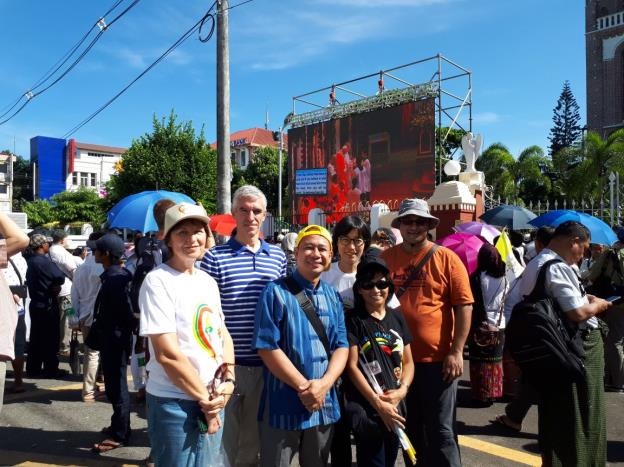
After the Visit of Francis
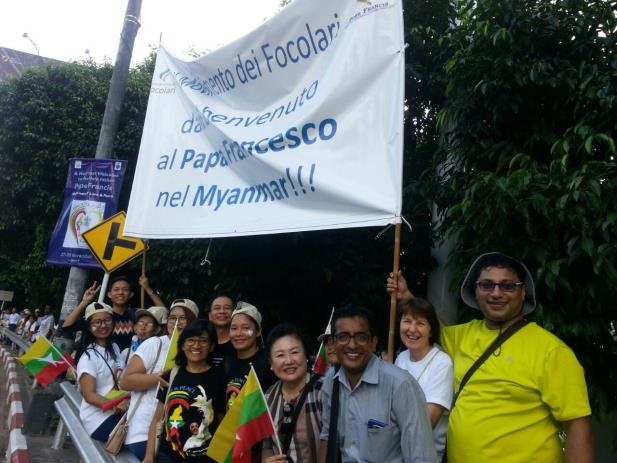 Peace, respect for the dignity of every people, and dialogue were some of the lofty goals left by Pope Francis to the populations he visited during his recent trip in Asia. Testimonies from the Focolare community have begun to arrive from Myanmar in recent days where, together with others, they were involved in taking care of different aspects of the trip – things like translations, maintaining order, health care, and the orchestra. Here are a few of the reports: “Pope Francis’s coming was a dream come true for us. It took a while for the amazement to become conscious awareness of what was really happening.” “The tears streamed down the cheeks of the elderly. But also the youth, for whom it was more difficult to grasp what was taking place, were overjoyed.” The small minority of Catholics in the country felt encouraged: “We were a little flock and isolated. Finally we saw our shepherd up close. These people are no longer on the margins, but under the world spotlight. Finally something happened to be proud of. The Pope is in Myanmar.” “We don’t have to be afraid of anything anymore.”
Peace, respect for the dignity of every people, and dialogue were some of the lofty goals left by Pope Francis to the populations he visited during his recent trip in Asia. Testimonies from the Focolare community have begun to arrive from Myanmar in recent days where, together with others, they were involved in taking care of different aspects of the trip – things like translations, maintaining order, health care, and the orchestra. Here are a few of the reports: “Pope Francis’s coming was a dream come true for us. It took a while for the amazement to become conscious awareness of what was really happening.” “The tears streamed down the cheeks of the elderly. But also the youth, for whom it was more difficult to grasp what was taking place, were overjoyed.” The small minority of Catholics in the country felt encouraged: “We were a little flock and isolated. Finally we saw our shepherd up close. These people are no longer on the margins, but under the world spotlight. Finally something happened to be proud of. The Pope is in Myanmar.” “We don’t have to be afraid of anything anymore.” 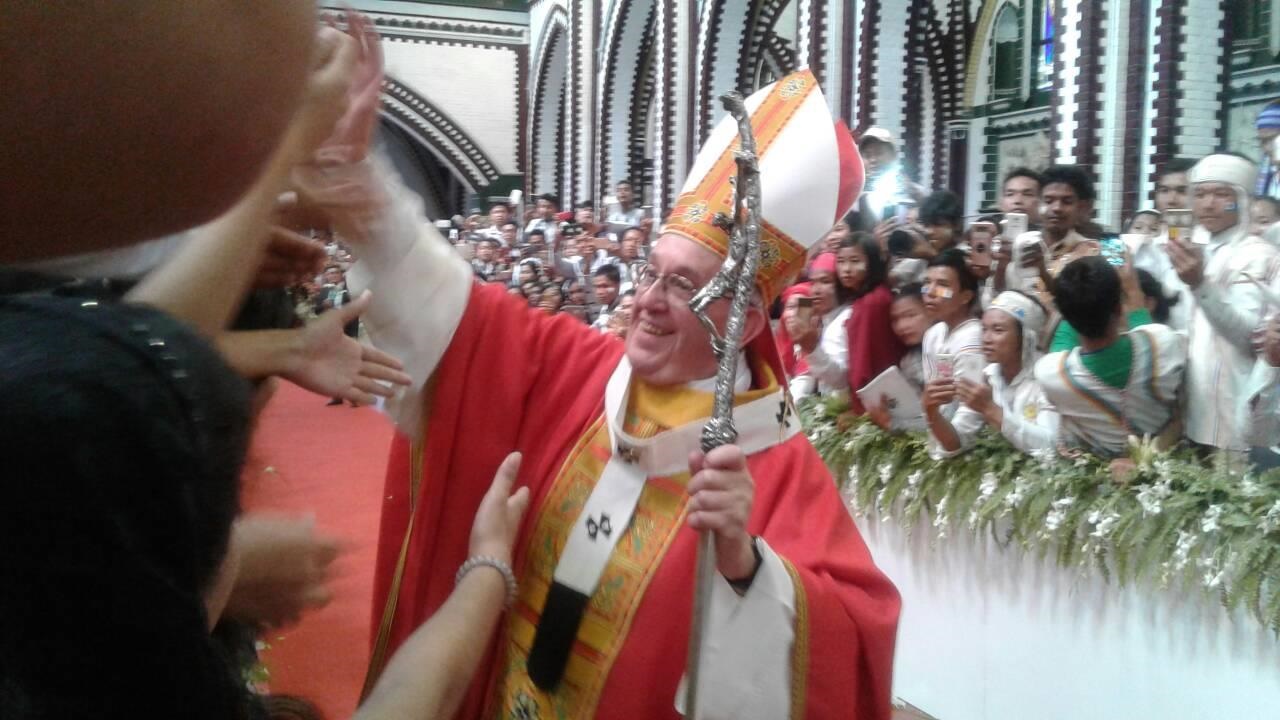 Gennie works with Internally Displaced Persons (IDP), civilians who are forced to escape persecutions and, unlike refugees, haven’t crossed international borders. In the majority of cases, while waiting for a new life, they’re deprived of help and protection. After Pope Francis’s visit, she writes: “Today this hope is renewed. “My own personal hope is in Love, and from now on it will be more and more alive in me.” “On November 28 we left with a group of a hundred people from the farthest villages of the country. We travelled in at least five buses. “The trip was organized by our parish. Seeing the Pope was like a dream for us. We left at nine o’clock in the morning and travelled for ten hours. We were full of enthusiasm, we prayed and sang. We took a short-cut, but it took all of us around twenty hours to get there because we didn’t want to let our friends fall behind and be on their own. But nobody complained about that.”
Gennie works with Internally Displaced Persons (IDP), civilians who are forced to escape persecutions and, unlike refugees, haven’t crossed international borders. In the majority of cases, while waiting for a new life, they’re deprived of help and protection. After Pope Francis’s visit, she writes: “Today this hope is renewed. “My own personal hope is in Love, and from now on it will be more and more alive in me.” “On November 28 we left with a group of a hundred people from the farthest villages of the country. We travelled in at least five buses. “The trip was organized by our parish. Seeing the Pope was like a dream for us. We left at nine o’clock in the morning and travelled for ten hours. We were full of enthusiasm, we prayed and sang. We took a short-cut, but it took all of us around twenty hours to get there because we didn’t want to let our friends fall behind and be on their own. But nobody complained about that.” 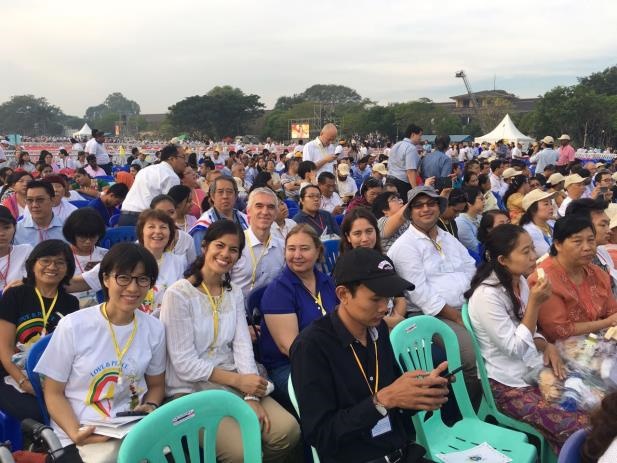 The group reached Kyaikkasan Ground of Yangon at around 5:30 in the morning as Mass was about to begin. It was attended not only by the small Catholic minority, but also by Muslims, Buddhists and faithful of different religions. “Our group couldn’t get in, but we found a spot near one of the entrances. Through the Pope we were able to feel the Church’s love for the smallest flock. You could sense a very strong love also among the whole population, not only among the Christians. Our taxi driver told us that he had been driving people for free to the stadium since early morning, and that the public trains were doing the same.” One Buddhist youth, who had just attended the Mass, wrote: “Here too I felt I was in a family. I notice a deep peace in my heart.”
The group reached Kyaikkasan Ground of Yangon at around 5:30 in the morning as Mass was about to begin. It was attended not only by the small Catholic minority, but also by Muslims, Buddhists and faithful of different religions. “Our group couldn’t get in, but we found a spot near one of the entrances. Through the Pope we were able to feel the Church’s love for the smallest flock. You could sense a very strong love also among the whole population, not only among the Christians. Our taxi driver told us that he had been driving people for free to the stadium since early morning, and that the public trains were doing the same.” One Buddhist youth, who had just attended the Mass, wrote: “Here too I felt I was in a family. I notice a deep peace in my heart.”  Gennie continues: “The new criteria that should be observed from now on are totally topsy turvey and new: the VIPs are all there in the Magnificat . . . He has raised up the lowly . . . filled the hungry with good things.” “We have to thank everyone for this experience – the Yangonians, who were always so patient with the crowd; the people who prepared the event, but especially Pope Francis who made the decision to come to such a far-away land. It’s a new daybreak for Myanmar.” Valentina is a medical doctor. She and other doctors lent their services to help with the health care. “It was an occasion that put us together, without borders. We Catholic and non-Catholic doctors worked straight through and were very tired, but we received a sort of grace, that of being able to love without stopping.” Jerome worked as a translator: “For me it was especially beautiful to see the youth waiting from early in the morning at the Cathedral of St Mary in Yangon. At the end of the Mass the Pope turned to us with lots of encouragement for us to work or peace. I now feel called to greater generosity, to be joyful and brave as he asked us to be.”
Gennie continues: “The new criteria that should be observed from now on are totally topsy turvey and new: the VIPs are all there in the Magnificat . . . He has raised up the lowly . . . filled the hungry with good things.” “We have to thank everyone for this experience – the Yangonians, who were always so patient with the crowd; the people who prepared the event, but especially Pope Francis who made the decision to come to such a far-away land. It’s a new daybreak for Myanmar.” Valentina is a medical doctor. She and other doctors lent their services to help with the health care. “It was an occasion that put us together, without borders. We Catholic and non-Catholic doctors worked straight through and were very tired, but we received a sort of grace, that of being able to love without stopping.” Jerome worked as a translator: “For me it was especially beautiful to see the youth waiting from early in the morning at the Cathedral of St Mary in Yangon. At the end of the Mass the Pope turned to us with lots of encouragement for us to work or peace. I now feel called to greater generosity, to be joyful and brave as he asked us to be.”
Feast of the Immaculate Conception
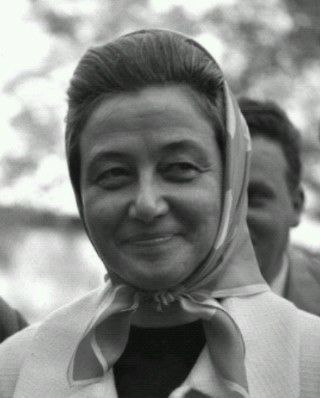
7 December 1943: The birth of the Focolare Movement
 “I believe that God can and wants to make good to be born from everything, even from the worst malice.” These were the words of Dietrich Bonhoeffer at the end of 1943 when the world was in the throes of a global war. That was the historical context in which the Focolare Movement was born. The first stone was set in Trent, Italy, on December 7, 1943 when a young woman in her twenties consecrated her life to God: Silvia Lubich who went by her Third Order Franciscan name of Chiara (Claire). And the weather seemed to make the contrast even more severe, according to the account that Lubich gives of her walk at dawn towards the Capuchin College for a private ceremony, during which she would consecrate herself to God forever. “There was a storm raging, so I had to make my way pushing the umbrella in front of me. Even that wasn’t without meaning. It seemed to say that the action I was about to take would be met with obstacles. The water and wind blowing against me seemed like the symbol of an adversary. When I reached the college, the whole scene changed: A huge door opened in front of me on its own. There was a sense of relief and welcome, almost like God’s arms opening to me, as He was waiting for me.” That change of scene was reflected in her life. The completeness and sacredness of that action that took place in total seclusion and poverty – only three red carnations to celebrate with – were more sonorous in Chiara soul than all the atrocities of the War that stood as the backdrop, almost the “picture frame” of that scene. For her, the real scene was the one that God whom she had discovered to be Love was building around her. “There was an ideal, only one, that would never fall short, not even if we died. It was God-Love. And we were totally stuck on him with all the strength of our being. We didn’t stick to Him because we had nothing else left, but because a Force in us was rendering us happy at having discovered Him in our life as the only All, the only Eternal, the only one worthy of being loved, because love never passes away, the only one, therefore, who would fully satisfy our heart’s needs. For years we had been receiving Holy Communion every day and believed, since we belonged to all the Catholic associations, that we were good Catholics. Only insofar as the Lord God took everything away from us to give us only Him, did we understand the First Command of God for the first time in our life: “Love me with all your heart, all your mind…..” It was only then that we truly felt should love Him like that, so totally, heart, mind and strength, in order not to deceive ourselves.” Lucia Abignente, “Qui c’è il dito di Dio”, (Rome: Città Nuova, 2017), 25-26.
“I believe that God can and wants to make good to be born from everything, even from the worst malice.” These were the words of Dietrich Bonhoeffer at the end of 1943 when the world was in the throes of a global war. That was the historical context in which the Focolare Movement was born. The first stone was set in Trent, Italy, on December 7, 1943 when a young woman in her twenties consecrated her life to God: Silvia Lubich who went by her Third Order Franciscan name of Chiara (Claire). And the weather seemed to make the contrast even more severe, according to the account that Lubich gives of her walk at dawn towards the Capuchin College for a private ceremony, during which she would consecrate herself to God forever. “There was a storm raging, so I had to make my way pushing the umbrella in front of me. Even that wasn’t without meaning. It seemed to say that the action I was about to take would be met with obstacles. The water and wind blowing against me seemed like the symbol of an adversary. When I reached the college, the whole scene changed: A huge door opened in front of me on its own. There was a sense of relief and welcome, almost like God’s arms opening to me, as He was waiting for me.” That change of scene was reflected in her life. The completeness and sacredness of that action that took place in total seclusion and poverty – only three red carnations to celebrate with – were more sonorous in Chiara soul than all the atrocities of the War that stood as the backdrop, almost the “picture frame” of that scene. For her, the real scene was the one that God whom she had discovered to be Love was building around her. “There was an ideal, only one, that would never fall short, not even if we died. It was God-Love. And we were totally stuck on him with all the strength of our being. We didn’t stick to Him because we had nothing else left, but because a Force in us was rendering us happy at having discovered Him in our life as the only All, the only Eternal, the only one worthy of being loved, because love never passes away, the only one, therefore, who would fully satisfy our heart’s needs. For years we had been receiving Holy Communion every day and believed, since we belonged to all the Catholic associations, that we were good Catholics. Only insofar as the Lord God took everything away from us to give us only Him, did we understand the First Command of God for the first time in our life: “Love me with all your heart, all your mind…..” It was only then that we truly felt should love Him like that, so totally, heart, mind and strength, in order not to deceive ourselves.” Lucia Abignente, “Qui c’è il dito di Dio”, (Rome: Città Nuova, 2017), 25-26.
Summer School of Social One in Brazil
The summer school will take place at Igarassu – Pernambuco, Brazil and is promoted by the Social-One international research network, a team of sociologists and social services experts which is inherently inspired by Chiara Lubich’s charisma of unity. Our scientific reflection has always been enriched by occasions of meeting and dialogue among researcher, scholars and social service professionals. The summer school, organized in partnership with the Department of Sociology of the Universidade Federal de Pernambuco and the Centro Universitário Tabosa de Almeida ASCES – UNITA, represents a special occasion of deep confrontation and scientific exchange. Aim of the summer school is to fathom the perspectives of analysis and actions aroused by the category of agapic love in the framework of the social sciences and humanities, believing that the concept could provide new interpretations and perspectives of interventions for the promotion of a society based on equity, inclusiveness and dialogue. In order to support the participation of young scholars, 18 scholarships are available for covering travel, accommodation and participation expenses. pdf School Programme pdf Call for scholarships pdf Presentation, application form and call for abstract Email contact: info@social-one.org
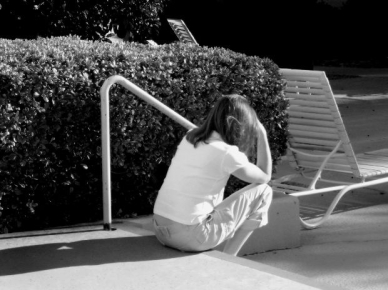
Living the Gospel: Repeating “Here I am”!
 Not a rival, but a daughter For quite some time, my relationship with my husband became difficult due to my mother-in-law. She could not detach herself from her son and considered me as the person who had robbed her of his affection. I was considering leaving my husband, the house and the children, when the Word of Life for that month arrived. That comment was regularly sent by my friends, but I never read it, even though I considered myself a Christian. But at the time I was devastated and God felt so far away. This time, however, I read it, and from the very first line I felt it spoke to my heart. In tears, I begged for God’s help. Days later, my husband and I participated in a meeting for families, as a last resort. In that atmosphere of openness, we found the strength to repeat our ”Yes”. It was the turning point of my life. Always with the help of the other couples, I managed to conquer my mother-in-law’s affection. With time she started to consider me no longer as a rival but as a daughter. When she fell ill, I assisted her with love and devotion, preparing her for her encounter with the Father. (Lucero – Columbia) Providence On the morning of 24 December I had gone to the market to buy food for Christmas Eve dinner. But I still had not thought of the drinks. On arriving home I received a letter from some acquaintances, asking for a loan. It corresponded to the sum of the drinks. I consulted Giselle and we replied: ”We are sending you the sum as a gift, don’t worry about repaying us!” Even if only with fresh water we passed a wonderful evening with songs and music. Days later, unexpectedly, we received a bigger sum than what we had given. (G.P. – Kenya) At the station I was about to go to my daughter who lives in another city, but on arriving in the station I realised that because I had stopped to welcome a person, the possiblity to have a discount for the elderly had expired. However, upon thinking that it was more worthwhile to have made an act of love than having a discounted ticket, I managed to stay serene. But then, while I was at the teller’s the clerk told me that for that day, and not only that???, they had programmed a sole discounted price for all destinations. The discount was more than double the price of what my pass would have allowed. (G.M. – Italy) The risk Sometimes one of our sons would invite a friend to sleep over at our place, one who was a bit unreliable. In the face of this situation, my husband and I decided to get to know him more. We discovered that he had left his family, and was suffering from a depression. Besides drinking, he also consumed drugs which he had also offered to our son. Despite our fear of this risk, we tried to love him the way the Gospel teaches us to do. One day he confided that he had stopped taking drugs and now wanted to live like us. ”Your life has a meaning,” he said. With time, besides helping him to go to rehab, we contacted his parents who started to take care of him. (C.A. – Brazil)
Not a rival, but a daughter For quite some time, my relationship with my husband became difficult due to my mother-in-law. She could not detach herself from her son and considered me as the person who had robbed her of his affection. I was considering leaving my husband, the house and the children, when the Word of Life for that month arrived. That comment was regularly sent by my friends, but I never read it, even though I considered myself a Christian. But at the time I was devastated and God felt so far away. This time, however, I read it, and from the very first line I felt it spoke to my heart. In tears, I begged for God’s help. Days later, my husband and I participated in a meeting for families, as a last resort. In that atmosphere of openness, we found the strength to repeat our ”Yes”. It was the turning point of my life. Always with the help of the other couples, I managed to conquer my mother-in-law’s affection. With time she started to consider me no longer as a rival but as a daughter. When she fell ill, I assisted her with love and devotion, preparing her for her encounter with the Father. (Lucero – Columbia) Providence On the morning of 24 December I had gone to the market to buy food for Christmas Eve dinner. But I still had not thought of the drinks. On arriving home I received a letter from some acquaintances, asking for a loan. It corresponded to the sum of the drinks. I consulted Giselle and we replied: ”We are sending you the sum as a gift, don’t worry about repaying us!” Even if only with fresh water we passed a wonderful evening with songs and music. Days later, unexpectedly, we received a bigger sum than what we had given. (G.P. – Kenya) At the station I was about to go to my daughter who lives in another city, but on arriving in the station I realised that because I had stopped to welcome a person, the possiblity to have a discount for the elderly had expired. However, upon thinking that it was more worthwhile to have made an act of love than having a discounted ticket, I managed to stay serene. But then, while I was at the teller’s the clerk told me that for that day, and not only that???, they had programmed a sole discounted price for all destinations. The discount was more than double the price of what my pass would have allowed. (G.M. – Italy) The risk Sometimes one of our sons would invite a friend to sleep over at our place, one who was a bit unreliable. In the face of this situation, my husband and I decided to get to know him more. We discovered that he had left his family, and was suffering from a depression. Besides drinking, he also consumed drugs which he had also offered to our son. Despite our fear of this risk, we tried to love him the way the Gospel teaches us to do. One day he confided that he had stopped taking drugs and now wanted to live like us. ”Your life has a meaning,” he said. With time, besides helping him to go to rehab, we contacted his parents who started to take care of him. (C.A. – Brazil)
Davao, Philippines – Friendship instead of video games
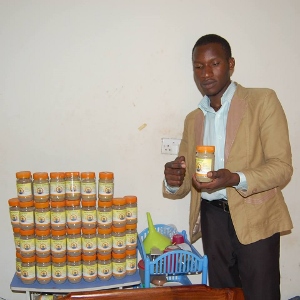
Argentina and Uganda: Two Worlds Meet
 Masaka, Kampala, Entebbe and great Lake Victoria – this is the wide territory that Henry has covered in his country, Uganda, the “pearl of Africa.” He’s gone from the village where he was born, to his economic studies at university in the capitol, to the shores of the largest lake on the continent. It is so large that it counts more than 3,000 islands. This is where the White Nile begins, which then flows into the longest river in Africa, the Nile. Everything is big in Uganda: the parks, the impenetrable forests, the nature reserves. Henry dreams big too. “At Masaka, where I went to university, I noticed how people didn’t have time to cook anymore,” he says. To resolve the problem, Henry started a business to produce meat and fish products. At just 24, together with two others his age, he started the Sseruh Food Processing Company Ltd. in Entebbe. On the other side of the world, in Argentina, another entrepreneur, Gonzalo Perrin, had already started a company some years ago: Pasticcino, which produces cookies for a number of cafeteria chains and coffee roasters. Urged on by the spirit of the Economy of Communion, Perrin moved to the Soladaridad industrial park at Mariapolis Lia, a little city of the Focolare. There he promotes a culture marked by the values of reciprocity, care for the disadvantaged and the environment.
Masaka, Kampala, Entebbe and great Lake Victoria – this is the wide territory that Henry has covered in his country, Uganda, the “pearl of Africa.” He’s gone from the village where he was born, to his economic studies at university in the capitol, to the shores of the largest lake on the continent. It is so large that it counts more than 3,000 islands. This is where the White Nile begins, which then flows into the longest river in Africa, the Nile. Everything is big in Uganda: the parks, the impenetrable forests, the nature reserves. Henry dreams big too. “At Masaka, where I went to university, I noticed how people didn’t have time to cook anymore,” he says. To resolve the problem, Henry started a business to produce meat and fish products. At just 24, together with two others his age, he started the Sseruh Food Processing Company Ltd. in Entebbe. On the other side of the world, in Argentina, another entrepreneur, Gonzalo Perrin, had already started a company some years ago: Pasticcino, which produces cookies for a number of cafeteria chains and coffee roasters. Urged on by the spirit of the Economy of Communion, Perrin moved to the Soladaridad industrial park at Mariapolis Lia, a little city of the Focolare. There he promotes a culture marked by the values of reciprocity, care for the disadvantaged and the environment.
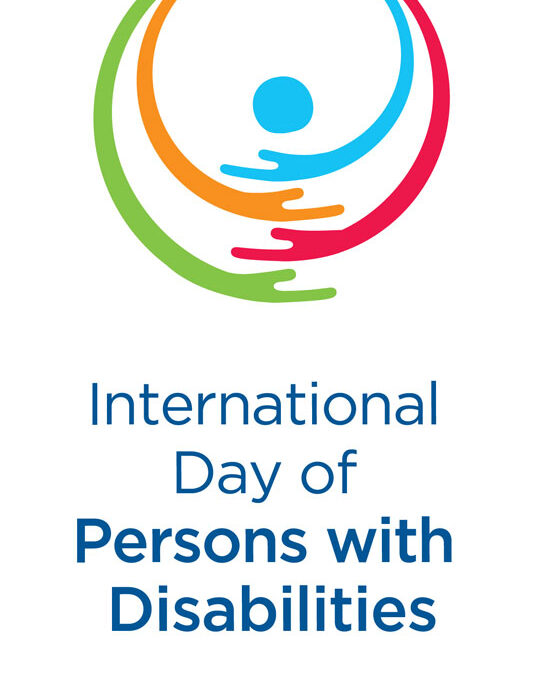
International Day of Persons with Disabilities
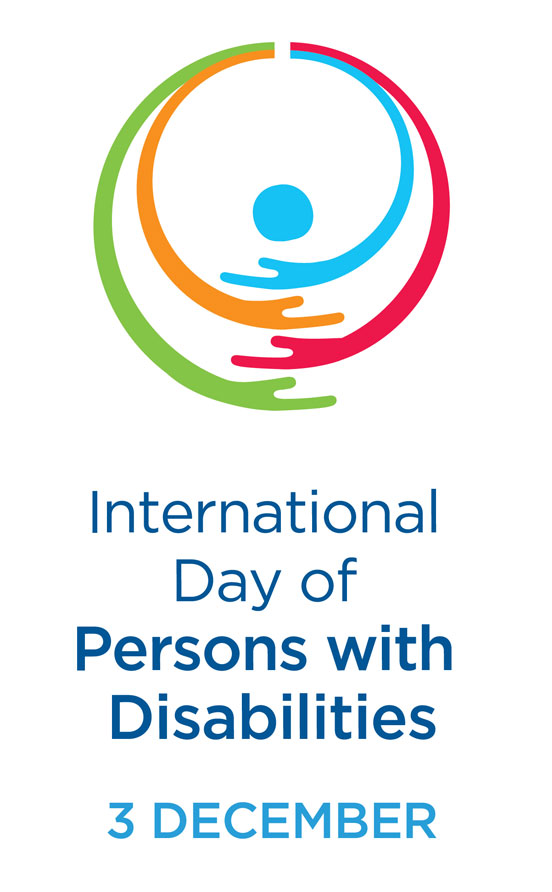 Established in 1981, the International Day of Persons with Disabilities is celebrated every year on 3 December, with the aim of encouraging and promoting a more widespread and in-depth knowledge on issues concerning differently-abled people, supporting full integration in all areas of life and removing all forms of discrimination and violence. Since July 1993, December 3 has also become the European Day for Persons with Disabilities, on the initiative of the European Commission and in agreement with the United Nations. To celebrate this Day, many countries will organise events in different areas of social life: in the field of education and work, urban planning and the development of new technologies geared towards differently-abled persons, as well as tourism accessible to the elderly.
Established in 1981, the International Day of Persons with Disabilities is celebrated every year on 3 December, with the aim of encouraging and promoting a more widespread and in-depth knowledge on issues concerning differently-abled people, supporting full integration in all areas of life and removing all forms of discrimination and violence. Since July 1993, December 3 has also become the European Day for Persons with Disabilities, on the initiative of the European Commission and in agreement with the United Nations. To celebrate this Day, many countries will organise events in different areas of social life: in the field of education and work, urban planning and the development of new technologies geared towards differently-abled persons, as well as tourism accessible to the elderly.
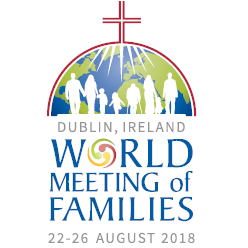
Dublin: World Meeting of Families with the Pope
 Dublin, the capital of Ireland, will host the 9th World Meeting of Families, an initiative inaugurated by St. John Paul II in 1994, and since then held every three years in different international seats. The theme chosen for Dublin is “The Gospel of the Family: joy for the world.” Further to the two recent Synods on the family (2014-15) and the apostolic exhortation, Amoris Laetitia (2016) of Pope Francis, families and those who engage in “family” issues are looking forward to this event which will give prominence to the Christian family and its specific gift of being “joy for the world” and light in the challenges contemporary life poses. The event is being promoted by the new Pontifical Council for the Laity, Family and Life. Alberto and Anna Friso of the Focolare who work with this organization will also attend. But it is the host diocese that is preparing for the meeting with great passion, and has already set in motion a mighty organisational machine for the outlining of the programme, logistics, preparatory catechesis, and reception of participants. Also the Irish ”new families” are full of enthusiasm, and have relayed their willingness to collaborate in all ways with the organizational team created for this purpose by the diocese. During those days they will be happy to welcome to their country, the greatest number of ”new families” possible from all over the world, to live unforgettable moments of in-depth studies, communion and celebrations. Official website Program For info and registrations
Dublin, the capital of Ireland, will host the 9th World Meeting of Families, an initiative inaugurated by St. John Paul II in 1994, and since then held every three years in different international seats. The theme chosen for Dublin is “The Gospel of the Family: joy for the world.” Further to the two recent Synods on the family (2014-15) and the apostolic exhortation, Amoris Laetitia (2016) of Pope Francis, families and those who engage in “family” issues are looking forward to this event which will give prominence to the Christian family and its specific gift of being “joy for the world” and light in the challenges contemporary life poses. The event is being promoted by the new Pontifical Council for the Laity, Family and Life. Alberto and Anna Friso of the Focolare who work with this organization will also attend. But it is the host diocese that is preparing for the meeting with great passion, and has already set in motion a mighty organisational machine for the outlining of the programme, logistics, preparatory catechesis, and reception of participants. Also the Irish ”new families” are full of enthusiasm, and have relayed their willingness to collaborate in all ways with the organizational team created for this purpose by the diocese. During those days they will be happy to welcome to their country, the greatest number of ”new families” possible from all over the world, to live unforgettable moments of in-depth studies, communion and celebrations. Official website Program For info and registrations
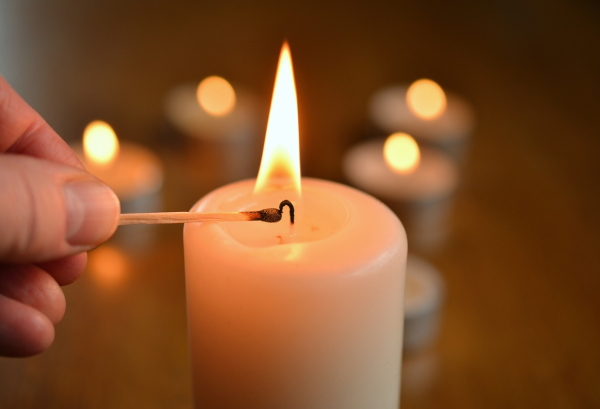
Christmas as a revolution
 Since Christmas is considered by most as one of the grand feasts, more sumptuous than sacred, it would be important to reflect on some of the theme aspects of this event, due to which the history of the world was cut into two sections, pre- and post-. Given the infinite importance of such an event, one would expect it to dawn amid grandeur, triumph, sounds and shots, with manifestations of power and the flow of millions of curious people. There is an abysmal contrast between the birth of a powerful figure, as the ancient world dreamt of and the obscure birth of Jesus, ignored by many; it is a contrast which in itself characterises the infinite originality of a Christ-king born of a poor woman in a stable. He really does not seem to be God and neither the most showy of men, but the last among them, immediately set at the most fearful level of degradation. He appears on the lowest rung of the social ladder, in order to immediately see from below all the human beings, and to be able to see with the eyes of the miserable. The start of his revolution does not foresee arrogance, but humility, to draw the sons of God to heaven, starting from those who ate and slept on the ground: the slaves, the jobless, the foreigners, and the scum. Liberty and love were born with that infant: his liberty is liberty of love. This is the immense discovery. Universal love that he taught aims to disperse a system of coexistence made up mostly of political power, abuse of authority, idle usury, despise for work, degradation of woman, and corrosive envy. Logically, for the people embedded in such system that announcement is a folly: good for the prison and the gallows. Blessed are the poor and those who make themselves poor to help the miserable… Just imagine the fury of those who consider money as the utmost good… “It was said to the elders: do not kill. But I say to you; whoever rages against his brother will be judged…” The maxim seemed, and still seems detrimental to the honour of the warfarers and the warfaring industries, while not hating one’s brother means putting an end to brawls, factions and violence. The maxim would picture society as a peaceful coexistence where, instead of shouting and shooting, the people would laugh and eat. Life, in peace, would allow us to make every day, Christmas. And this is the revolution of Christ: to make us be reborn continually against the curse of death. And so the utmost commandment is to love man, which is like loving God. Love the other to the point of giving one’s life for him. This in brief is the meaning of Christmas: a review of the past, and the end of wars, torbid passions, and avarice; the start of universal love which admits no divisions of race, castes, classes, politics…. With his life and death Jesus preached and taught life. And so Christmas can be celebrated also with cake, if it helps to create love, but is celebrated above all with reconciliation, that puts an end to the diseases of the spirit and gives health. It is celebrated in gratitude to Jesus and Mary, who suffered to teach us and help us put an end to our suffering. Igino Giordani, Christmas as a revolution, New City, Rome 1974, n.24, p.18
Since Christmas is considered by most as one of the grand feasts, more sumptuous than sacred, it would be important to reflect on some of the theme aspects of this event, due to which the history of the world was cut into two sections, pre- and post-. Given the infinite importance of such an event, one would expect it to dawn amid grandeur, triumph, sounds and shots, with manifestations of power and the flow of millions of curious people. There is an abysmal contrast between the birth of a powerful figure, as the ancient world dreamt of and the obscure birth of Jesus, ignored by many; it is a contrast which in itself characterises the infinite originality of a Christ-king born of a poor woman in a stable. He really does not seem to be God and neither the most showy of men, but the last among them, immediately set at the most fearful level of degradation. He appears on the lowest rung of the social ladder, in order to immediately see from below all the human beings, and to be able to see with the eyes of the miserable. The start of his revolution does not foresee arrogance, but humility, to draw the sons of God to heaven, starting from those who ate and slept on the ground: the slaves, the jobless, the foreigners, and the scum. Liberty and love were born with that infant: his liberty is liberty of love. This is the immense discovery. Universal love that he taught aims to disperse a system of coexistence made up mostly of political power, abuse of authority, idle usury, despise for work, degradation of woman, and corrosive envy. Logically, for the people embedded in such system that announcement is a folly: good for the prison and the gallows. Blessed are the poor and those who make themselves poor to help the miserable… Just imagine the fury of those who consider money as the utmost good… “It was said to the elders: do not kill. But I say to you; whoever rages against his brother will be judged…” The maxim seemed, and still seems detrimental to the honour of the warfarers and the warfaring industries, while not hating one’s brother means putting an end to brawls, factions and violence. The maxim would picture society as a peaceful coexistence where, instead of shouting and shooting, the people would laugh and eat. Life, in peace, would allow us to make every day, Christmas. And this is the revolution of Christ: to make us be reborn continually against the curse of death. And so the utmost commandment is to love man, which is like loving God. Love the other to the point of giving one’s life for him. This in brief is the meaning of Christmas: a review of the past, and the end of wars, torbid passions, and avarice; the start of universal love which admits no divisions of race, castes, classes, politics…. With his life and death Jesus preached and taught life. And so Christmas can be celebrated also with cake, if it helps to create love, but is celebrated above all with reconciliation, that puts an end to the diseases of the spirit and gives health. It is celebrated in gratitude to Jesus and Mary, who suffered to teach us and help us put an end to our suffering. Igino Giordani, Christmas as a revolution, New City, Rome 1974, n.24, p.18
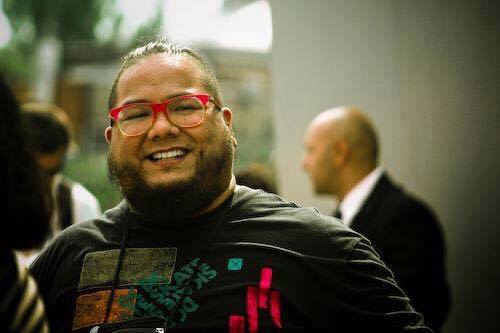
Noel left his mark
 He was a graphic artist, who left his mark. He had a preference for masters such as Michelangelo and Gaudì, and was precociously talented in free hand. He created his own personal style based on his knowledge of the grand masters from the past. Emmanuel, who was known to everyone as Noel, worked closely with the young people from his city, bringing his brightness, inventiveness and creativity the preparations of the 2018 Genfest that will bring together 10,000 young people from around the world. On September 2nd he fell asleep and never woke up, due to sleep apnea. More than an grown up, he was considered a peer by the teenagers and young people from the Focolare Movement in the Philippines who are now counting on his help to carry on. Grace, Paul, Lela, Paula, Edith and other friends of his write. “He gave of himself without holding back and without expecting anything back. Always on the move from when he was a small child. At the age of two he attended his first Mariapolis and climbed the walls even during the meetings.” He was generous by nature. At the age of six he had given away a pair of shoes that had just been bought for him to a clothing drive for the victims of a wildfire that had devastated a certain region. When he was asked why he did that, he replied: “I saw Jesus in those people.” During his early school years Noel met a lot of difficulty. When a doctor discovered the medical cause – a problem with his eyesight – Noel candidly confessed that he had never told his parents because he didn’t want to worry them. His family moved to another location, and Noel and his brother placed a poster on the front door, “Friends Wanted.” Then they went knocking on the doors of their neighbours, trying not to be too pushy. As an adult Noel was very esteemed by his colleagues and employers. He was simple-hearted and sociable, but also trustworthy and precise, respectful of work hours. He was forgiven when, because of a disorder he suffered from during the night hours, if he sometimes suddenly fell off to sleep and spilled his coffee on the keyboard of the computer. He was always available for the projects of the Focolare youth. Any time they needed a drawing or a project, he was always willing to place his talent at their disposal. He was the drummer for a Gen band from the time he was a boy. He certainly wasn’t the best drummer on the square and, when he was there, the band never worried too much about being perfect, but only about playing with their hearts. Agnes, from the band, recalls how, for him, the “togetherness” was what mattered and not so much making an appearance. He put the same attention into his relationships with people. Noel arrived in Loppiano, Italy, for the Gen School in 2004. He was one of the few that had a driver’s license and became the driver for everyone, even at night when needed after a long day of work. He became a point of reference for many young people when he went back to his own country. Whether or not he realized it, he encouraged them and motivated them not to give up, but to persevere, to hope and follow God. “When it comes to love,” he would often say, “you need to give everything, especially when you’re able to give it.” Noel was always at his mother’s side, protective of his sisters and close to his brother even when he left the country. He never wanted to see unhappy people around him. A friend, teacher and gentle giant. A person who’s left his mark. That’s Noel for us. He was 38 years old, but he didn’t want to get old. Now he’ll be forever young.”
He was a graphic artist, who left his mark. He had a preference for masters such as Michelangelo and Gaudì, and was precociously talented in free hand. He created his own personal style based on his knowledge of the grand masters from the past. Emmanuel, who was known to everyone as Noel, worked closely with the young people from his city, bringing his brightness, inventiveness and creativity the preparations of the 2018 Genfest that will bring together 10,000 young people from around the world. On September 2nd he fell asleep and never woke up, due to sleep apnea. More than an grown up, he was considered a peer by the teenagers and young people from the Focolare Movement in the Philippines who are now counting on his help to carry on. Grace, Paul, Lela, Paula, Edith and other friends of his write. “He gave of himself without holding back and without expecting anything back. Always on the move from when he was a small child. At the age of two he attended his first Mariapolis and climbed the walls even during the meetings.” He was generous by nature. At the age of six he had given away a pair of shoes that had just been bought for him to a clothing drive for the victims of a wildfire that had devastated a certain region. When he was asked why he did that, he replied: “I saw Jesus in those people.” During his early school years Noel met a lot of difficulty. When a doctor discovered the medical cause – a problem with his eyesight – Noel candidly confessed that he had never told his parents because he didn’t want to worry them. His family moved to another location, and Noel and his brother placed a poster on the front door, “Friends Wanted.” Then they went knocking on the doors of their neighbours, trying not to be too pushy. As an adult Noel was very esteemed by his colleagues and employers. He was simple-hearted and sociable, but also trustworthy and precise, respectful of work hours. He was forgiven when, because of a disorder he suffered from during the night hours, if he sometimes suddenly fell off to sleep and spilled his coffee on the keyboard of the computer. He was always available for the projects of the Focolare youth. Any time they needed a drawing or a project, he was always willing to place his talent at their disposal. He was the drummer for a Gen band from the time he was a boy. He certainly wasn’t the best drummer on the square and, when he was there, the band never worried too much about being perfect, but only about playing with their hearts. Agnes, from the band, recalls how, for him, the “togetherness” was what mattered and not so much making an appearance. He put the same attention into his relationships with people. Noel arrived in Loppiano, Italy, for the Gen School in 2004. He was one of the few that had a driver’s license and became the driver for everyone, even at night when needed after a long day of work. He became a point of reference for many young people when he went back to his own country. Whether or not he realized it, he encouraged them and motivated them not to give up, but to persevere, to hope and follow God. “When it comes to love,” he would often say, “you need to give everything, especially when you’re able to give it.” Noel was always at his mother’s side, protective of his sisters and close to his brother even when he left the country. He never wanted to see unhappy people around him. A friend, teacher and gentle giant. A person who’s left his mark. That’s Noel for us. He was 38 years old, but he didn’t want to get old. Now he’ll be forever young.”
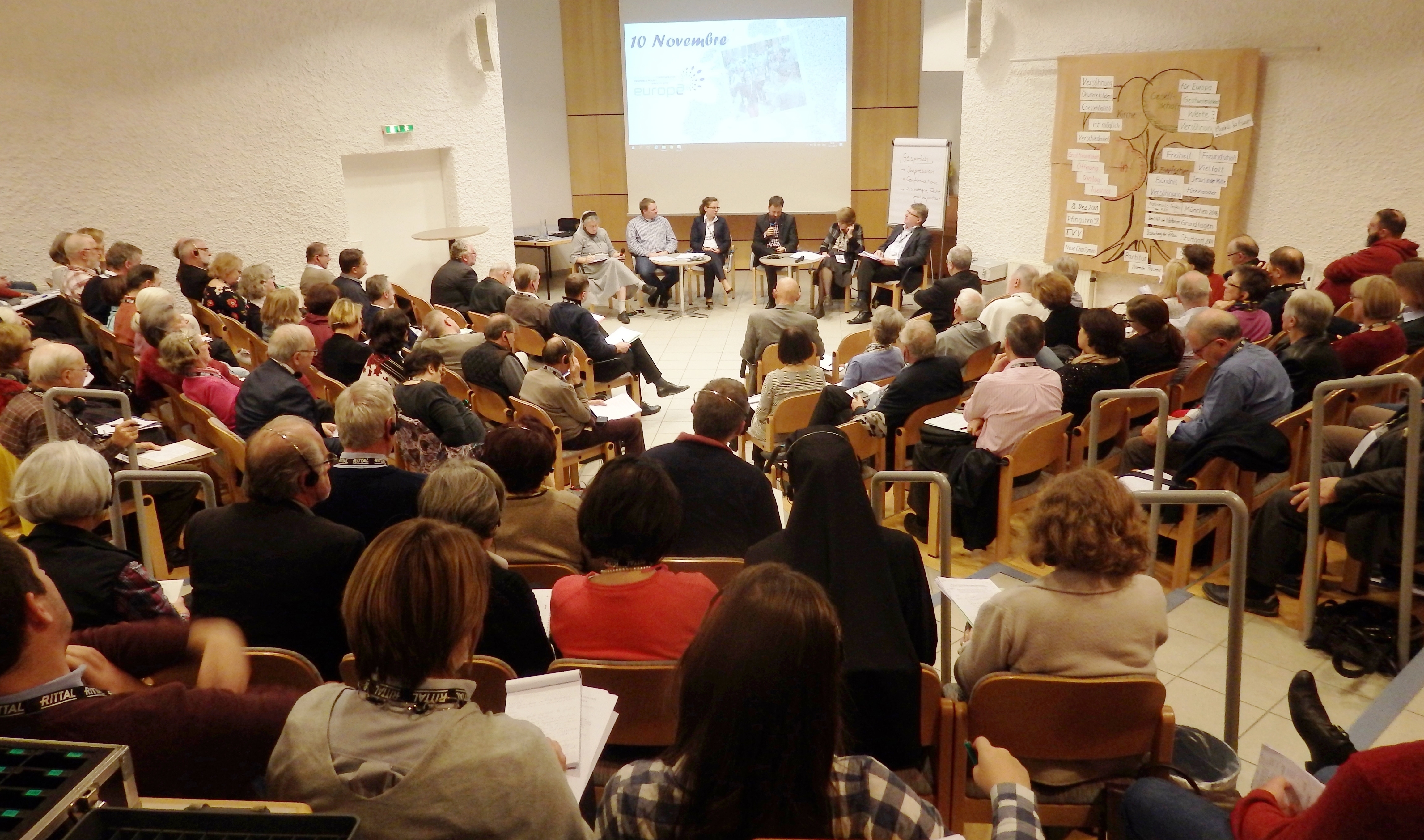
Vienna: bridge between the West and the East
 From 9th to 11th November 2017 in Vienna (Austria), the annual conference of ecumenical network Together for Europe (TfE) took place, with 130 participants from 44 Movements, Communities and Associations. Meetings, exchange of ideas, and moments of prayer, characterised the Conference’s program Fr Heinrich Walter (Schoenstatt Movement), Gérard Testard (Efesia, France), Gerhard Pross (YMCA Esslingen) spoke of the eighteen-year history of Together for Europe and its future challenges. “We say Yes to a Europe to which God has entrusted a vocation in the course of history: the togetherness of heaven and earth, of faith and shaping of the world: for heaven and earth meet in the crucified one.” Pál Tóth (Focolare Movement, Hungary), an expert in Communication Science, pointed out some differences between the Eastern/Central European countries and the West of Europe and put forward a daring proposal: “Together for Europe can increasingly become a platform for dialogue, or rather a school of inter-European dialogue.” One of the suggestions which emerged was to dedicate 9th May, when many countries celebrate Europe Day, as an event in which to spread the message of ‘togetherness’ through local actions. www.together4europe.org twitter.com/together4europe
From 9th to 11th November 2017 in Vienna (Austria), the annual conference of ecumenical network Together for Europe (TfE) took place, with 130 participants from 44 Movements, Communities and Associations. Meetings, exchange of ideas, and moments of prayer, characterised the Conference’s program Fr Heinrich Walter (Schoenstatt Movement), Gérard Testard (Efesia, France), Gerhard Pross (YMCA Esslingen) spoke of the eighteen-year history of Together for Europe and its future challenges. “We say Yes to a Europe to which God has entrusted a vocation in the course of history: the togetherness of heaven and earth, of faith and shaping of the world: for heaven and earth meet in the crucified one.” Pál Tóth (Focolare Movement, Hungary), an expert in Communication Science, pointed out some differences between the Eastern/Central European countries and the West of Europe and put forward a daring proposal: “Together for Europe can increasingly become a platform for dialogue, or rather a school of inter-European dialogue.” One of the suggestions which emerged was to dedicate 9th May, when many countries celebrate Europe Day, as an event in which to spread the message of ‘togetherness’ through local actions. www.together4europe.org twitter.com/together4europe
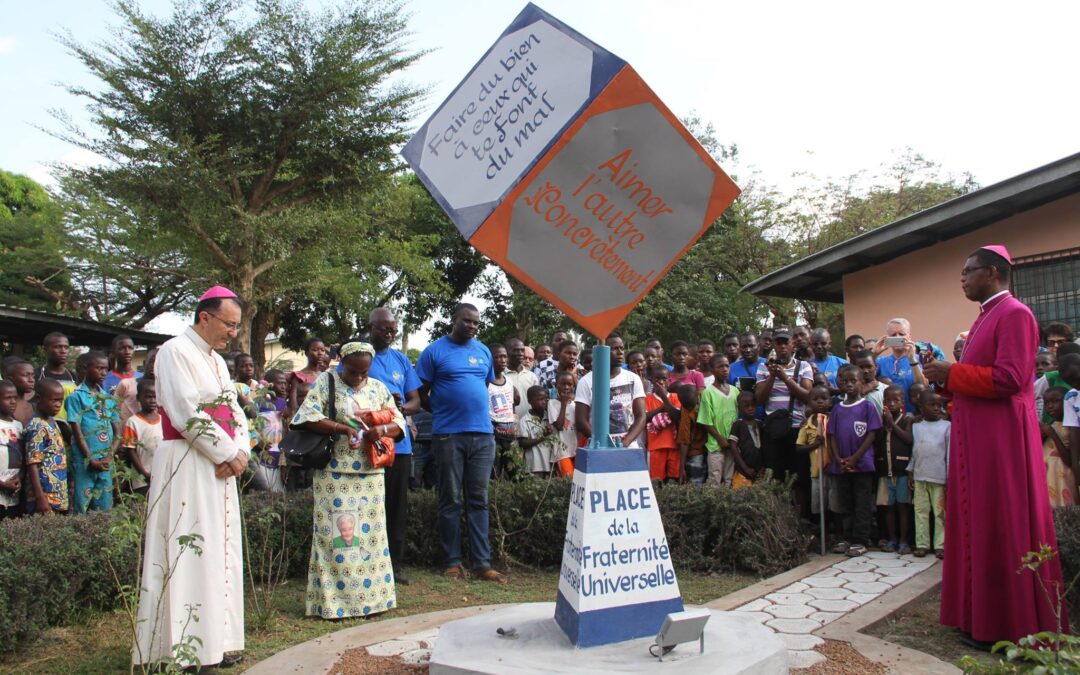
25 Years of Peace in the Ivory Coast
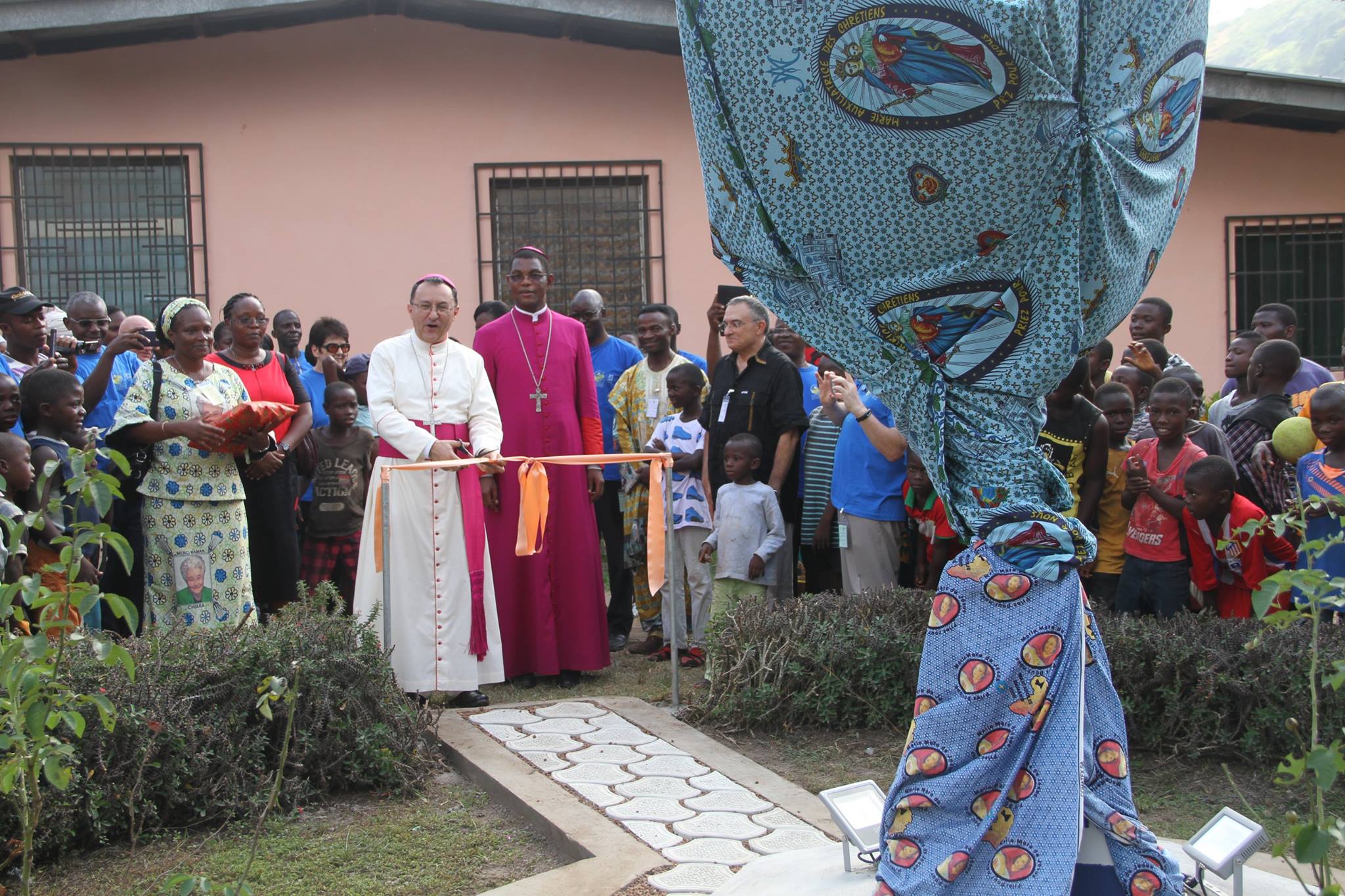 The blessing of Pope Francis unexpectedly reaches the citizens of Mariapolis Victoria, a small oasis of peace in the city of Man, Ivory Coast as it celebrates its Silver Anniversary. It arrived with a thank you for the work of evangelisation that has been carried out in that place.” Francis invited them to “persevere with courage in the service of unity and concord among people,” and to continue “along the path of an ever-more universal fraternity. This place is dotted with episodes of fraternity, beginning from the civil war of 2002-2003 when the locals decided to stay. Also the European focolarini, even though the local authorities urged foreigners to leave the country. It was a witness of loving their own to the end, of opening their doors to protect people, and 3,500 Muslims and Christians passed through those doors in those months. These were people who risked their lives, like Salvatore, Rino, Charles, put against the wall, ready to be shot: “All you can do now is pray!” they told them. But they managed to pull it off. Now the city and the country has turned the page, even if there isn’t complete political reconcilliation.
The blessing of Pope Francis unexpectedly reaches the citizens of Mariapolis Victoria, a small oasis of peace in the city of Man, Ivory Coast as it celebrates its Silver Anniversary. It arrived with a thank you for the work of evangelisation that has been carried out in that place.” Francis invited them to “persevere with courage in the service of unity and concord among people,” and to continue “along the path of an ever-more universal fraternity. This place is dotted with episodes of fraternity, beginning from the civil war of 2002-2003 when the locals decided to stay. Also the European focolarini, even though the local authorities urged foreigners to leave the country. It was a witness of loving their own to the end, of opening their doors to protect people, and 3,500 Muslims and Christians passed through those doors in those months. These were people who risked their lives, like Salvatore, Rino, Charles, put against the wall, ready to be shot: “All you can do now is pray!” they told them. But they managed to pull it off. Now the city and the country has turned the page, even if there isn’t complete political reconcilliation. 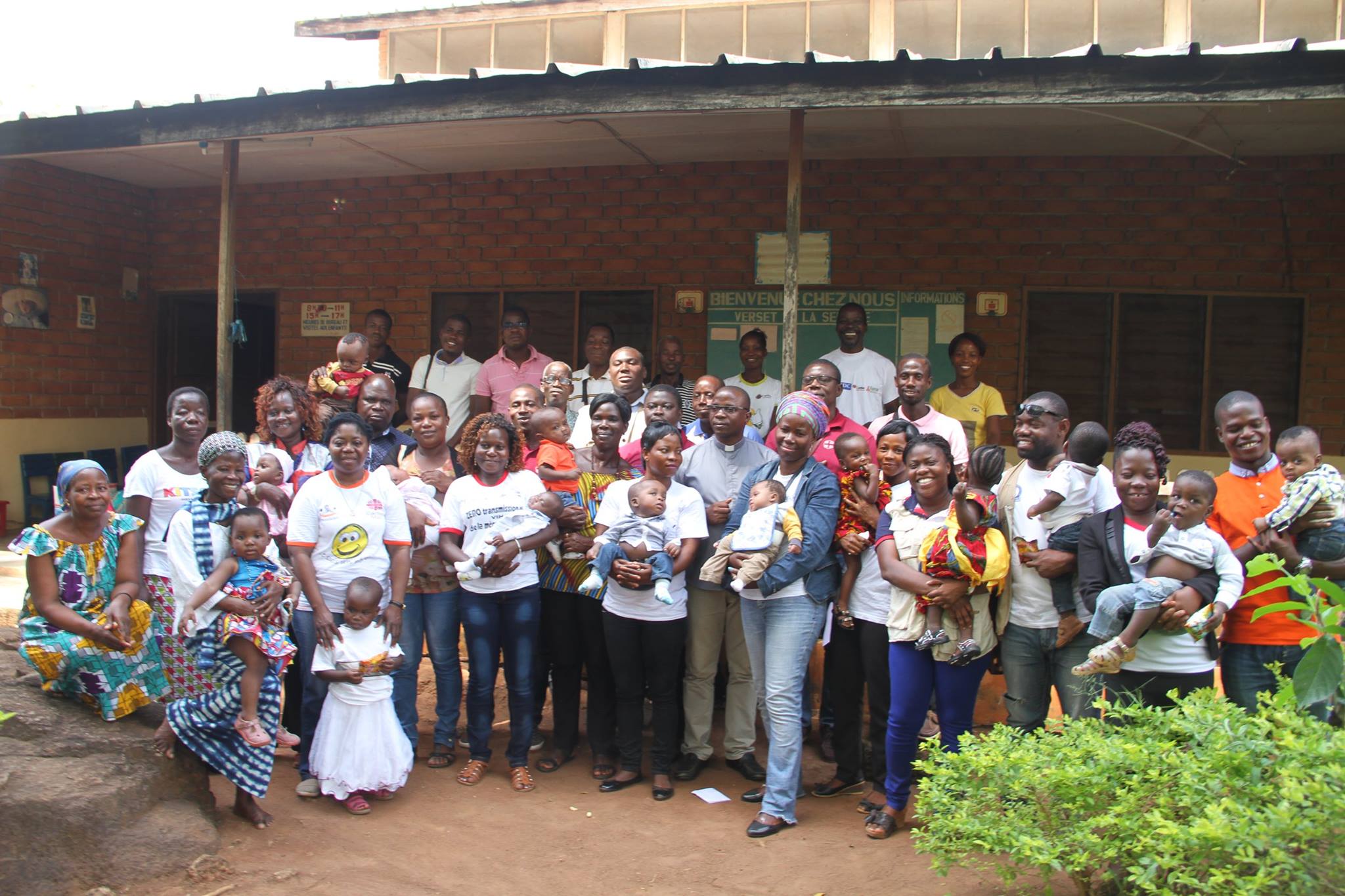 But Mariapolis Victoria is not only an oasis of peace in times of war. It is a social laboratory. During the three-day celebration in honour of the 25th anniversary, the focus was on facts and deeds. Visits to the activities of the town were on top of the schedule: the Medical Social Centre – renovated and enlarged, with emergency services and impatient hospital, a dental clinic, a physiotherapist – the nutrition centre where the wounds of infant malnutrition are cured, and mothers are taught nutritional care; the computer centre and more and more specialized courses – along with other entrepreneurial activities like carpentry and printing. A football tournament was held during the preparations for the 25th anniversary in the name of fraternity and fair play. On Sunday, November 19th the prizes were finally given to the winners, not only for the goals they gained, but also for the points they earned for fair play.
But Mariapolis Victoria is not only an oasis of peace in times of war. It is a social laboratory. During the three-day celebration in honour of the 25th anniversary, the focus was on facts and deeds. Visits to the activities of the town were on top of the schedule: the Medical Social Centre – renovated and enlarged, with emergency services and impatient hospital, a dental clinic, a physiotherapist – the nutrition centre where the wounds of infant malnutrition are cured, and mothers are taught nutritional care; the computer centre and more and more specialized courses – along with other entrepreneurial activities like carpentry and printing. A football tournament was held during the preparations for the 25th anniversary in the name of fraternity and fair play. On Sunday, November 19th the prizes were finally given to the winners, not only for the goals they gained, but also for the points they earned for fair play. 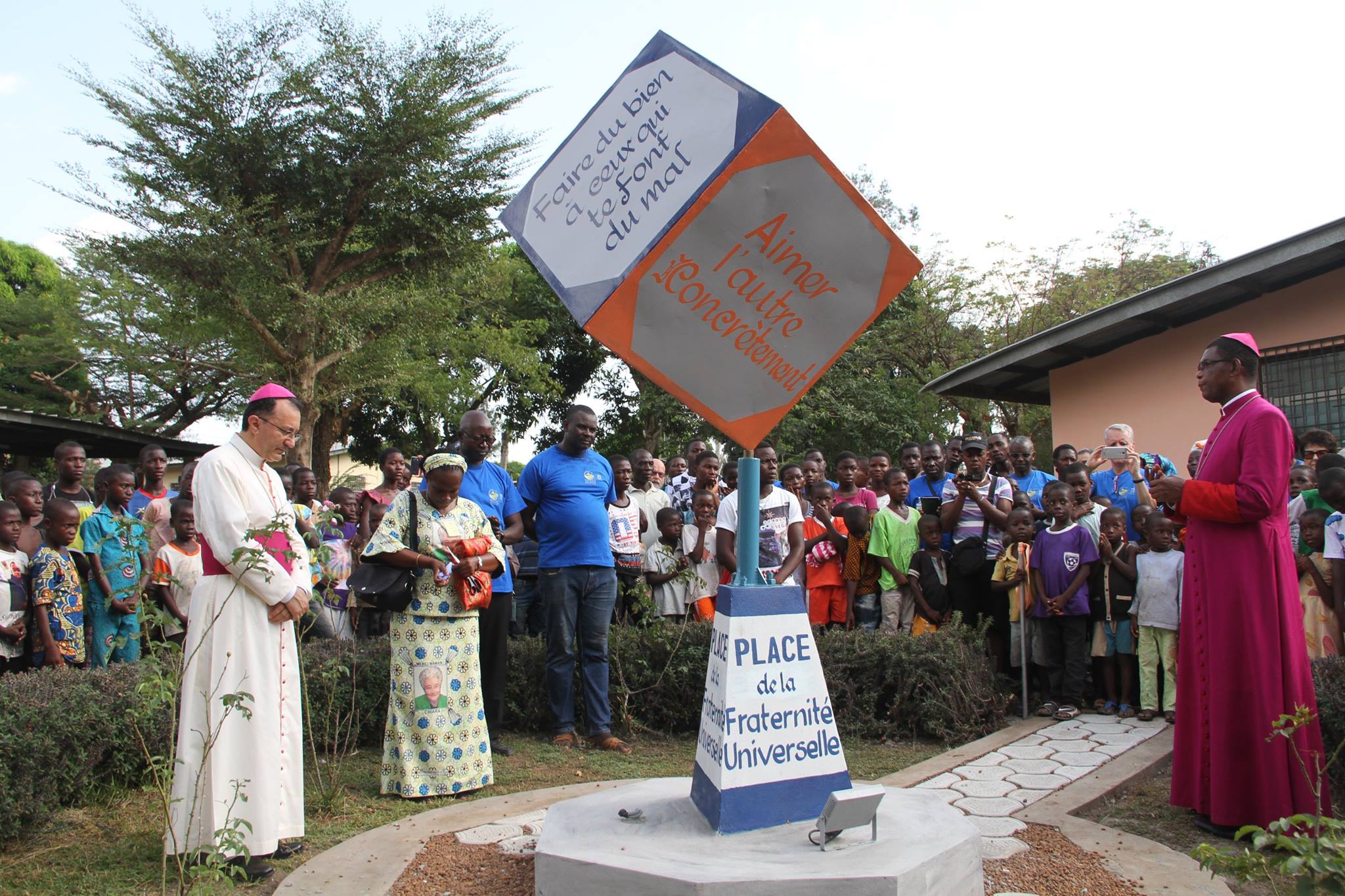 The placing of stele in “Universal Brotherhood Square was also quite symbolic, along with a large Cube of Peace that expresses the personal identity of the Mariapolis where love and respect for the other person tends to transfer onto every aspect of life in the little town. Official celebrations were also held at St Mary Queen of Africa Parish, which has been entrusted to the the Focolare Movement since 1970. Present with Apostolic Nunzio Joseph Spiteri and Bishop of Man, Gaspar Bebi Gneba, there were also numerous civil authorities: Vice-Prefect of Man, Madame Djerehe Claude and ex-Minister Mabri Toikeusse, who is also president of the regional chamber of the King of the Traditional Chiefs of the Tonpki, Gué Pascal. They expressed their recognition of the Ivorian authority for the help to people during the crisis and generally for the Focolare’s efforts in favour of the vulnerable populations. Also the Italian Ambassador, Stefano Lo Savio, wanted to attend and deliver a very warm message. Now we are looking ahead with three words to guide our steps: welcome, formation and attentiveness to the poor. Maria Chiara De Lorenzo
The placing of stele in “Universal Brotherhood Square was also quite symbolic, along with a large Cube of Peace that expresses the personal identity of the Mariapolis where love and respect for the other person tends to transfer onto every aspect of life in the little town. Official celebrations were also held at St Mary Queen of Africa Parish, which has been entrusted to the the Focolare Movement since 1970. Present with Apostolic Nunzio Joseph Spiteri and Bishop of Man, Gaspar Bebi Gneba, there were also numerous civil authorities: Vice-Prefect of Man, Madame Djerehe Claude and ex-Minister Mabri Toikeusse, who is also president of the regional chamber of the King of the Traditional Chiefs of the Tonpki, Gué Pascal. They expressed their recognition of the Ivorian authority for the help to people during the crisis and generally for the Focolare’s efforts in favour of the vulnerable populations. Also the Italian Ambassador, Stefano Lo Savio, wanted to attend and deliver a very warm message. Now we are looking ahead with three words to guide our steps: welcome, formation and attentiveness to the poor. Maria Chiara De Lorenzo
Focolare Word of Life – December 2017
for ages 4-8 | for ages 9-17 | Print | Audio
A young woman is in her house in Palestine — a distant, little known corner of the powerful Roman Empire. Suddenly she receives an unexpected, rather disturbing visitor: a messenger from God, asking something of her and awaits her reply. “Rejoice!’’ the angel says to Mary. Then he reveals God’s abounding love for her, inviting her to collaborate in fulfilling God’s plans for humanity. With a sense of wonder and joy, Mary accepts the gift of this personal meeting with the Lord. She gives herself entirely to this yet-unknown plan because of her complete trust in God’s love. With her generous and wholehearted “Here am I”, Mary decisively puts herself at the service of God and people, giving a shining example of how to accept God’s will. “Here am I, the servant of the Lord; let it be with me according to your word (Lk 1:38).” Meditating on this Gospel passage, Chiara Lubich wrote in 1981: “To fulfil his plans, God needs people who surrender themselves to him as humbly and as readily as a servant. “Mary is the true representative of humanity, whose destiny she took on. With this attitude, she gives God all the space he needs for his creative action. “However, the term ‘servant of the Lord’ is not only an expression of humility, but also a title of nobility, given to the great servants in salvation history, like Abraham, Moses, David and the prophets.” “Therefore, by using these words, Mary also affirms her greatness.’’ “Here am I, the servant of the Lord; let it be with me according to your word (Lk 1:38).” We, too, can discover God’s presence in our lives and listen to the word he says to us, asking us to fulfil part of his design of love, part of his design of love for history, here and now. Our weakness and sense of inadequacy may hinder us. So let us believe the angel’s words, “for nothing will be impossible with God” (Lk 1:37), and trust in God’s power more than in our own strength. This experience will free us from our limitations and from presuming that we’re self-sufficient. We will find new energy and talents we did not know we had, enabling us to love in our own way. “Right at the start of our marriage,” shared one couple, “we opened our house to the families of children in our city’s hospitals. More than 100 families came to our house, and we continually tried to create a family atmosphere for them. “We often received providence, which helped us cover our expenses, but we needed first to be open to welcoming people. “Not long ago, we received some money and decided to put it on one side, being sure it would be useful for somebody. In fact, soon afterwards another request arrived. “It is all a game of love with God, and our part is just to be ready and play along.” “Here am I, the servant of the Lord; let it be with me according to your word (Lk 1:38).” Chiara’s words about accepting the Word of God as Mary did can help us live this phrase of the Gospel. “Being completely available, knowing that it is not merely human word … As it is the Word of God, it contains a presence of Christ. “So you can receive Christ, in his Word, within you. Then put it into practice actively and readily, moment by moment. “If you do this, the world will once again see Christ walking through the streets of our cities. Christ in you, clothed like everyone else. Christ at work in offices, schools and the most varied places; Christ amongst all.’’ Now that we are preparing for Christmas, let us find some time, as Mary did, to spend “one on one’’ with the Lord, perhaps by reading a page of the Gospel. Let us try to recognize his voice in our conscience, which will be enlightened by his Word. We will become more sensitive to the needs of the brothers and sisters we will meet. Let us ask ourselves, how can I be a presence of Jesus today? How can I contribute, where I am, to making all people one family? Saying ‘‘Here am I’’ to God will allow him to sow peace around us and increase the joy in our hearts. Letizia Magri
Chiara Lubich: Our goal: a united world
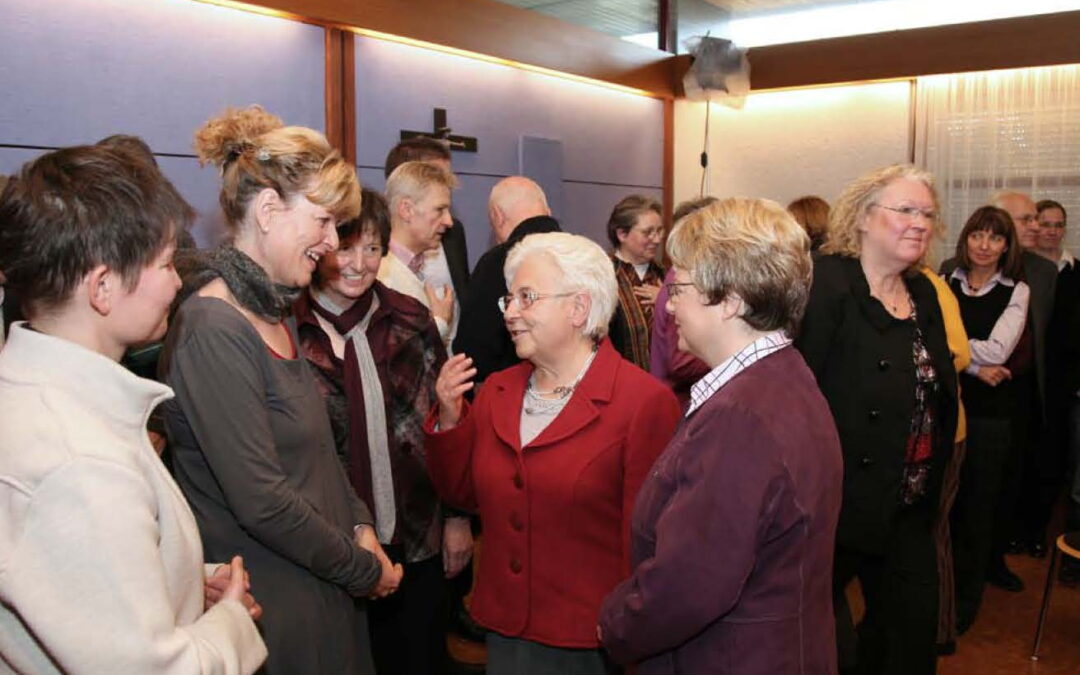
Maria Voce: “To dialogue means taking risks.”
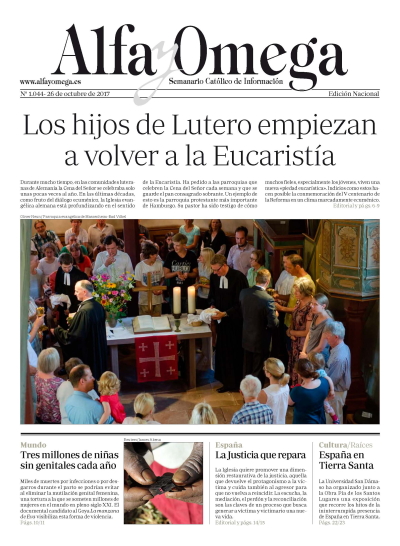 The keyword is “journey”, because “truth is sought through journeying”. Maria Voce, or Emmaus as she is known in the Focolare, became animated as she described Pope Bergoglio’s vision of ecumenism. Her eyes lit up when speaking about an ecclesial reality which truly has unity as its vocation. Such was the route undertaken by Focolare founder Chiara Lubich. It is one of the very few movements born in the Catholic Church which embraces the faithful of other churches. It is indeed a rarity in times of fragmentation. “I think that true Catholicism is what God perceives it to be: a gathering of communities each having their own identity. I imagine the moment will come, because it must come, when everyone will be one. Jesus asked for this. Therefore not just one Catholic Church: it could be Catholic in the sense of universal, but not a single Roman Church or a single Church of Constantinople.” Your words came across almost as a provocation. “Of course, they’re provocative!” Maria Voce replied. It was clear that in her “provocation” she felt supported by the Argentinean Pope. On 3 June, the last Sunday of Pentecost, the Pontiff convened the charismatic Catholic and non-Catholic movements. Before the meeting had even started, the Pope specifically asked for Maria Voce. A priest went looking for her and she joined the group of leaders sitting on the stage. At the end of his speech, the Pope approached her and, to her great surprise, took her by the hand: “Come, Maria …,” he said without adding anything else. And they left the assembly together. “From the first moment of his election, when he appeared on the balcony to greet the crowds and introduced himself as a Bishop and not as a Pontiff, I understood that it was already a sign of his ability to relate to other churches.” “Jorge Mario Bergoglio,” Maria Voce recalls, “had a living experience of ecumenism with other churches in Buenos Aires. Considering that time, Maria Voce identified the seed of what happened as a consequence during his pontificate, which reached its utmost expression with the Pope’s presence, almost a year ago, in commemorative celebrations held in Lund (Sweden) which marked the 5th centenary of the Protestant Reformation of Martin Luther. “Something immense happened in Lund, when two Church leaders at the same level of authority met and signed a joint statement.” The challenge is to follow the Pope’s example and join in the ‘spirit of Lund’. “If John Paul II will always be remembered for the ‘spirit of Assisi’, the present Pope should be remembered for the ‘spirit of Lund’.”
The keyword is “journey”, because “truth is sought through journeying”. Maria Voce, or Emmaus as she is known in the Focolare, became animated as she described Pope Bergoglio’s vision of ecumenism. Her eyes lit up when speaking about an ecclesial reality which truly has unity as its vocation. Such was the route undertaken by Focolare founder Chiara Lubich. It is one of the very few movements born in the Catholic Church which embraces the faithful of other churches. It is indeed a rarity in times of fragmentation. “I think that true Catholicism is what God perceives it to be: a gathering of communities each having their own identity. I imagine the moment will come, because it must come, when everyone will be one. Jesus asked for this. Therefore not just one Catholic Church: it could be Catholic in the sense of universal, but not a single Roman Church or a single Church of Constantinople.” Your words came across almost as a provocation. “Of course, they’re provocative!” Maria Voce replied. It was clear that in her “provocation” she felt supported by the Argentinean Pope. On 3 June, the last Sunday of Pentecost, the Pontiff convened the charismatic Catholic and non-Catholic movements. Before the meeting had even started, the Pope specifically asked for Maria Voce. A priest went looking for her and she joined the group of leaders sitting on the stage. At the end of his speech, the Pope approached her and, to her great surprise, took her by the hand: “Come, Maria …,” he said without adding anything else. And they left the assembly together. “From the first moment of his election, when he appeared on the balcony to greet the crowds and introduced himself as a Bishop and not as a Pontiff, I understood that it was already a sign of his ability to relate to other churches.” “Jorge Mario Bergoglio,” Maria Voce recalls, “had a living experience of ecumenism with other churches in Buenos Aires. Considering that time, Maria Voce identified the seed of what happened as a consequence during his pontificate, which reached its utmost expression with the Pope’s presence, almost a year ago, in commemorative celebrations held in Lund (Sweden) which marked the 5th centenary of the Protestant Reformation of Martin Luther. “Something immense happened in Lund, when two Church leaders at the same level of authority met and signed a joint statement.” The challenge is to follow the Pope’s example and join in the ‘spirit of Lund’. “If John Paul II will always be remembered for the ‘spirit of Assisi’, the present Pope should be remembered for the ‘spirit of Lund’.”
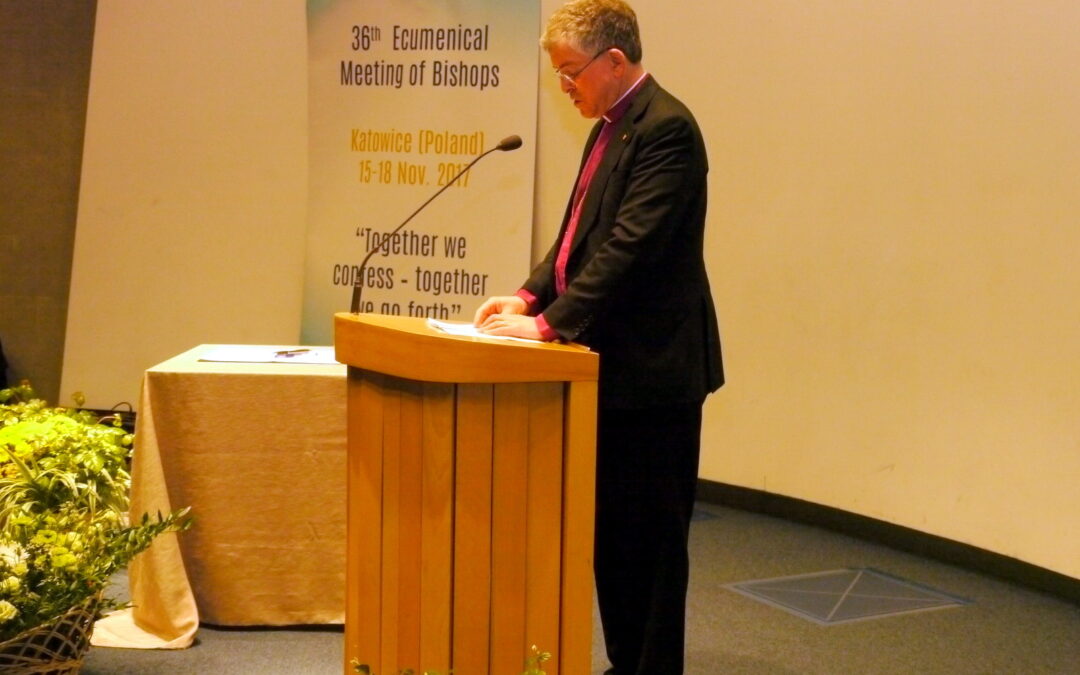
The Churches, going towards humanity together
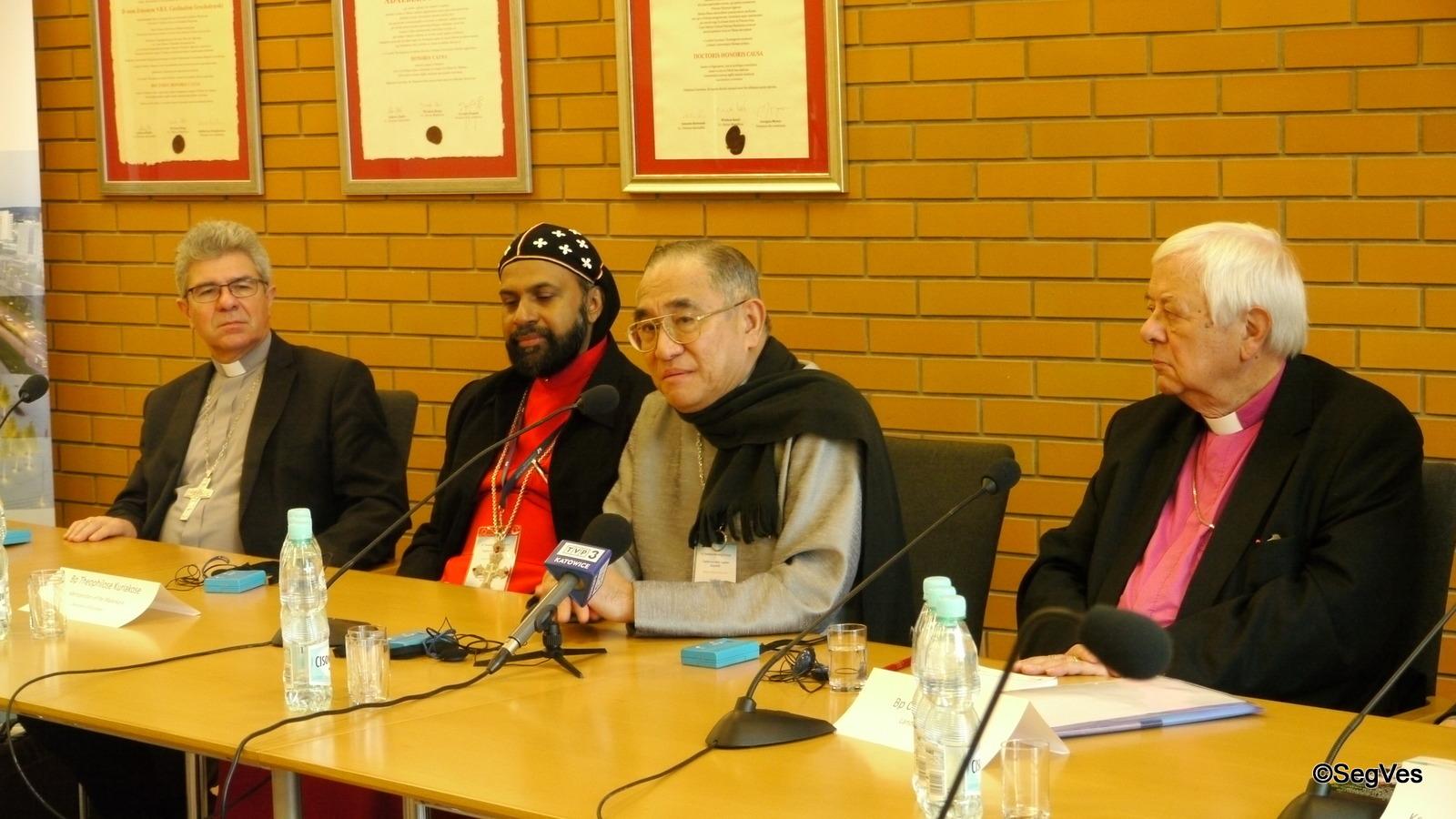 For the first time after 36 years, Poland was the host country of the annual ecumenical convention of the Bishop-friends of the Focolare Movement. After Jerusalem, Istanbul, London, Augsburg and other “symbolic” cities of the ecumenical commitment, Katowice, capital of Slesia, an ancient city of almost 300,000 inhabitant, welcomed, from 15 to 18 November, 35 bishops of different Churches: Orthodox, Syriac-Orthodox, Evangelical-Lutherans, Anglican, Methodists and Catholics from Germany, Austria, England, Ireland, Sweden, Poland, Hungary, Lithuania, Latvia, Czech Republic, but also Brazil, Cyprus, India, Democratic Republic of Congo, Thailand and the USA. Along with around thirty lay people the bishops gathered in Katowice represented a cross section of various social and ecclesial communities, driven by the desire to make an experience of fraternal communion. “Together we confess, together we go forth” was the title of the Convention, which was organized not only by the Focolare Movement, but also by the local Catholic Archdiocese and the Evangelical-Lutheran Church of Augustinian Confession, the Orthodox Church of Sosnowiec, the Faculty of Theology of the Slesia University and the city of Katowice itself, represented by mayor Marcin Krupa.
For the first time after 36 years, Poland was the host country of the annual ecumenical convention of the Bishop-friends of the Focolare Movement. After Jerusalem, Istanbul, London, Augsburg and other “symbolic” cities of the ecumenical commitment, Katowice, capital of Slesia, an ancient city of almost 300,000 inhabitant, welcomed, from 15 to 18 November, 35 bishops of different Churches: Orthodox, Syriac-Orthodox, Evangelical-Lutherans, Anglican, Methodists and Catholics from Germany, Austria, England, Ireland, Sweden, Poland, Hungary, Lithuania, Latvia, Czech Republic, but also Brazil, Cyprus, India, Democratic Republic of Congo, Thailand and the USA. Along with around thirty lay people the bishops gathered in Katowice represented a cross section of various social and ecclesial communities, driven by the desire to make an experience of fraternal communion. “Together we confess, together we go forth” was the title of the Convention, which was organized not only by the Focolare Movement, but also by the local Catholic Archdiocese and the Evangelical-Lutheran Church of Augustinian Confession, the Orthodox Church of Sosnowiec, the Faculty of Theology of the Slesia University and the city of Katowice itself, represented by mayor Marcin Krupa. 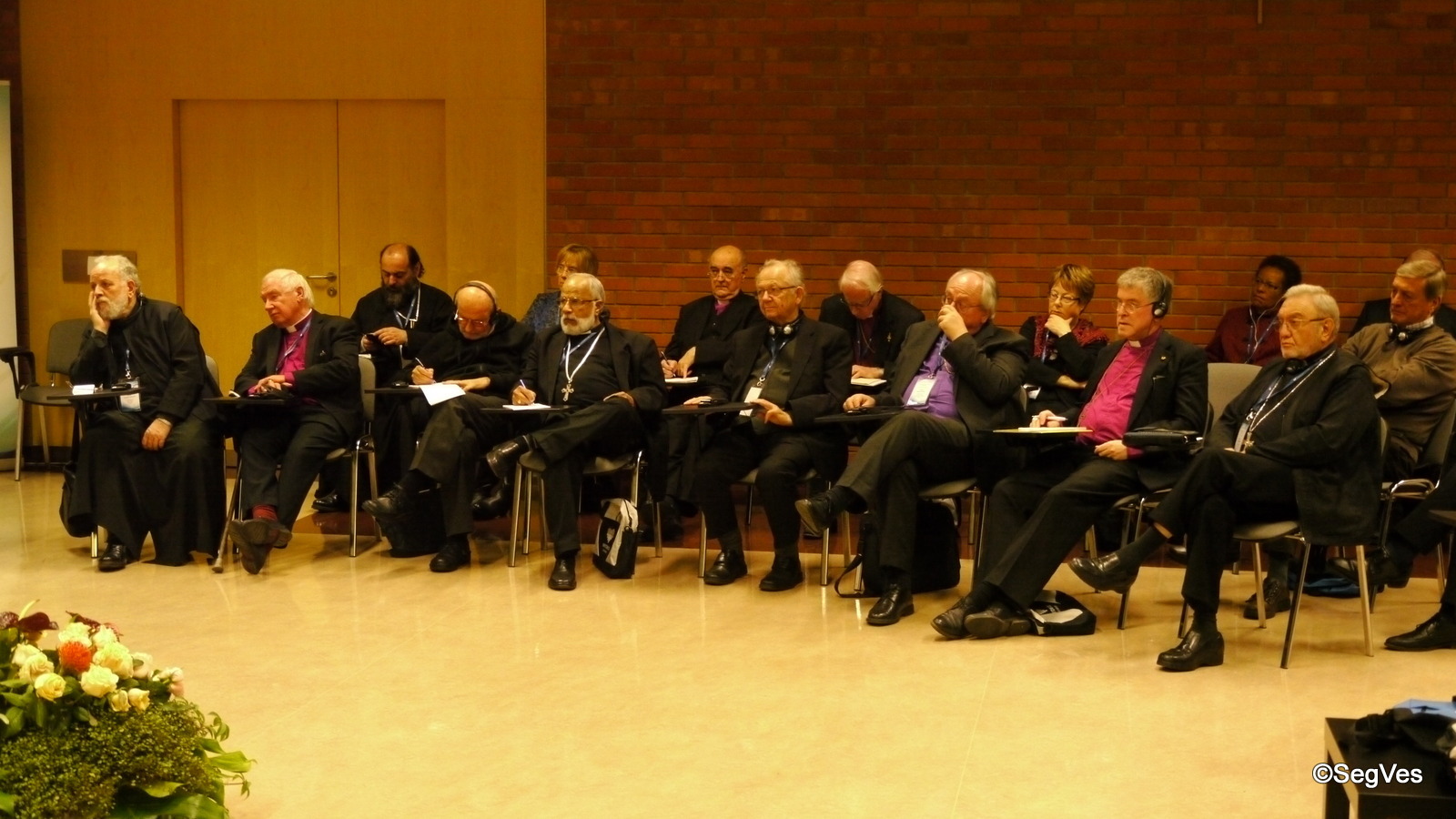 The convention opened with the reflection of Lesley Ellison, an Anglican, on “The Spirituality of unity: an ecumenical spirituality,” and had as its central theme “Mary, the Mother of Jesus,” with the theological studies in the various Catholic, Evangelic, Anglican and Orthodox perspectives. There were many encounters, celebrations and moments of prayer according to the various traditions, sealed by a “pact of mutual love” to live fraternal communion and to “love the Church of the other as one’s own Brendan Leahly is the Catholic bishop of Limerick (Irelanda), expert and counselor of ecumenical dialogue in his country. Interviewed on the phone, he said: “I want to underline the warm welcome received in Katowice, which I had already visited in 1991, on the occasion of Chiara Lubich’s encounter with the Focolare centers of Western and Eastern Europe. It is a highly developed city, which valorizes diversity and hospitality. Just as what we experienced in these days, the hospitality of the Faculty of Theology which hosted us, but also of the Catholic, Lutheran and Orthodox Churches.” The convention was the occasion to get to know one another better, and acquire a deeper knowledge of the different ecclesial and socio-cultural realities we live in, especially in the Middle East and Eastern Europe. We realize that we cannot offer solutions for the problems of those countries (especially regarding the Middle East), but we can at least carry one another’s burdens. Feeling the suffering of others has enlarged my heart. Now I no longer feel only like an Irish bishop, I carry within also the situations and problems of the other bishops. But with a new hope. In every country there are signs of hope, and the steps taken at ecumenical level go to prove this fact. For example in the Czech Republic a process of mutual forgiveness is underway for the errors committed. Ecumenism – he continued– is a reality that started its path many years ago, and will meet ever new situations and give new testimonials. It is, after all, an experience of giving and receiving. What strikes me is the strong Catholic faith which is deeply rooted here in Poland, but also the openness to dialogue with the representatives of the other communities.”
The convention opened with the reflection of Lesley Ellison, an Anglican, on “The Spirituality of unity: an ecumenical spirituality,” and had as its central theme “Mary, the Mother of Jesus,” with the theological studies in the various Catholic, Evangelic, Anglican and Orthodox perspectives. There were many encounters, celebrations and moments of prayer according to the various traditions, sealed by a “pact of mutual love” to live fraternal communion and to “love the Church of the other as one’s own Brendan Leahly is the Catholic bishop of Limerick (Irelanda), expert and counselor of ecumenical dialogue in his country. Interviewed on the phone, he said: “I want to underline the warm welcome received in Katowice, which I had already visited in 1991, on the occasion of Chiara Lubich’s encounter with the Focolare centers of Western and Eastern Europe. It is a highly developed city, which valorizes diversity and hospitality. Just as what we experienced in these days, the hospitality of the Faculty of Theology which hosted us, but also of the Catholic, Lutheran and Orthodox Churches.” The convention was the occasion to get to know one another better, and acquire a deeper knowledge of the different ecclesial and socio-cultural realities we live in, especially in the Middle East and Eastern Europe. We realize that we cannot offer solutions for the problems of those countries (especially regarding the Middle East), but we can at least carry one another’s burdens. Feeling the suffering of others has enlarged my heart. Now I no longer feel only like an Irish bishop, I carry within also the situations and problems of the other bishops. But with a new hope. In every country there are signs of hope, and the steps taken at ecumenical level go to prove this fact. For example in the Czech Republic a process of mutual forgiveness is underway for the errors committed. Ecumenism – he continued– is a reality that started its path many years ago, and will meet ever new situations and give new testimonials. It is, after all, an experience of giving and receiving. What strikes me is the strong Catholic faith which is deeply rooted here in Poland, but also the openness to dialogue with the representatives of the other communities.” 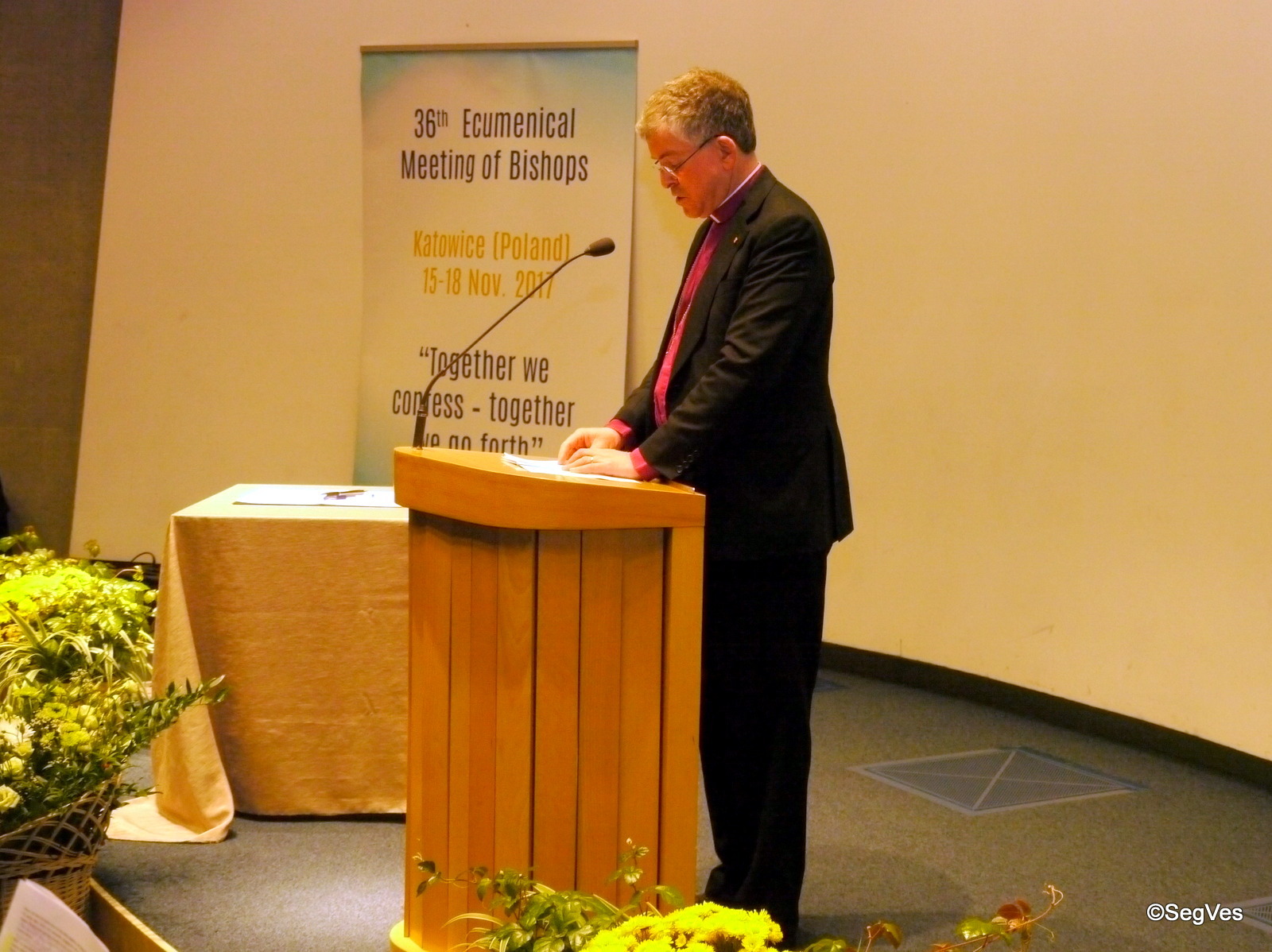 Åke Bonnier, Lutheran bishop of the diocese of Skara, in Sweden, said he was happy about the convention: «We were not bishops but brothers. What we shared in the convention was a reality, both during the breaks and intervals, and also during the celebrations. This was very important for me, it gave me new strength and enthusiasm. I now look forward to next year, when, I hope all of them and also others can come to Sweden. If they ask me if this meeting was important as a path for the unity of Christians, my answer is yes. Unity is not something that will come about only in the future, it is already a reality among us.”
Åke Bonnier, Lutheran bishop of the diocese of Skara, in Sweden, said he was happy about the convention: «We were not bishops but brothers. What we shared in the convention was a reality, both during the breaks and intervals, and also during the celebrations. This was very important for me, it gave me new strength and enthusiasm. I now look forward to next year, when, I hope all of them and also others can come to Sweden. If they ask me if this meeting was important as a path for the unity of Christians, my answer is yes. Unity is not something that will come about only in the future, it is already a reality among us.”
Chiara Lubich: “The King of the Social Dimension”
![]() If one day all people, not as individuals, but as peoples, learned to put themselves aside, to put aside the ideas they have about their own countries, their kingdoms, and offer them as incense to the Lord, the king of a kingdom that is not of this world, the guide of history, and if all were to do this as the expression of the mutual love between states that God asks for, just as he asks for mutual love among individuals, that day would be the beginning of a new era. For on that day, just as Jesus is present among two who love each other in Christ, Jesus will be alive and present among peoples, given finally his true place as the one king, not only of individual hearts but also of nations: he will be Christ the King. Christian peoples, or their representatives, must learn how to sacrifice their “collective” egos. This is the price. Nothing less is asked of each of us in order for our souls to be consumed in unity. Now is the time for every people to go beyond their own borders, to look further. Now is the time to love other countries as our own, to acquire a new purity of vision. To be Christians it is not enough to be detached from ourselves. The times we live in demand something more from the followers of Christ: the awareness of Christianity’s social dimension, which not only builds up one’s own land according to the law of Christ, but also enables other lands to be built up as well, through the universal action of the Church, and through the supernatural vision given to us by God the Father, who sees things quite differently from the way we do. We need to live as the Mystical Body of Christ in such an excellent way as to translate it into the mystical body of society […] May the Lord have mercy on this divided and confused world, on these peoples closed within their shells, contemplating their own beauty — the only beauty that exists for them – that is both limiting and unsatisfying) They strain to hold onto their treasures against all odds, the very treasures that could help other peoples who are dying of hunger. May the Lord cause all barriers to fall, and allow love to flow uninterruptedly among all lands, bringing with it torrents of spiritual and material goods. Let’s hope that the Lord will bring about a new order in the world. He alone can make humanity one family and cultivate the unique characteristics of each people so that the splendour of each, put at the service of others, may shine out with the one light of life. This light will make each earthly homeland more beautiful, so it becomes a prelude to the eternal Homeland. See also: Chiara Lubich , “Mary Transparency of God”, New City Press, 2003 p 102
If one day all people, not as individuals, but as peoples, learned to put themselves aside, to put aside the ideas they have about their own countries, their kingdoms, and offer them as incense to the Lord, the king of a kingdom that is not of this world, the guide of history, and if all were to do this as the expression of the mutual love between states that God asks for, just as he asks for mutual love among individuals, that day would be the beginning of a new era. For on that day, just as Jesus is present among two who love each other in Christ, Jesus will be alive and present among peoples, given finally his true place as the one king, not only of individual hearts but also of nations: he will be Christ the King. Christian peoples, or their representatives, must learn how to sacrifice their “collective” egos. This is the price. Nothing less is asked of each of us in order for our souls to be consumed in unity. Now is the time for every people to go beyond their own borders, to look further. Now is the time to love other countries as our own, to acquire a new purity of vision. To be Christians it is not enough to be detached from ourselves. The times we live in demand something more from the followers of Christ: the awareness of Christianity’s social dimension, which not only builds up one’s own land according to the law of Christ, but also enables other lands to be built up as well, through the universal action of the Church, and through the supernatural vision given to us by God the Father, who sees things quite differently from the way we do. We need to live as the Mystical Body of Christ in such an excellent way as to translate it into the mystical body of society […] May the Lord have mercy on this divided and confused world, on these peoples closed within their shells, contemplating their own beauty — the only beauty that exists for them – that is both limiting and unsatisfying) They strain to hold onto their treasures against all odds, the very treasures that could help other peoples who are dying of hunger. May the Lord cause all barriers to fall, and allow love to flow uninterruptedly among all lands, bringing with it torrents of spiritual and material goods. Let’s hope that the Lord will bring about a new order in the world. He alone can make humanity one family and cultivate the unique characteristics of each people so that the splendour of each, put at the service of others, may shine out with the one light of life. This light will make each earthly homeland more beautiful, so it becomes a prelude to the eternal Homeland. See also: Chiara Lubich , “Mary Transparency of God”, New City Press, 2003 p 102
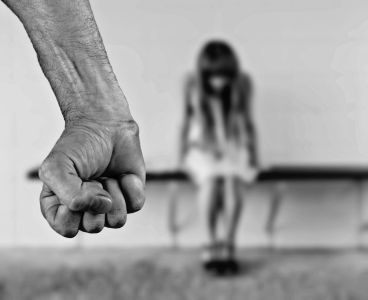
International Day for the Elimination of Violence against Women
 The “International Day for the Elimination of Violence Against Women” was established by the UN in 1999. It occurs every year on November 25 and governments, international organizations and NGOs are committed to raising awareness about the issue and thus creating public opinion. 18 years have passed since its establishment. Much has been done but it’s far from enough. There’s no need to look further afield where violence against women is concerned. It can happen right next door to us and go undetected.. . The words of St John Paul II resound very strongly in his Apostolic Letter Mulieris dignitatem (MD, August 15, 1988), underlining that “God created man and woman in his image, not just as individuals but, in their commonality as the as ‘unity of the two’. The man and woman, therefore, are essentially the same, both persons called as such to participate in the intimate life of God and to live in mutual communion with one another, in love, on the model of God who is Love, who is unity in the Trinity, and to mirror in the world the communion of love that exists in God (MD 7). ” It is a milestone which needs to be faced daily as individuals and as a society.
The “International Day for the Elimination of Violence Against Women” was established by the UN in 1999. It occurs every year on November 25 and governments, international organizations and NGOs are committed to raising awareness about the issue and thus creating public opinion. 18 years have passed since its establishment. Much has been done but it’s far from enough. There’s no need to look further afield where violence against women is concerned. It can happen right next door to us and go undetected.. . The words of St John Paul II resound very strongly in his Apostolic Letter Mulieris dignitatem (MD, August 15, 1988), underlining that “God created man and woman in his image, not just as individuals but, in their commonality as the as ‘unity of the two’. The man and woman, therefore, are essentially the same, both persons called as such to participate in the intimate life of God and to live in mutual communion with one another, in love, on the model of God who is Love, who is unity in the Trinity, and to mirror in the world the communion of love that exists in God (MD 7). ” It is a milestone which needs to be faced daily as individuals and as a society.

Living the Gospel: Professor behind bars
 “Have I really been transferred here?” Francesca asked with a pounding heart as the jail doors –a series of about ten big iron gates – opened out for her. Someone had described it as “a descent into hell.” After attending a course for jail teachers, Francesca entered the classroom for the first time. “I thought I would be assisted by a jail policeman, instead the only agent on shift had to monitor around ten classrooms and also perform other tasks at the same time. On the second day I said to myself: “It can’t go on like this! If I am afraid, it is useless that God has sent me here!” From that moment on I felt I was free to love.” In trying to see in the jailees only persons inhabited by Jesus, a journey began for Francesca. It was not so much the going to and returning from a place without limits to a place of reclusion, it was the going to the heart of many stories imbued with real humanity, errors, fear, and anguish, and also to the decision to take one’s life again into one’s hands. It was the start of a deep dialogue, with each side respecting the role of the other. “I tried to prepare the lessons very well, to make them attractive. I knew that Jesus came with me even in jail. During science lessons I started to explain about anatomy and the relations between organs and systems. Subsequently some jailees started to cut down on cigarettes, gradually abolished the use of tranquillizers, and sunbathed during out-of-cell time.” “Besides the difficulty of teaching students with different educational backgrounds – Francesca says – there other types of problems, the clanging of the gates, the irregular attendance of the students, and continuous transfers to and from other jailhouses. That is why whoever stood before me in that moment became even more precious. I might not have seen him again.” Ermal, is Albanese and a remarkably intelligent boy to whom Francesca had given the article of Pope Francis’s interview with prisoners. From that day on, a deep dialogue started about God and prayer. In a short time, Ermal reached brilliant results in school. “Professor, excuse me, I can’t write anything, I’ve got too many problems!” A young Tunisian held his head in his hands in front of a blank sheet for a class exercise. “I received the permit to bring him earphones for the PC and watch a film in his language. Slowly he relaxed, started to practice sports, made an appeal and is now hoping for a reduction of his term. Now when I see him, he greets me with a smile from behind bars.” «At Christmas –Francesca continues her story – we were invited to participate in the Christmas Eve mass. I was the only one since the other teachers had gone to the one celebrated for the “protected” jailees. We had not decided together. There were also Muslims among those present, others without any religious creed, and some jailees who had committed serious crimes. The Bishop started by saying: “You are not the crime you have committed, you are human beings. The crime regards the past; now let us look ahead with hope.” «In January Ermal obtained house arrest. But in that period he was approached by the gang which was the cause of all his problems. We could not keep contact with him, and couldn’t even get his address. Every day I entrusted him to Mary, asking her to let him return to school. After two months, due to evasion from house arrest, Ermal returned to jail! For us it was “good news” and the occasion for him to continue his studies. In a short time he brilliantly passed the High School exam. The President of the Commission told him: “Do you realise that you’ve got brains? What are you planning for the future?” “I want to study,” he said – “to prepare for University.” «After a year in school, I must say that I have come to know another world, almost like a parallel universe. My heart has expanded, and my way of thinking has changed. Many things that seem necessary “outside” are no longer so when you live a life of privation, where they are seen in the right perspective.” But the change God operates in people’s hearts goes beyond the bars or limits.
“Have I really been transferred here?” Francesca asked with a pounding heart as the jail doors –a series of about ten big iron gates – opened out for her. Someone had described it as “a descent into hell.” After attending a course for jail teachers, Francesca entered the classroom for the first time. “I thought I would be assisted by a jail policeman, instead the only agent on shift had to monitor around ten classrooms and also perform other tasks at the same time. On the second day I said to myself: “It can’t go on like this! If I am afraid, it is useless that God has sent me here!” From that moment on I felt I was free to love.” In trying to see in the jailees only persons inhabited by Jesus, a journey began for Francesca. It was not so much the going to and returning from a place without limits to a place of reclusion, it was the going to the heart of many stories imbued with real humanity, errors, fear, and anguish, and also to the decision to take one’s life again into one’s hands. It was the start of a deep dialogue, with each side respecting the role of the other. “I tried to prepare the lessons very well, to make them attractive. I knew that Jesus came with me even in jail. During science lessons I started to explain about anatomy and the relations between organs and systems. Subsequently some jailees started to cut down on cigarettes, gradually abolished the use of tranquillizers, and sunbathed during out-of-cell time.” “Besides the difficulty of teaching students with different educational backgrounds – Francesca says – there other types of problems, the clanging of the gates, the irregular attendance of the students, and continuous transfers to and from other jailhouses. That is why whoever stood before me in that moment became even more precious. I might not have seen him again.” Ermal, is Albanese and a remarkably intelligent boy to whom Francesca had given the article of Pope Francis’s interview with prisoners. From that day on, a deep dialogue started about God and prayer. In a short time, Ermal reached brilliant results in school. “Professor, excuse me, I can’t write anything, I’ve got too many problems!” A young Tunisian held his head in his hands in front of a blank sheet for a class exercise. “I received the permit to bring him earphones for the PC and watch a film in his language. Slowly he relaxed, started to practice sports, made an appeal and is now hoping for a reduction of his term. Now when I see him, he greets me with a smile from behind bars.” «At Christmas –Francesca continues her story – we were invited to participate in the Christmas Eve mass. I was the only one since the other teachers had gone to the one celebrated for the “protected” jailees. We had not decided together. There were also Muslims among those present, others without any religious creed, and some jailees who had committed serious crimes. The Bishop started by saying: “You are not the crime you have committed, you are human beings. The crime regards the past; now let us look ahead with hope.” «In January Ermal obtained house arrest. But in that period he was approached by the gang which was the cause of all his problems. We could not keep contact with him, and couldn’t even get his address. Every day I entrusted him to Mary, asking her to let him return to school. After two months, due to evasion from house arrest, Ermal returned to jail! For us it was “good news” and the occasion for him to continue his studies. In a short time he brilliantly passed the High School exam. The President of the Commission told him: “Do you realise that you’ve got brains? What are you planning for the future?” “I want to study,” he said – “to prepare for University.” «After a year in school, I must say that I have come to know another world, almost like a parallel universe. My heart has expanded, and my way of thinking has changed. Many things that seem necessary “outside” are no longer so when you live a life of privation, where they are seen in the right perspective.” But the change God operates in people’s hearts goes beyond the bars or limits.
Sophia: Start of activities of the Athenagoras-Chiara Lubich Ecumenical Professorship
The Sophia University Institute is pleased to invite you to the Inauguration of the Athenagoras- Chiara Lubich Ecumenical Professorship that will be chaired by His Eminence Gennadios Zervos, Orthodox Archbishop of Italy and Malta entitled: The Partriach Athenagoras and Chiara Lubich, protagonist of unity. Maria Stella Giannetti: Communication – External Relations Istituto Universitario Sophia Via san Vito 28, Loppiano – 50064 Figline e Incisa Valdarno (FI) Tel. +39.055.9051521 – Cell. +39.349 62 72 045
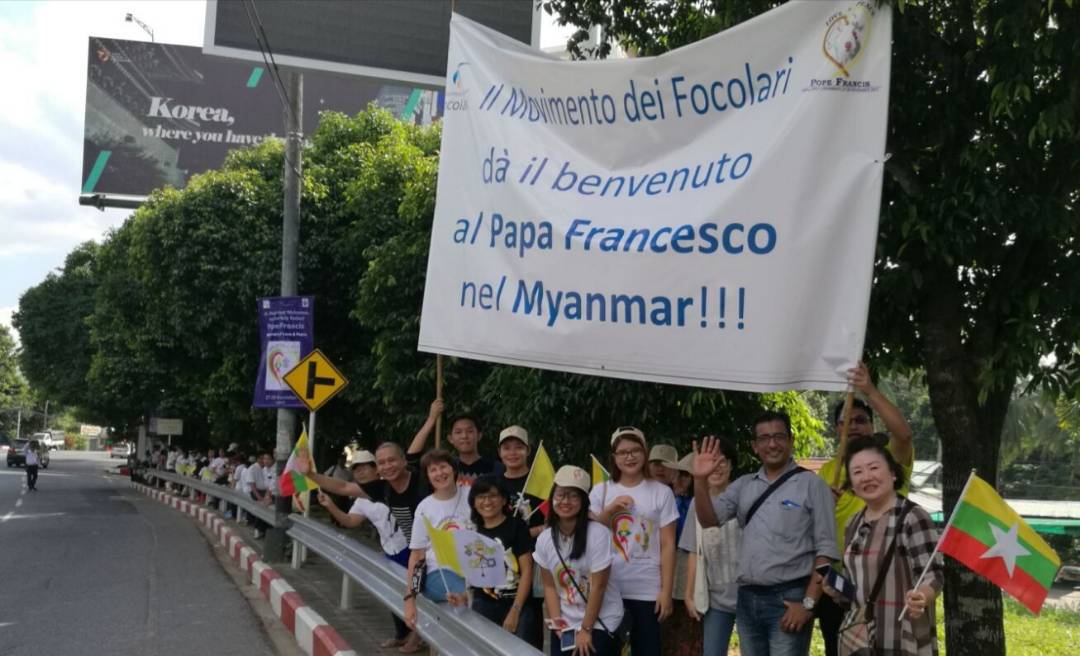
Pope Francis in Myanmar and Bangladesh
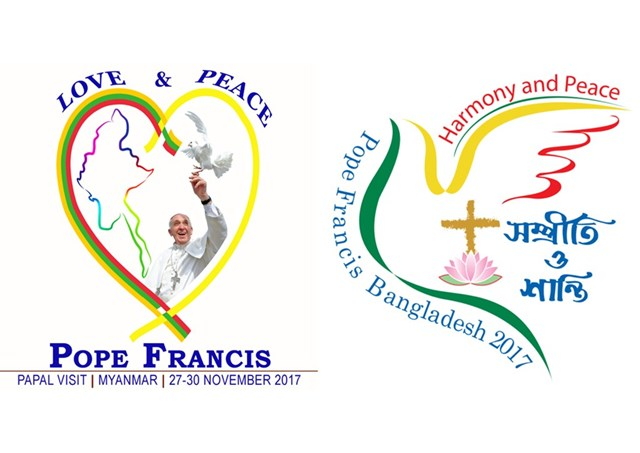 From 26 November to 2 December, Pope Francis will embark on an apostolic voyage to Asia, stopping in Myanmar from 27 to 30 November and in Bangladesh from November 30 till December 2. It will be the first visit of a Pontiff to Myanmar, while in 1986, John Paul II visited Bangladesh, one of the most densely populated and poorest countries of the world.
From 26 November to 2 December, Pope Francis will embark on an apostolic voyage to Asia, stopping in Myanmar from 27 to 30 November and in Bangladesh from November 30 till December 2. It will be the first visit of a Pontiff to Myanmar, while in 1986, John Paul II visited Bangladesh, one of the most densely populated and poorest countries of the world.  Pope Francis will travel to Dhaka, the capital city of Bangladesh. During his stay, he will meet with prominent political and civil authorities, as well as young Muslim and Hindu religious leaders in order to address major issues such as climate change, migration, the refugee crisis, the future of young people, all in view of renewed hope. The members of the Focolare Movement will be accompanying this intense week long schedule in Asia with prayer for harmony and peace. A video message recorded by Pope Francis in view of the apostolic visit to Myanmar
Pope Francis will travel to Dhaka, the capital city of Bangladesh. During his stay, he will meet with prominent political and civil authorities, as well as young Muslim and Hindu religious leaders in order to address major issues such as climate change, migration, the refugee crisis, the future of young people, all in view of renewed hope. The members of the Focolare Movement will be accompanying this intense week long schedule in Asia with prayer for harmony and peace. A video message recorded by Pope Francis in view of the apostolic visit to Myanmar
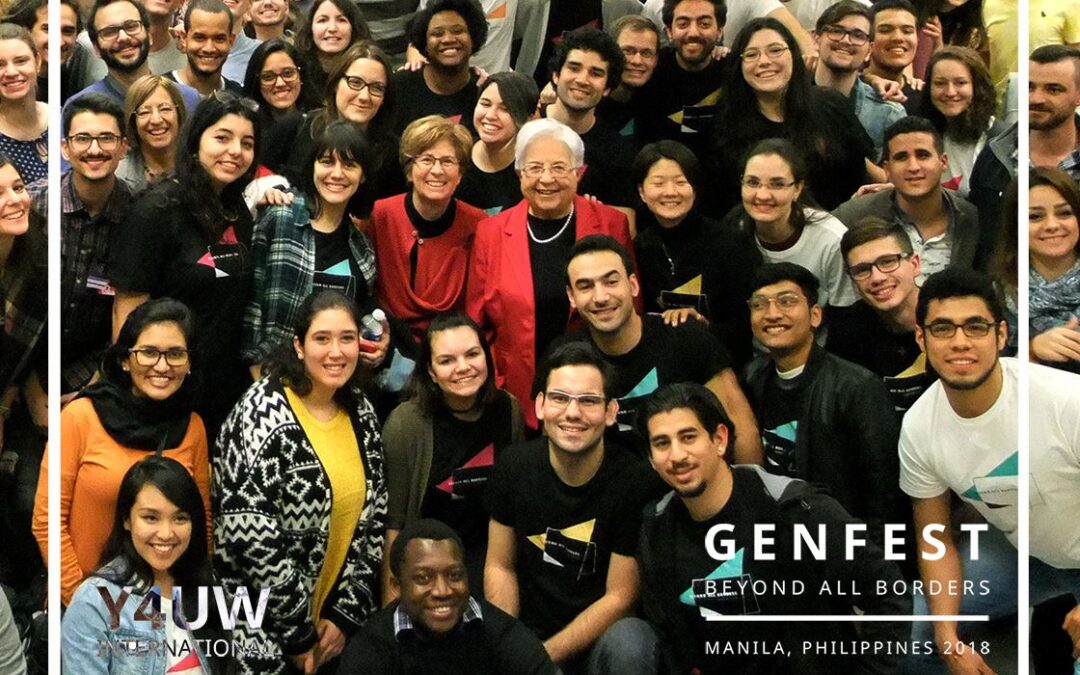
Maria Voce: “The Genfest is ours!
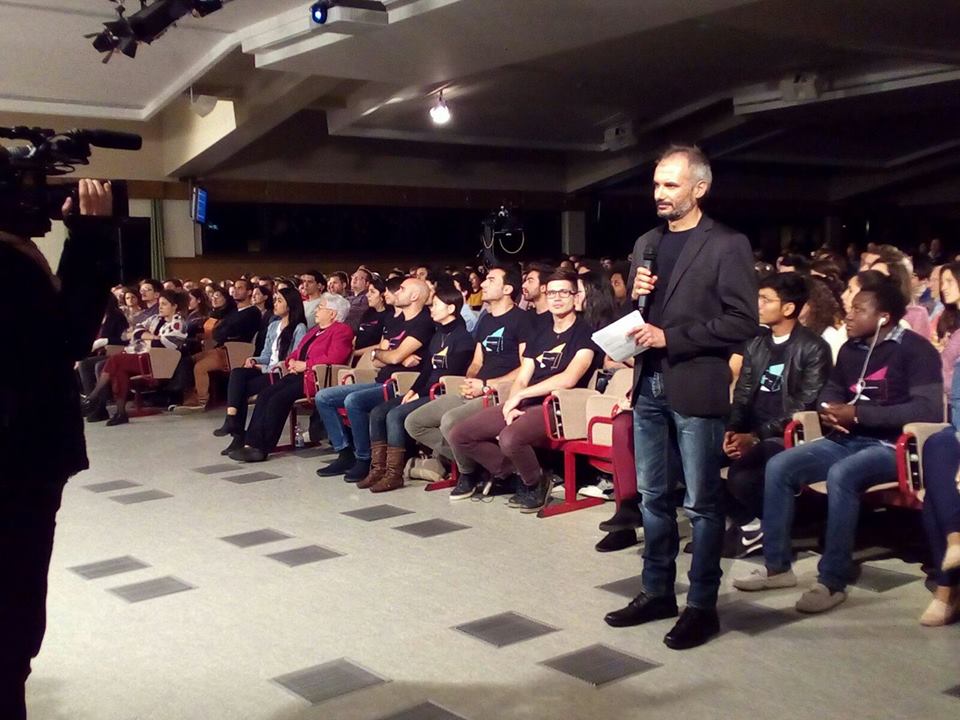
Paolo Balduzzi, TV journalist, presents the “Youth for a united World” during the live worldwide transmission.
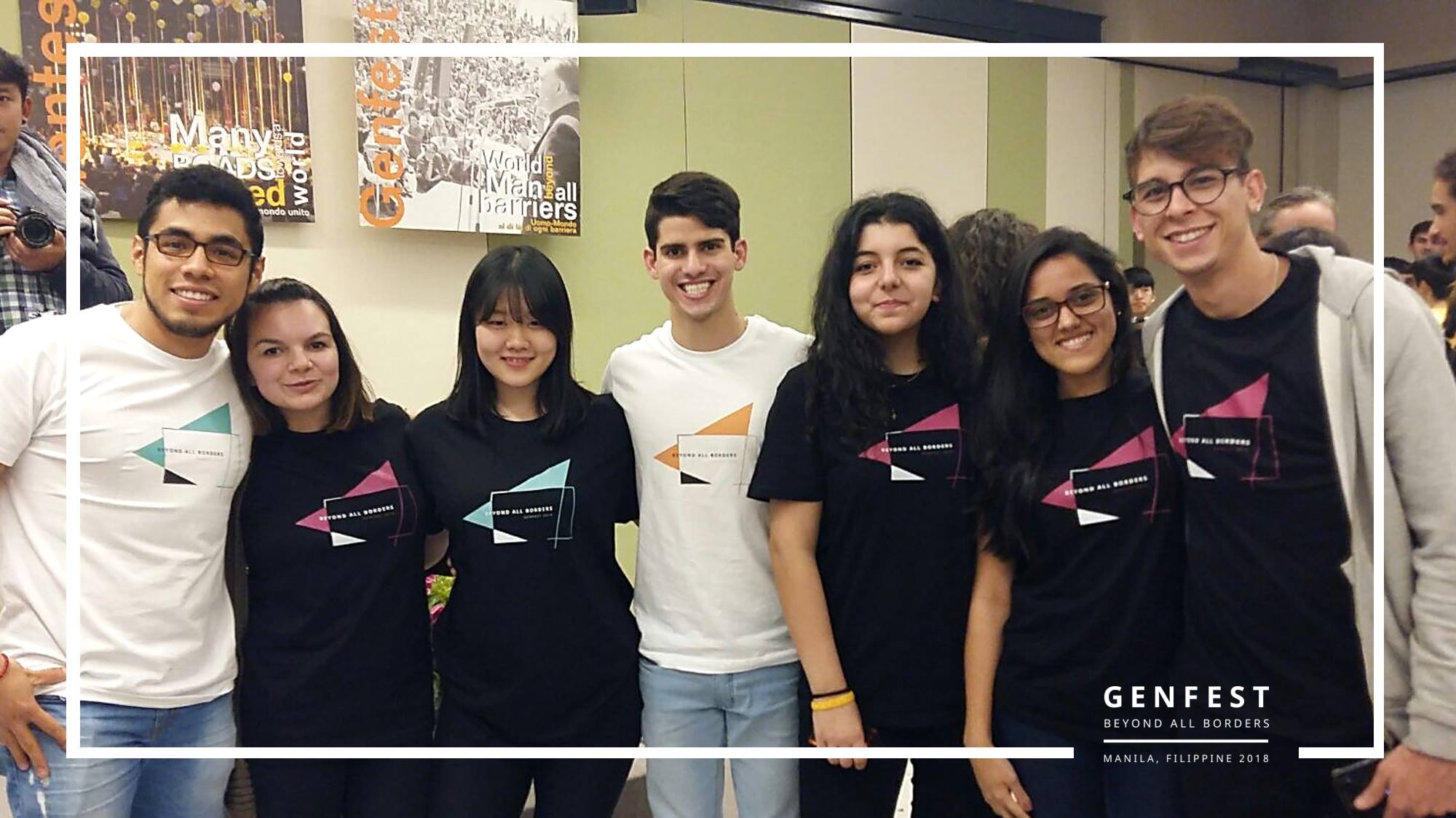 It’s that great idea that was launched by Chiara Lubich in 1987, the idea she bequeathed to the new generations. That year, the Focolare foundress stood in front of a vast crowd of young people and explained to them the reason for the Genfest: “An explosion of fires, not artificial fireworks, but real fires, the fire of God’s love. The goal of ut omnes (“Father, may they all be one” [Jn 17:20-23]) draws near. Jesus wins over and draws people along, leaving behind everything that doesn’t move, like a stream of fresh water that leaves to the sides all the things that can’t be carried ahead in its limpid waters.” Chiara added: “You’ll see the miracles of God’s grace, because God is with us, God is in our midst. He’s the only Powerful One.” Standing among the young people was the current president of the Focolare, Maria Voce. “I’d like to say a huge thank you to the young people.” They’ve made a great act of courage “which seems like the answer of today to the appeal Chiara has launched ever since 1960: ‘Young people of the world unite!’ This appeal still resounds right now, not only for you, but for everyone. The goal of a united world has not yet been reached. The first generation couldn’t do it alone. The second won’t do it alone either, because its purpose is so vast. The idea of a united world has to be passed on from one generation to the next, and all of them united together can hope to bring it to fulfilment.”
It’s that great idea that was launched by Chiara Lubich in 1987, the idea she bequeathed to the new generations. That year, the Focolare foundress stood in front of a vast crowd of young people and explained to them the reason for the Genfest: “An explosion of fires, not artificial fireworks, but real fires, the fire of God’s love. The goal of ut omnes (“Father, may they all be one” [Jn 17:20-23]) draws near. Jesus wins over and draws people along, leaving behind everything that doesn’t move, like a stream of fresh water that leaves to the sides all the things that can’t be carried ahead in its limpid waters.” Chiara added: “You’ll see the miracles of God’s grace, because God is with us, God is in our midst. He’s the only Powerful One.” Standing among the young people was the current president of the Focolare, Maria Voce. “I’d like to say a huge thank you to the young people.” They’ve made a great act of courage “which seems like the answer of today to the appeal Chiara has launched ever since 1960: ‘Young people of the world unite!’ This appeal still resounds right now, not only for you, but for everyone. The goal of a united world has not yet been reached. The first generation couldn’t do it alone. The second won’t do it alone either, because its purpose is so vast. The idea of a united world has to be passed on from one generation to the next, and all of them united together can hope to bring it to fulfilment.” 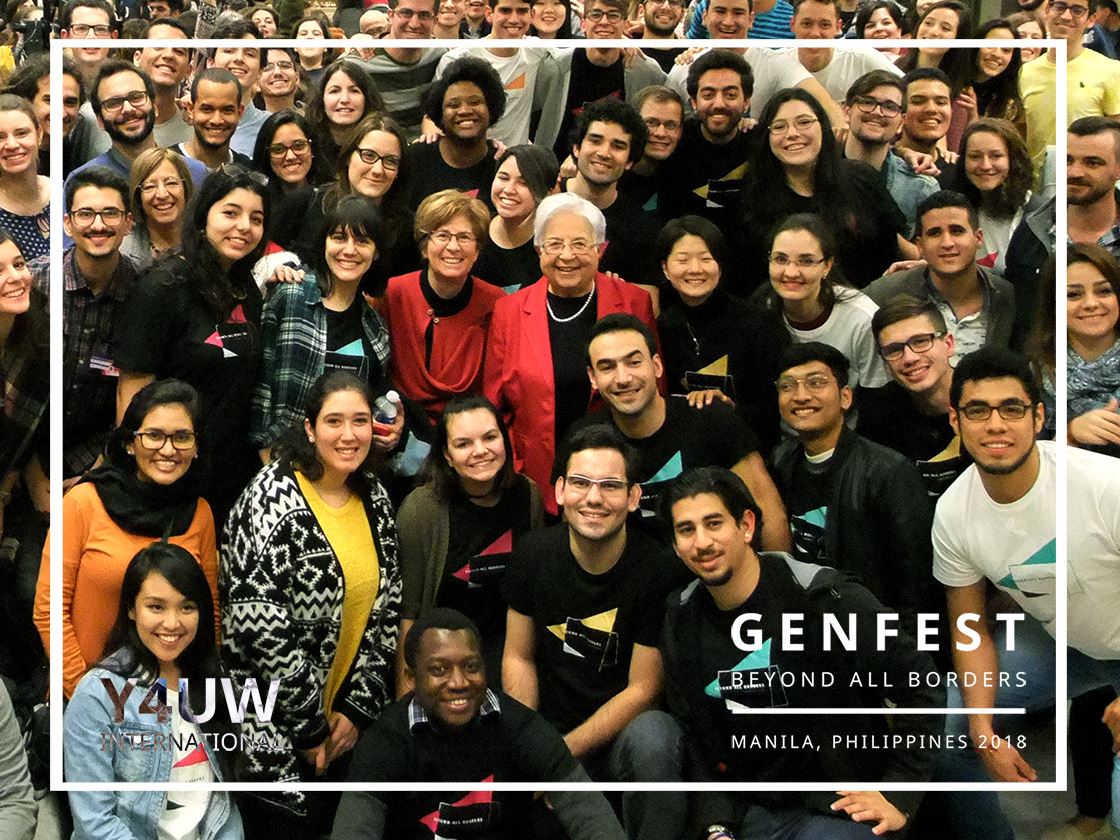 She went on to say: “The Genfest isn’t something that only regards the young, but everyone. That’s why I want to go, and I hope there will be many of us.” Everyone can do something. “Some may say: but I’m sick, I can’t… Offer your pain! Let’s all of us step up. You can help by offering hospitality; you can help the young people to prepare their programmes; you can give financial support for the young people who otherwise wouldn’t be able to attend. Let’s do all we can, whatever it takes. The Genfest is mine, it’s ours!” Before signing off, young person from the Philippines leaves everyone with a triple task: “First: organize a local Genfest. Second: do a concrete project to help at least one young person go to Manila. Third: Buy the T-shirt with our logo.” Find all the details at: Youth for a United World website, and remember this acronym Y4UW. See also: www.focolare.org/en/genfest-2018/
She went on to say: “The Genfest isn’t something that only regards the young, but everyone. That’s why I want to go, and I hope there will be many of us.” Everyone can do something. “Some may say: but I’m sick, I can’t… Offer your pain! Let’s all of us step up. You can help by offering hospitality; you can help the young people to prepare their programmes; you can give financial support for the young people who otherwise wouldn’t be able to attend. Let’s do all we can, whatever it takes. The Genfest is mine, it’s ours!” Before signing off, young person from the Philippines leaves everyone with a triple task: “First: organize a local Genfest. Second: do a concrete project to help at least one young person go to Manila. Third: Buy the T-shirt with our logo.” Find all the details at: Youth for a United World website, and remember this acronym Y4UW. See also: www.focolare.org/en/genfest-2018/

Host Spot: Last stop in Egypt
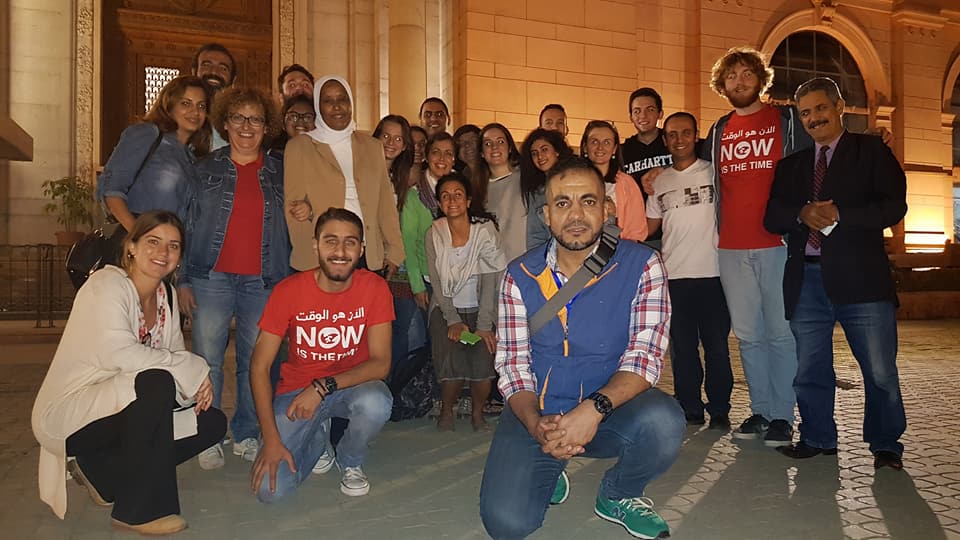 “What will my future be as a young person in my land?” This cry of Nasreen, a young Palestinian, penetrates the hearts of the other young people who listen in deep silence wanting to put balsam on her wounds, still open after years of war and social instability. Emina was seven years old when war broke out in Sarajevo. Her life changed in an instant, but her desire to mature and counter react has been stronger. And Albert from Spain: “My life changed ever since I had an experience of living in a refugee camp in Jordan. I’m no longer the same.” They are young people who are determined to revive the challenges of building the social fabric of peace starting from their own lives.
“What will my future be as a young person in my land?” This cry of Nasreen, a young Palestinian, penetrates the hearts of the other young people who listen in deep silence wanting to put balsam on her wounds, still open after years of war and social instability. Emina was seven years old when war broke out in Sarajevo. Her life changed in an instant, but her desire to mature and counter react has been stronger. And Albert from Spain: “My life changed ever since I had an experience of living in a refugee camp in Jordan. I’m no longer the same.” They are young people who are determined to revive the challenges of building the social fabric of peace starting from their own lives.  Thirty-two participants took part in the “Host Spot” project, held from 28 October to 2 November 2017 in Alexandria, Egypt. It was promoted by several NGOs and Associations, including New Humanity, “Non dalla guerra”, Caritas in Jordan, Igino Giordani Foundation (Spain), B-Net, Jesuit Culture Center (Alexandria), Ireland Focolare Trust, VACA (Palestine) and Starkmacher (Germany). Starting off from their experience of meeting at a refugee camp in Jordan in August 2016, the young people pursued their initiative by holding two follow-up events in Germany, where they dealt with some of communication techniques, and as a final stage they met in Egypt.
Thirty-two participants took part in the “Host Spot” project, held from 28 October to 2 November 2017 in Alexandria, Egypt. It was promoted by several NGOs and Associations, including New Humanity, “Non dalla guerra”, Caritas in Jordan, Igino Giordani Foundation (Spain), B-Net, Jesuit Culture Center (Alexandria), Ireland Focolare Trust, VACA (Palestine) and Starkmacher (Germany). Starting off from their experience of meeting at a refugee camp in Jordan in August 2016, the young people pursued their initiative by holding two follow-up events in Germany, where they dealt with some of communication techniques, and as a final stage they met in Egypt.  Young people from Hungary, Bosnia, Palestine, Egypt, Spain, Ireland, Italy and Jordan spent ten days together in the accomplishment of this innovative project, promoted by the European Community, in order to create connections and to build bridges between youth associations which which have as their aim the quest for peace. Through workshops, in-depth sessions on issues in the Middle East, dialogue between cultures and the importance of the media in communicating migration problems, in a world where one in two refugees is a child, the protagonists of this edition of Host Spot have embarked on a steadfast mission to spread a culture of peace, first and foremost through a training course on current affairs and information seminars on the systems which regulate the media. It was an experience which has allowed the youth protagonists to draw conclusions regarding the activities already undertaken and to plan together how to pursue this valuable collaboration between associations by developing projects and putting new synergies in place.
Young people from Hungary, Bosnia, Palestine, Egypt, Spain, Ireland, Italy and Jordan spent ten days together in the accomplishment of this innovative project, promoted by the European Community, in order to create connections and to build bridges between youth associations which which have as their aim the quest for peace. Through workshops, in-depth sessions on issues in the Middle East, dialogue between cultures and the importance of the media in communicating migration problems, in a world where one in two refugees is a child, the protagonists of this edition of Host Spot have embarked on a steadfast mission to spread a culture of peace, first and foremost through a training course on current affairs and information seminars on the systems which regulate the media. It was an experience which has allowed the youth protagonists to draw conclusions regarding the activities already undertaken and to plan together how to pursue this valuable collaboration between associations by developing projects and putting new synergies in place.
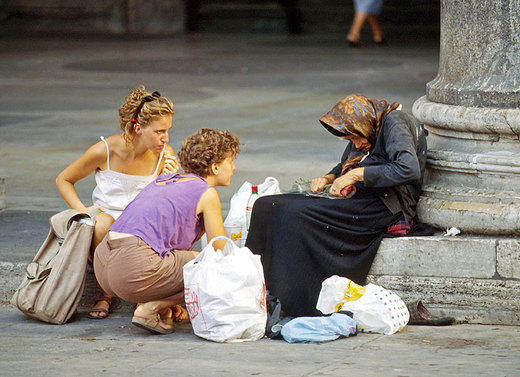
The Many Faces of Poverty
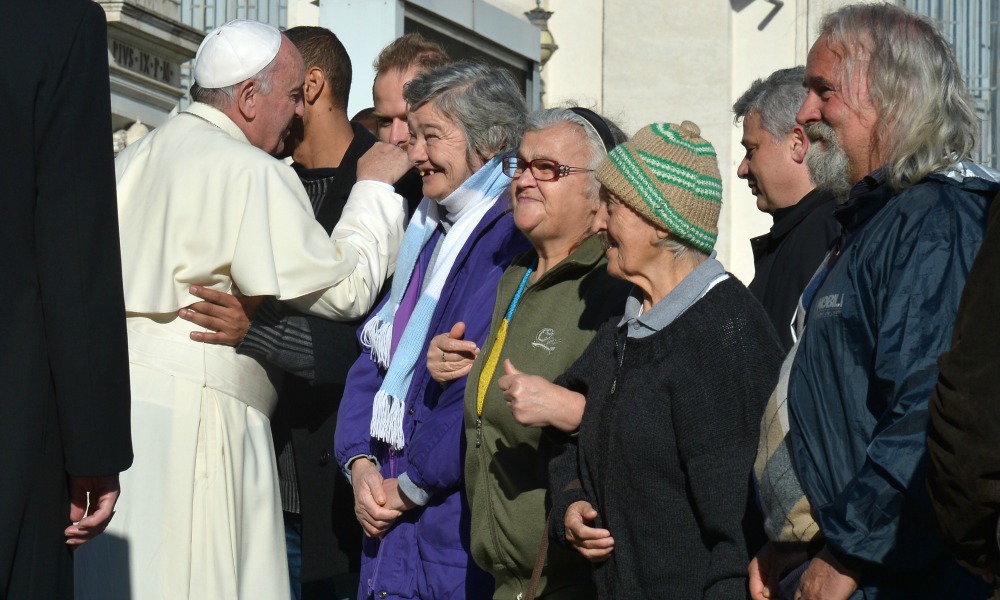 The news that was announced on June 13th by Pope Francis, who wished there to be an international day dedicated to the poor, appeared totally in line with his pontificate that is so attentive to the needs of the vulnerable and discarded by society. The response from associations, movements and institutions, as well single individuals and groups, was surprising. The Focolare Movement in Italy embraced the invitation to “create moments of encounter and friendship, solidarity and concrete help,” to love “not only with words, but with deeds.” “Although we can learn from the poor,” say Rosalba Poli and Andrea Goller who are responsible for the Focolare in Italy, “nonetheless those who have more are called to give.” Not alms, not symbolic gesture to put ones conscience at peace; the invitation is to step out of our comfort zone and our certainties,” as the Pope says, “to go out to meet the thousands of faces of poverty.” In Italy also the phenomenon is a cause of concern. According to a recent government report, nearly 5 million people are living in “absolute poverty.” Eight million and a half suffer “relative poverty.” It is a poverty of a thousand faces: marginalization, unemployment, violence, lack of aid. And mostly isolation, because being poor first of all means being excluded.
The news that was announced on June 13th by Pope Francis, who wished there to be an international day dedicated to the poor, appeared totally in line with his pontificate that is so attentive to the needs of the vulnerable and discarded by society. The response from associations, movements and institutions, as well single individuals and groups, was surprising. The Focolare Movement in Italy embraced the invitation to “create moments of encounter and friendship, solidarity and concrete help,” to love “not only with words, but with deeds.” “Although we can learn from the poor,” say Rosalba Poli and Andrea Goller who are responsible for the Focolare in Italy, “nonetheless those who have more are called to give.” Not alms, not symbolic gesture to put ones conscience at peace; the invitation is to step out of our comfort zone and our certainties,” as the Pope says, “to go out to meet the thousands of faces of poverty.” In Italy also the phenomenon is a cause of concern. According to a recent government report, nearly 5 million people are living in “absolute poverty.” Eight million and a half suffer “relative poverty.” It is a poverty of a thousand faces: marginalization, unemployment, violence, lack of aid. And mostly isolation, because being poor first of all means being excluded.  “The Day of the Poor takes us back to a primary aspect of the Focolare’s spirituality, the communion of goods,” Poli and Goller explain. “It’s a practice that has led to many social projects over the years, inspired by the desire to imitate the custom in the early Christian communities where no one was needy among them. Some of our projects include Arcobaleno Association, which has been active in Milan for more than 30 years; the La Pira Center for you foreigners in Florence; the Sempre Persona Project that helps prisoners to become reinserted into society and offers assistance to their families. Then, the Apriamoci Project from the Trentino More cultural association, such as Facciamo Casa Insieme. Others distribute food, like the l’Associazione Solidarietà in Reggio Emilia, B&F in Ascoli, Associazione Città Fraterna and Comitato Umanità Nuova in Genoa. RomAmor is involved in helping the homeless around the Ostiense Train Stations, whereas other projects welcome refugees in Lampedusa and Ventimiglia. In Pomigliano d’Arco, the Legami di Solidarietà work in an area that is strongly marked by unemployment where mutuality and sharing has made a comeback. Following the earthquake in central Italy, several Solidarity Buying Groups were instituted by the RImPRESA Project to provide on site support for local economic activities that had been damaged in the earthquake. Alongside the consolidated projects, other projects have begun in the north and south of the country, often networking with institutions or associations that work in the social field. The intent is to become stable supporters of those living in poverty. From Milan to Sicily, from Messina to Udine, there are food banks, listening centres, soup kitchens, recycling projects. There is also a home for separated parents, at the city gate of Cagliari. Meanwhile, just a few days from its activation, the App Fag-8 project already has thousands of subscriptions. It’s a technological evolution of the custom of putting ones possessions in common, material things and also talents, ideas. By downloading the app it is possible for someone to share (also in someone else’s account), a material object, a project or one’s own time. It is a tool connected to total local a national networks, that allows one to find out in a short time whether what I’m looking for is available, or if I can answer someone else’s need.
“The Day of the Poor takes us back to a primary aspect of the Focolare’s spirituality, the communion of goods,” Poli and Goller explain. “It’s a practice that has led to many social projects over the years, inspired by the desire to imitate the custom in the early Christian communities where no one was needy among them. Some of our projects include Arcobaleno Association, which has been active in Milan for more than 30 years; the La Pira Center for you foreigners in Florence; the Sempre Persona Project that helps prisoners to become reinserted into society and offers assistance to their families. Then, the Apriamoci Project from the Trentino More cultural association, such as Facciamo Casa Insieme. Others distribute food, like the l’Associazione Solidarietà in Reggio Emilia, B&F in Ascoli, Associazione Città Fraterna and Comitato Umanità Nuova in Genoa. RomAmor is involved in helping the homeless around the Ostiense Train Stations, whereas other projects welcome refugees in Lampedusa and Ventimiglia. In Pomigliano d’Arco, the Legami di Solidarietà work in an area that is strongly marked by unemployment where mutuality and sharing has made a comeback. Following the earthquake in central Italy, several Solidarity Buying Groups were instituted by the RImPRESA Project to provide on site support for local economic activities that had been damaged in the earthquake. Alongside the consolidated projects, other projects have begun in the north and south of the country, often networking with institutions or associations that work in the social field. The intent is to become stable supporters of those living in poverty. From Milan to Sicily, from Messina to Udine, there are food banks, listening centres, soup kitchens, recycling projects. There is also a home for separated parents, at the city gate of Cagliari. Meanwhile, just a few days from its activation, the App Fag-8 project already has thousands of subscriptions. It’s a technological evolution of the custom of putting ones possessions in common, material things and also talents, ideas. By downloading the app it is possible for someone to share (also in someone else’s account), a material object, a project or one’s own time. It is a tool connected to total local a national networks, that allows one to find out in a short time whether what I’m looking for is available, or if I can answer someone else’s need.
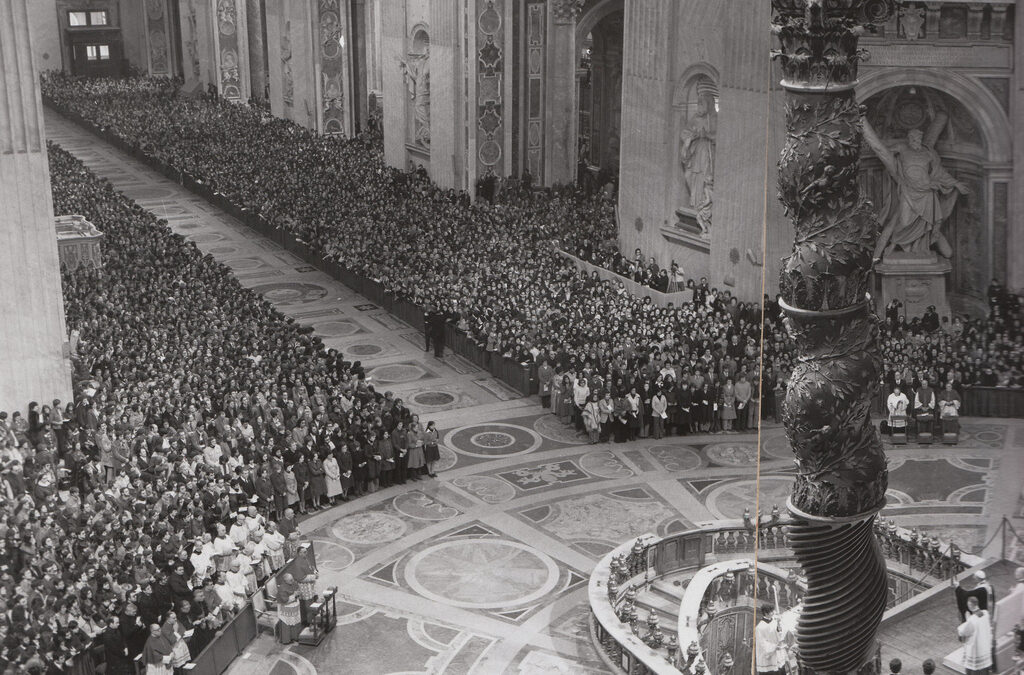
Genfest 1975: Towards a United World
It was the 1970s, a period which went down in the history of many countries as one of social unrests, protests, wars and sense of disorientation. I was in Palermo (Sicily, Italy) and in my last year of teachers’ college. I started to get involved in politics. It was a very dark era: a wave of mafia crimes had engulfed Sicily; the young people with either left or right political ideologies took part in student strikes and violence was rife. The withdrawal of the Americans from Vietnam and the fall of Saigon left open wounds caused by an absurd war. Like so many young people, I was looking for role models. In this spirit, I willingly accepted the invitation of my teacher to participate in the Genfest, a youth festival which was organised as part of the activities of Holy Year declared by Pope Paul VI. M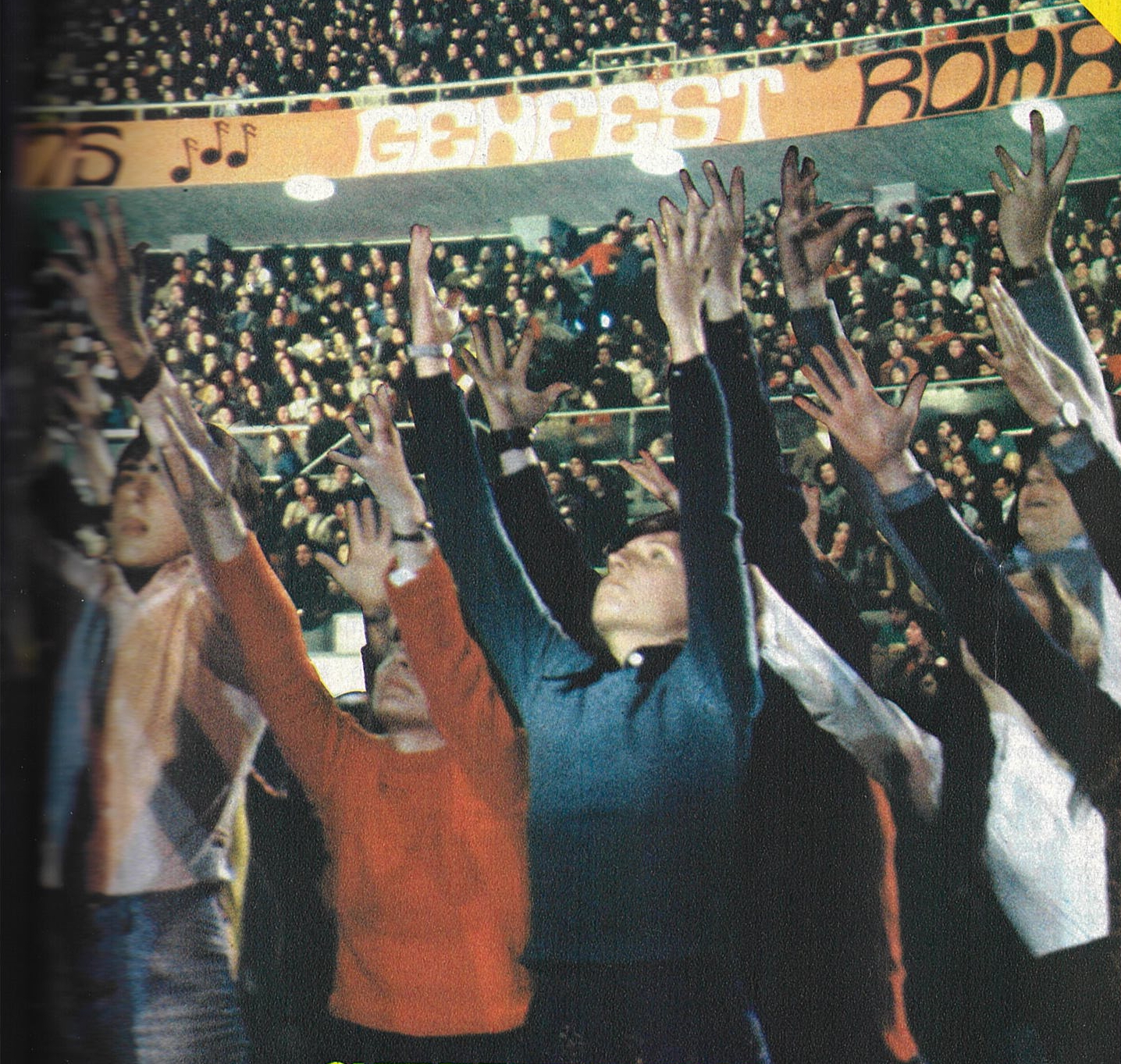 y background was in the Scouts, so I couldn’t believe that I could take part in this new experience. The invitation was extended to many other students at my school, and finally, together with my sisters, we made up our minds to attend, even though I remember that at the last minute I was tempted to stay back as I had to undertake an exam. The others encouraged me to go and so we left Palermo on a number of buses. With me I took my inseparable guitar, songbooks and tape-recorder, which at that time was rather cumbersome. During the trip, I was favourably impressed by some of the girls, the Gen, who were already living the spirituality of unity. I was struck by their attitude, the attention they were giving to everyone, the climate of harmony and serenity that they created among us, despite our exuberance, the moments of reflection that followed when we listened to the songs of Gen Rosso and Gen Verde, which I learnt to play straightaway with great enthusiasm
y background was in the Scouts, so I couldn’t believe that I could take part in this new experience. The invitation was extended to many other students at my school, and finally, together with my sisters, we made up our minds to attend, even though I remember that at the last minute I was tempted to stay back as I had to undertake an exam. The others encouraged me to go and so we left Palermo on a number of buses. With me I took my inseparable guitar, songbooks and tape-recorder, which at that time was rather cumbersome. During the trip, I was favourably impressed by some of the girls, the Gen, who were already living the spirituality of unity. I was struck by their attitude, the attention they were giving to everyone, the climate of harmony and serenity that they created among us, despite our exuberance, the moments of reflection that followed when we listened to the songs of Gen Rosso and Gen Verde, which I learnt to play straightaway with great enthusiasm 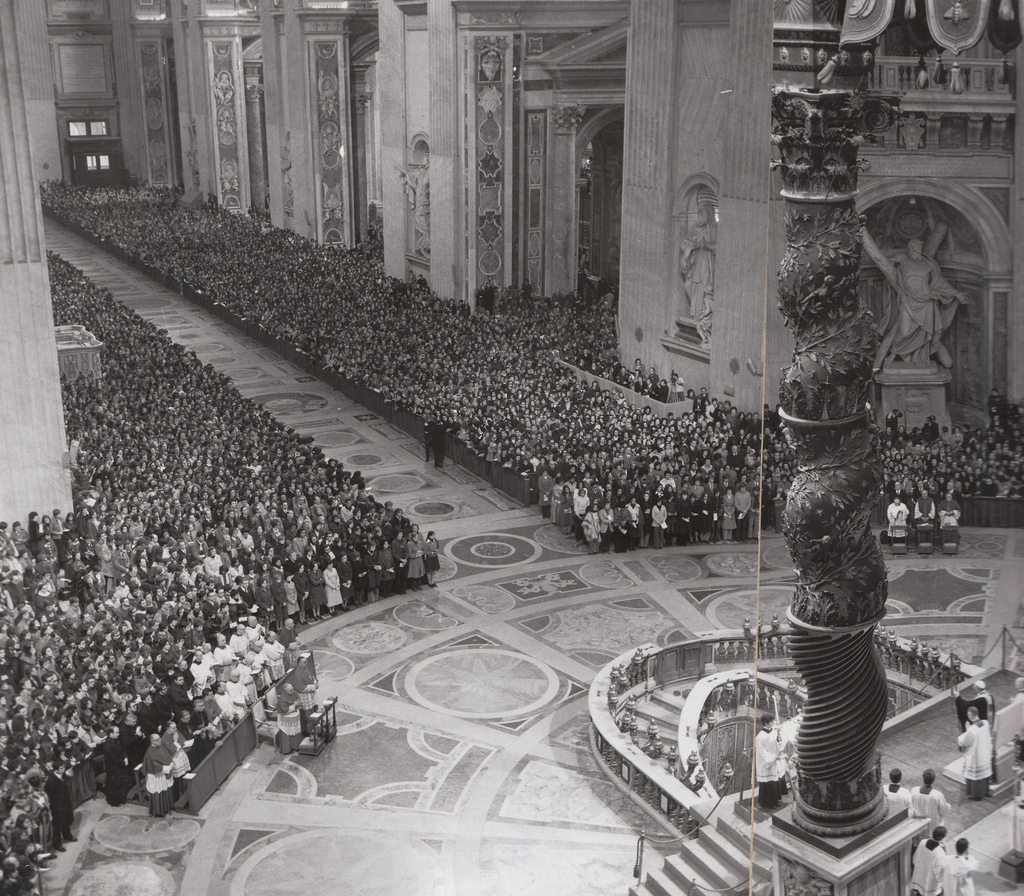 It was March 1st, 1975. The Sports Palace in Rome which had gathered 20,000 young people from five continents, made a powerful impact on me. I immediately experienced the power of the Gospel when it is lived. For example, it was the first time that I found myself sharing deeply with someone who was sitting next to me, thus having the experience of living as brothers and sisters. My dream, to see a world of peace, a united world, came true, right there. I was amazed and awestruck by the personal testimonies so much so that I almost had to pinch myself to believe that all this was happening. I listened attentively as they shared their stories from the stage: the two young people from South Africa where apartheid had not yet been defeated, the group from Belfast where there was conflict due to religious and political division. They were tangible signs that, if we really commit ourselves, we can achieve peace there where we live.
It was March 1st, 1975. The Sports Palace in Rome which had gathered 20,000 young people from five continents, made a powerful impact on me. I immediately experienced the power of the Gospel when it is lived. For example, it was the first time that I found myself sharing deeply with someone who was sitting next to me, thus having the experience of living as brothers and sisters. My dream, to see a world of peace, a united world, came true, right there. I was amazed and awestruck by the personal testimonies so much so that I almost had to pinch myself to believe that all this was happening. I listened attentively as they shared their stories from the stage: the two young people from South Africa where apartheid had not yet been defeated, the group from Belfast where there was conflict due to religious and political division. They were tangible signs that, if we really commit ourselves, we can achieve peace there where we live.
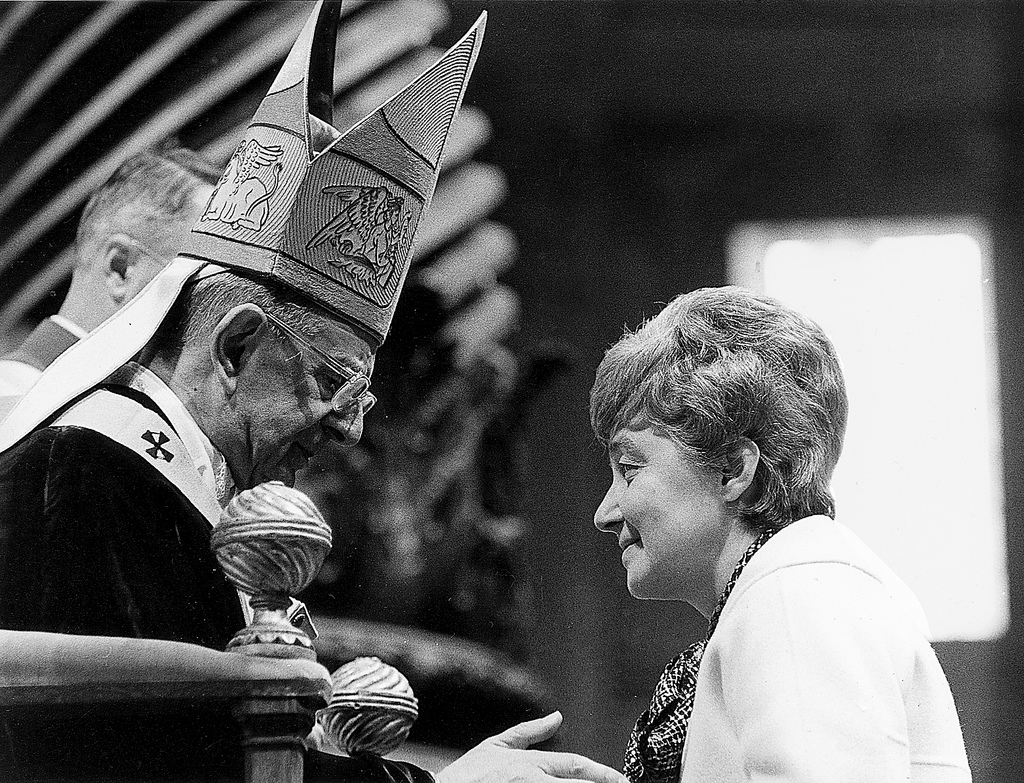 The next day, we all gathered at the Vatican, in St Peter’s Basilica, where Chiara Lubich presented us to the Holy Father. During the offertory, twelve young people, representing us, walked up with Chiara on the altar. I remember there was an endless applause. Consequently, during the Angelus (midday prayer) in St Peter’s Square, the Pope greeted us with words encouraging us to go on: “This morning, around the altar, we had twenty thousand faithful, the young Gen – New Generation – who came from all over the world. The beauty of it was something moving. We thank God and take courage. A new world is born: the Christian world of faith and charity.”
The next day, we all gathered at the Vatican, in St Peter’s Basilica, where Chiara Lubich presented us to the Holy Father. During the offertory, twelve young people, representing us, walked up with Chiara on the altar. I remember there was an endless applause. Consequently, during the Angelus (midday prayer) in St Peter’s Square, the Pope greeted us with words encouraging us to go on: “This morning, around the altar, we had twenty thousand faithful, the young Gen – New Generation – who came from all over the world. The beauty of it was something moving. We thank God and take courage. A new world is born: the Christian world of faith and charity.”
It was truly the beginning of a new world. For me it marked the beginning of a new life.
Patrizia Mazzola
Rights of the Child World Day
 On 20 November 1959 the UN General Assembly adopted the Declaration of the Rights of the Child and approved in 1989, the International Convention on the rights of infants and adolescents. Based on the harmonization of different cultural and juridical experiences, the Convention enunciated for the first time, and in a coherent way, the fundamental rights to be recognized and guaranteed for all the children of the world. The document stated the four key issues: the lack of denunciation, greater interest, life and survival and development, and lastly, listening in all the decision-making processes. The Convention also provides for a control mechanism on the work of the States that have to present a periodic report on its implementation in their territories. According to UNICEF, every year millions of children continue to be victims of violence, abuse, abandonment, exploitation, wars and discrimination. A lot has been done, but still more must be done to achieve a concrete application of these principles.
On 20 November 1959 the UN General Assembly adopted the Declaration of the Rights of the Child and approved in 1989, the International Convention on the rights of infants and adolescents. Based on the harmonization of different cultural and juridical experiences, the Convention enunciated for the first time, and in a coherent way, the fundamental rights to be recognized and guaranteed for all the children of the world. The document stated the four key issues: the lack of denunciation, greater interest, life and survival and development, and lastly, listening in all the decision-making processes. The Convention also provides for a control mechanism on the work of the States that have to present a periodic report on its implementation in their territories. According to UNICEF, every year millions of children continue to be victims of violence, abuse, abandonment, exploitation, wars and discrimination. A lot has been done, but still more must be done to achieve a concrete application of these principles.

Hemmerle: Infancy, Dawn of a Prophecy
 There is a pram beside the supermarket cashier, and a newborn inside it. In the crowd, nobody heeds the others. All are taken up in waiting for their turn, making sure nobody skips the line and be able to come first and finish quickly. But before the child, many stop to smile, and say some kind words. Children have the exceptional power to break down the aloofness of our society and create a simple link with their presence. Children belong to their parents and their family, but at the same time to all of us. They are, so to say a “common asset.” In a certain way this is true for children in general, that is, for every child, as what the prophet announced regarding one child: “A child is born for us, we have been given a son” (Is 9,5). Children are gifts which we all receive. What do they give us? The answer is – the future? Obviously, if there were no children humanity would have no future. But our answer has a deeper sense. Instinctively we experience the child as a promise, like the dawn of that better future we all are hoping for. We do not only ask a child: What will your future be? But also: What future will you bring us? In fact, what will the future be, and what will happen or not happen depends on those who are children today. The future is already here, in the babies who are born. (pp 39-40) Becoming a human person means becoming a child. Since Adam and Eve there has been no exception to this. The journey that leads to adulthood traverses childhood. And this is precisely the path of God: the Son of God who became man, by becoming a child. We belong to him if we accept his friends, the children, and if we welcome him like children. Only those who become children will enter into the Kingdom. Become simple and pure, sharing sufferings and joys. Allow ourselves to be receivers of a gift and return the gesture. The child: virtue that saves us from resignation and calculations, and from egoism and senselessness. The child asks us to let him live, to have his own vital space. The Child in the manger is he who is inviting us to become men like him and receive a divine life from him. (p. 34) Klaus Hemmerle, from “Dio si è fatto bambino” (“God made himself man”) – Ed. Città Nuova Rome 1994.
There is a pram beside the supermarket cashier, and a newborn inside it. In the crowd, nobody heeds the others. All are taken up in waiting for their turn, making sure nobody skips the line and be able to come first and finish quickly. But before the child, many stop to smile, and say some kind words. Children have the exceptional power to break down the aloofness of our society and create a simple link with their presence. Children belong to their parents and their family, but at the same time to all of us. They are, so to say a “common asset.” In a certain way this is true for children in general, that is, for every child, as what the prophet announced regarding one child: “A child is born for us, we have been given a son” (Is 9,5). Children are gifts which we all receive. What do they give us? The answer is – the future? Obviously, if there were no children humanity would have no future. But our answer has a deeper sense. Instinctively we experience the child as a promise, like the dawn of that better future we all are hoping for. We do not only ask a child: What will your future be? But also: What future will you bring us? In fact, what will the future be, and what will happen or not happen depends on those who are children today. The future is already here, in the babies who are born. (pp 39-40) Becoming a human person means becoming a child. Since Adam and Eve there has been no exception to this. The journey that leads to adulthood traverses childhood. And this is precisely the path of God: the Son of God who became man, by becoming a child. We belong to him if we accept his friends, the children, and if we welcome him like children. Only those who become children will enter into the Kingdom. Become simple and pure, sharing sufferings and joys. Allow ourselves to be receivers of a gift and return the gesture. The child: virtue that saves us from resignation and calculations, and from egoism and senselessness. The child asks us to let him live, to have his own vital space. The Child in the manger is he who is inviting us to become men like him and receive a divine life from him. (p. 34) Klaus Hemmerle, from “Dio si è fatto bambino” (“God made himself man”) – Ed. Città Nuova Rome 1994.

Worldwide Linkup on Saturday, 18th November
 Promo video su Facebook – Collegamento CH
Promo video su Facebook – Collegamento CH
Study-Seminar of Migration and Trafficking
See program of seminar to be held at LUMSA University, Borgo Sant’Angelo,13, Rome on 28 November 2017 Official Website Seminar brochure
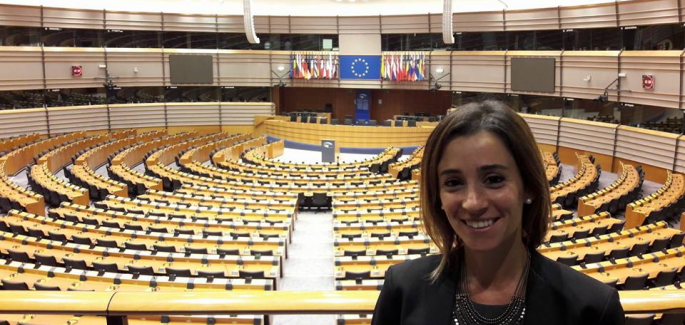
Profit as a means
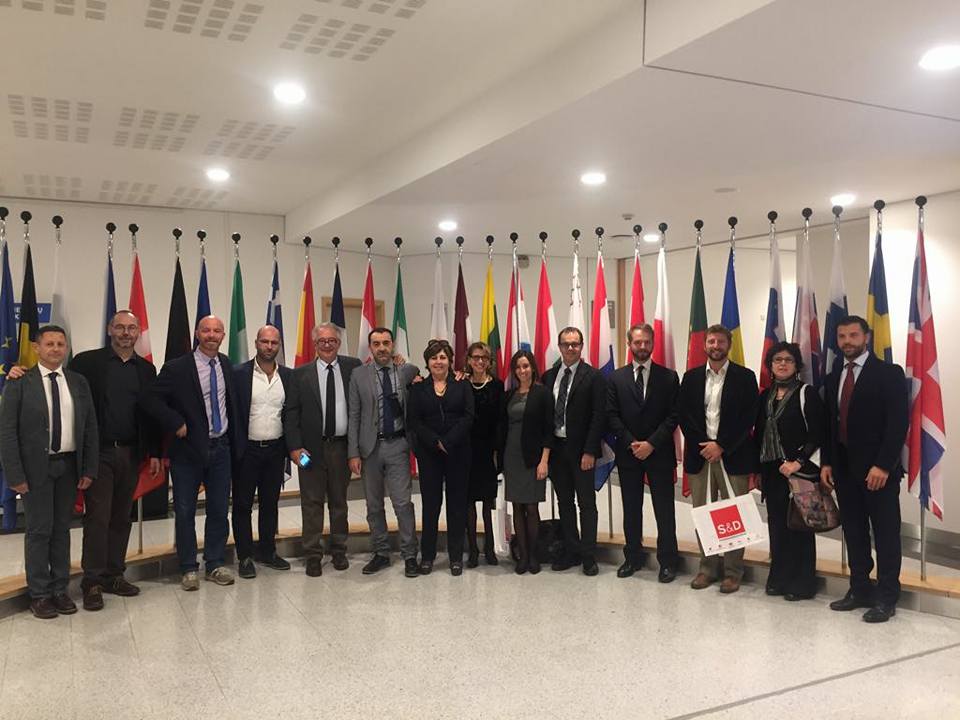 Halfway through two international days, namely the UN’s one dedicated to the eradication of poverty on October 17 and that of Pope Francis on November 19, aimed at global solidarity with the poor, the question which arose was insistent: Is it possible to reduce and totally eliminate inequalities? Economists, NGOs, associations, national and international institutions discussed and sought ways to reduce pockets of poverty and their consequences. A debate which was organized in Brussels in October by the European Intergroup Fighting against poverty, in defence of Human rights, and ATD Fourth World, hosted the contributions of several organizations that attempt alternative methods to help people in difficulty overcome their situation. Their method consists not so much in lowering subsidies, but in activating network paths. Among the contributions was that of Florencia Locascio from Argentina, a representative for the Economy of Communion project (EoC). “The Economy of Communion,” explains Locascio, “is a movement of people, entrepreneurs, workers, consumers, scholars and citizens committed to responding to reducing poverty, to fostering an economic and civic culture that puts at the centre the person and the value of relationships. The EoC conceives profit as a means of growth which is sustainable, inclusive and in solidarity with human beings and society as a whole. ”
Halfway through two international days, namely the UN’s one dedicated to the eradication of poverty on October 17 and that of Pope Francis on November 19, aimed at global solidarity with the poor, the question which arose was insistent: Is it possible to reduce and totally eliminate inequalities? Economists, NGOs, associations, national and international institutions discussed and sought ways to reduce pockets of poverty and their consequences. A debate which was organized in Brussels in October by the European Intergroup Fighting against poverty, in defence of Human rights, and ATD Fourth World, hosted the contributions of several organizations that attempt alternative methods to help people in difficulty overcome their situation. Their method consists not so much in lowering subsidies, but in activating network paths. Among the contributions was that of Florencia Locascio from Argentina, a representative for the Economy of Communion project (EoC). “The Economy of Communion,” explains Locascio, “is a movement of people, entrepreneurs, workers, consumers, scholars and citizens committed to responding to reducing poverty, to fostering an economic and civic culture that puts at the centre the person and the value of relationships. The EoC conceives profit as a means of growth which is sustainable, inclusive and in solidarity with human beings and society as a whole. ” 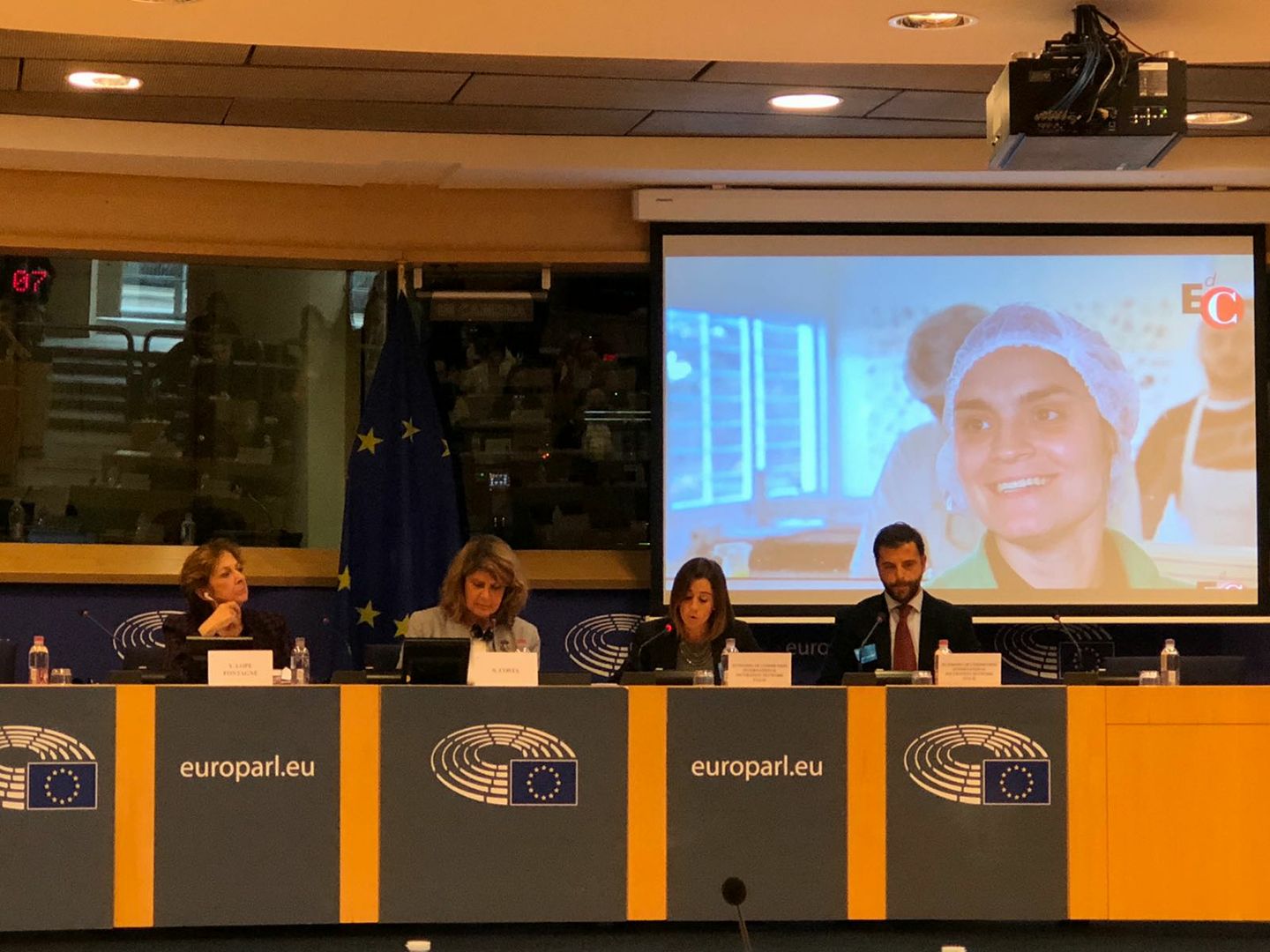 After 26 years since it started (it was 1991, during her visit to São Paulo in Brazil, when Chiara Lubich had an insight of a new economic model) the EoC promotes companies that adhere to the spirit of working with three goals as an objective: reducing poverty and exclusion, train new business men and women in the culture of communion and in developing companies, creating new jobs. Some examples, among many, are these: At Banko Kabayan bank in the Philippines, 85% of clients are micro-entrepreneurs, mostly women, who offer loans, savings, micro insurance, as well as business management courses to promote their business. The “LIA” startup project in the United States aims to reintegrate older persons into the work force by re-using old furniture. DIMACO is an Argentinean company that distributes building materials. Together with other local entrepreneurs and in coordination with public institutions, the group has managed to make the work of over a thousand small producers in the region sustainable. “We are convinced, through our experience,” says Locascio, “that we cannot allow poverty to exist without involving disadvantaged people living in our communities, and wherever possible at workplaces. It is not enough to distribute wealth differently. We need to involve the poor in the creation of wealth.”
After 26 years since it started (it was 1991, during her visit to São Paulo in Brazil, when Chiara Lubich had an insight of a new economic model) the EoC promotes companies that adhere to the spirit of working with three goals as an objective: reducing poverty and exclusion, train new business men and women in the culture of communion and in developing companies, creating new jobs. Some examples, among many, are these: At Banko Kabayan bank in the Philippines, 85% of clients are micro-entrepreneurs, mostly women, who offer loans, savings, micro insurance, as well as business management courses to promote their business. The “LIA” startup project in the United States aims to reintegrate older persons into the work force by re-using old furniture. DIMACO is an Argentinean company that distributes building materials. Together with other local entrepreneurs and in coordination with public institutions, the group has managed to make the work of over a thousand small producers in the region sustainable. “We are convinced, through our experience,” says Locascio, “that we cannot allow poverty to exist without involving disadvantaged people living in our communities, and wherever possible at workplaces. It is not enough to distribute wealth differently. We need to involve the poor in the creation of wealth.”  In order to monitor and disseminate the effects of the EoC in the fight against poverty and inequality, the OPLA observatory on poverty, an international research centre named after Leo Andringa, a Dutch economist who was a pioneer of the Economy of Communion, was born in 2017. OPLA’s research aims to investigate, in particular, the production of “relational goods” linked to EoC activities. “But since we want to deal with the reduction of poverty not only today, but also in the future,” continues the young Argentinean, “the most recent project of the Economy of Communion, called EoC-IIN (Economy of Communion International Incubating Network), contributes to the emergence of new companies with a positive social impact. These are just some inspirational examples that carry a seed of an inclusive economic proposition. We are aware that in order to eradicate poverty, it is necessary to change the rules of a system that generates ever more inequality. It is a challenge that we want, and must, take up with all the other components of society, starting with politicians.”
In order to monitor and disseminate the effects of the EoC in the fight against poverty and inequality, the OPLA observatory on poverty, an international research centre named after Leo Andringa, a Dutch economist who was a pioneer of the Economy of Communion, was born in 2017. OPLA’s research aims to investigate, in particular, the production of “relational goods” linked to EoC activities. “But since we want to deal with the reduction of poverty not only today, but also in the future,” continues the young Argentinean, “the most recent project of the Economy of Communion, called EoC-IIN (Economy of Communion International Incubating Network), contributes to the emergence of new companies with a positive social impact. These are just some inspirational examples that carry a seed of an inclusive economic proposition. We are aware that in order to eradicate poverty, it is necessary to change the rules of a system that generates ever more inequality. It is a challenge that we want, and must, take up with all the other components of society, starting with politicians.”
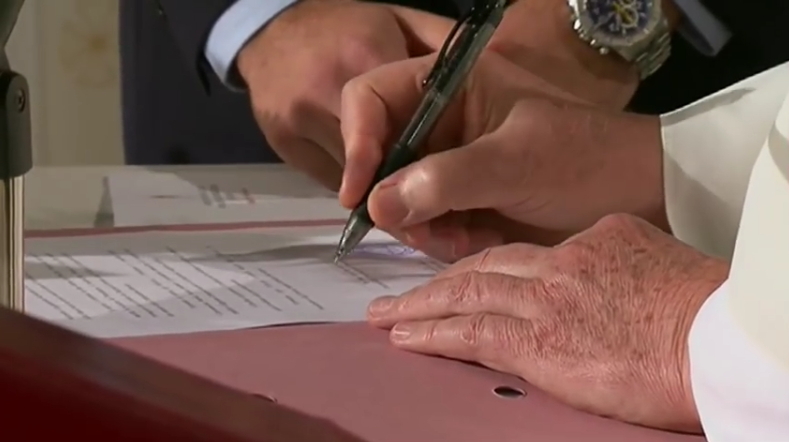
Domenico Mangano
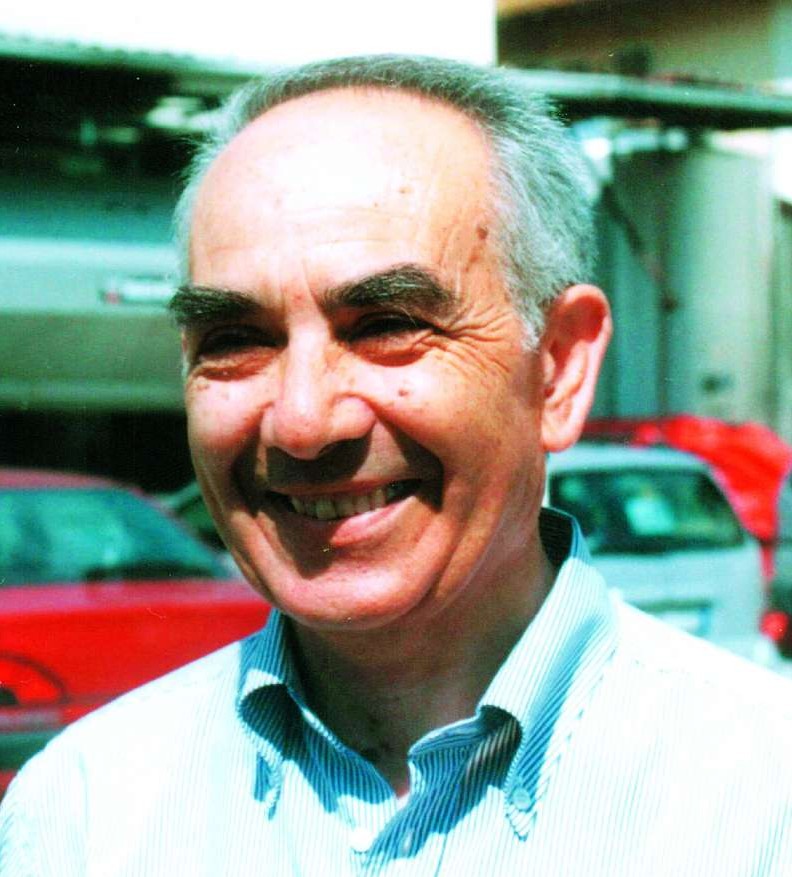 Domenico Mangano (1938-2001) answered God’s call “with readiness, loyalty, continuity, but above all, with an absolute freedom of conscience. He freely chose social commitment, which refined itself into a political commitment. When he met the Focolare Movement, he tried daily to improve his spiritual life by choosing to live “the holy journey” in unity with others. This experience rooted itself deeply in this active and resourceful citizen, committed and combative layman, fiery and pungent politician, true and faithful Christian, that was Domenico”. These words were said by the Hon.Tommaso Sorgi on the death of his “dear friend, a discreet and wise confidant, who was more than a brother”. For many years, Sorgi shared with him “the same yearning to unite heaven and earth and the same ardent passion to convey the provocative gospel message in a tough political situation. Above all, we lived together the birth of the Movement for Unity in Politics, that type of political experience which aims at building universal brotherhood and which was launched in parliament by Igino Giordani, a model for both of us”
Domenico Mangano (1938-2001) answered God’s call “with readiness, loyalty, continuity, but above all, with an absolute freedom of conscience. He freely chose social commitment, which refined itself into a political commitment. When he met the Focolare Movement, he tried daily to improve his spiritual life by choosing to live “the holy journey” in unity with others. This experience rooted itself deeply in this active and resourceful citizen, committed and combative layman, fiery and pungent politician, true and faithful Christian, that was Domenico”. These words were said by the Hon.Tommaso Sorgi on the death of his “dear friend, a discreet and wise confidant, who was more than a brother”. For many years, Sorgi shared with him “the same yearning to unite heaven and earth and the same ardent passion to convey the provocative gospel message in a tough political situation. Above all, we lived together the birth of the Movement for Unity in Politics, that type of political experience which aims at building universal brotherhood and which was launched in parliament by Igino Giordani, a model for both of us” 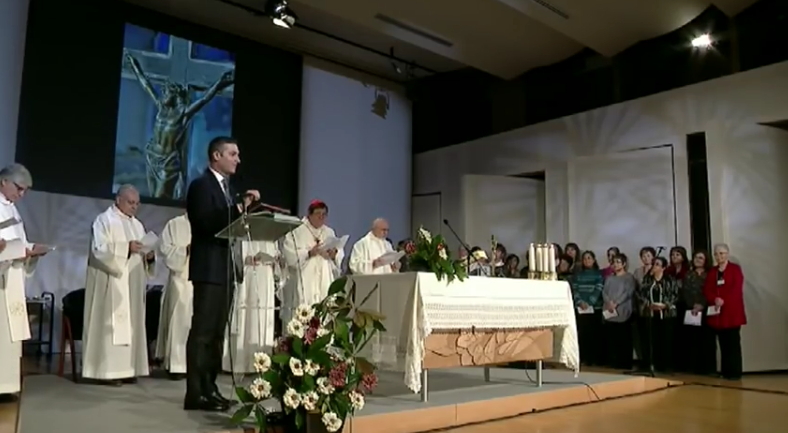 Domenico Mangano was born on February 22,1938 in Anzi, in the province of Potenza. In 1949 his family moved to Viterbo. In 1958, after finishing his high school studies, he managed to succeed in getting a job at the National Institute of Social Security in Pavia. He went to live there, and enrolled as a student-worker at the Faculty of Economics and Commerce. He met Maria Pia when he went back to Viterbo and they got married on August 24, 1966. They had three children: Paola (1968), Giuseppe (1970) and Maria Flora (1972). During these years, Domenico was fully committed to family life, work, university students, trade union, Catholic Action and studies. They were years in which he started his political activity as a public administrator in Viterbo. Domenico met the Focolare Movement in 1974 and together with Maria Pia adhered to its ideals. He was a Volunteer of God, a member of that branch of the Movement where lay people are radically committed to bring the light, that springs from Chiara Lubich’s charism, to all aspects of social life. He was determined “to walk in God‘s way” as indicated by Lubich, and he frequently wrote to her. Lubich remarked that he was a mystic.
Domenico Mangano was born on February 22,1938 in Anzi, in the province of Potenza. In 1949 his family moved to Viterbo. In 1958, after finishing his high school studies, he managed to succeed in getting a job at the National Institute of Social Security in Pavia. He went to live there, and enrolled as a student-worker at the Faculty of Economics and Commerce. He met Maria Pia when he went back to Viterbo and they got married on August 24, 1966. They had three children: Paola (1968), Giuseppe (1970) and Maria Flora (1972). During these years, Domenico was fully committed to family life, work, university students, trade union, Catholic Action and studies. They were years in which he started his political activity as a public administrator in Viterbo. Domenico met the Focolare Movement in 1974 and together with Maria Pia adhered to its ideals. He was a Volunteer of God, a member of that branch of the Movement where lay people are radically committed to bring the light, that springs from Chiara Lubich’s charism, to all aspects of social life. He was determined “to walk in God‘s way” as indicated by Lubich, and he frequently wrote to her. Lubich remarked that he was a mystic.  Domenico died at Viterbo on December 22, 2001. The year before when he was diagnosed with an incurable tumour, he knew it was time “to end the first long chapter of life by entrusting it to God’s merciful heart, and open another one that is completely new”. This was what he wrote to Chiara to share his situation. With the official Edict dated March 9, 2017, Mons. Marcello Semeraro, Bishop of Albano accepted the petition to allow the initialization of the Cause for the Beatification and Canonization of Domenico Mangano, presented by the postulator Waldery Hilgeman, and invited the ecclesial community to pronounce itself on the fame of holiness and signs of the new Servant of God. See also: Domenico Mangano
Domenico died at Viterbo on December 22, 2001. The year before when he was diagnosed with an incurable tumour, he knew it was time “to end the first long chapter of life by entrusting it to God’s merciful heart, and open another one that is completely new”. This was what he wrote to Chiara to share his situation. With the official Edict dated March 9, 2017, Mons. Marcello Semeraro, Bishop of Albano accepted the petition to allow the initialization of the Cause for the Beatification and Canonization of Domenico Mangano, presented by the postulator Waldery Hilgeman, and invited the ecclesial community to pronounce itself on the fame of holiness and signs of the new Servant of God. See also: Domenico Mangano
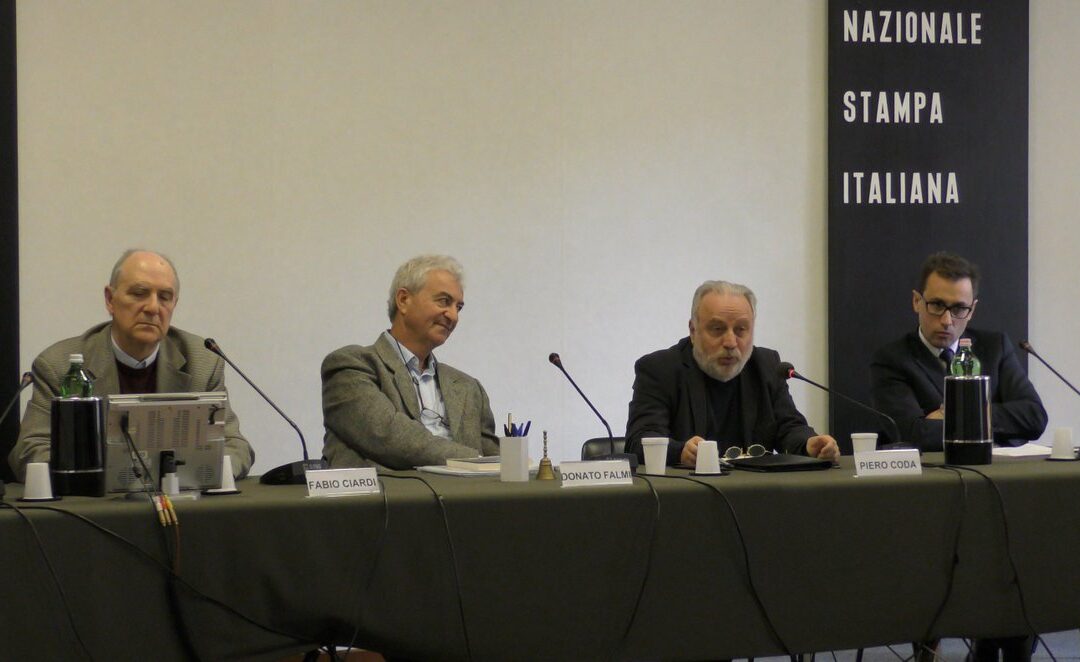
The Works of Chiara Lubich
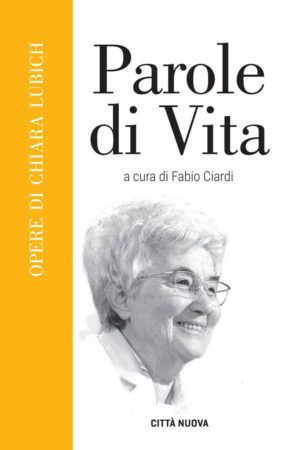 “I never wrote a book,” Chiara Lubich said in 1995 when she received the Author of the Year Award from the Catholic Publishers and Booksellers Union (UELCI), “even though many books bear my name.” There are many ways to write a book, and the way Chiara did it is truly a literary event. Her Italian biography lists 58 titles. Others appear only in non-Italian editions. Hundreds of articles and thousands of letters, along with documentary material have been collected by the Chiara Lubich Centre, which was established after her death to keep her memory alive. The writings scan her entire life, from 1920 in Trent where she was born, to Rocca di Papa where she died in 2008. Her first book, Meditations, has 27 Italian editions, 28 translations and a million printed copies. Meditations was the book that gave a start to Città Nuova Publishers in Rome, Italy (1959). The director of the Works of Chiara Lubich Series, Donato Falmi, commented: “In order to overcome the episodic manner in which Chiara’s writings were presented by Città nuova, a systematic publication project was begun in 2012,” which will not produce an opera omnia, but will classify the writings according to literary genres, which are organized in three blocks: the woman (the autobiographical element recovered not only in diaries and letters, but also in mystical writings); her spiritual path (found especially in texts of meditations, in the Words of Life, in texts where here spiritual, theological and cultural thought is developed); and the Work (the speeches in civil and ecclesiastical contexts, The Statutes and the Rules). Fourteen volumes are planned, each with its own large introduction that will provide a key to understanding the complexity of writings that the Focolare foundress left to us as her spiritual legacy.
“I never wrote a book,” Chiara Lubich said in 1995 when she received the Author of the Year Award from the Catholic Publishers and Booksellers Union (UELCI), “even though many books bear my name.” There are many ways to write a book, and the way Chiara did it is truly a literary event. Her Italian biography lists 58 titles. Others appear only in non-Italian editions. Hundreds of articles and thousands of letters, along with documentary material have been collected by the Chiara Lubich Centre, which was established after her death to keep her memory alive. The writings scan her entire life, from 1920 in Trent where she was born, to Rocca di Papa where she died in 2008. Her first book, Meditations, has 27 Italian editions, 28 translations and a million printed copies. Meditations was the book that gave a start to Città Nuova Publishers in Rome, Italy (1959). The director of the Works of Chiara Lubich Series, Donato Falmi, commented: “In order to overcome the episodic manner in which Chiara’s writings were presented by Città nuova, a systematic publication project was begun in 2012,” which will not produce an opera omnia, but will classify the writings according to literary genres, which are organized in three blocks: the woman (the autobiographical element recovered not only in diaries and letters, but also in mystical writings); her spiritual path (found especially in texts of meditations, in the Words of Life, in texts where here spiritual, theological and cultural thought is developed); and the Work (the speeches in civil and ecclesiastical contexts, The Statutes and the Rules). Fourteen volumes are planned, each with its own large introduction that will provide a key to understanding the complexity of writings that the Focolare foundress left to us as her spiritual legacy. 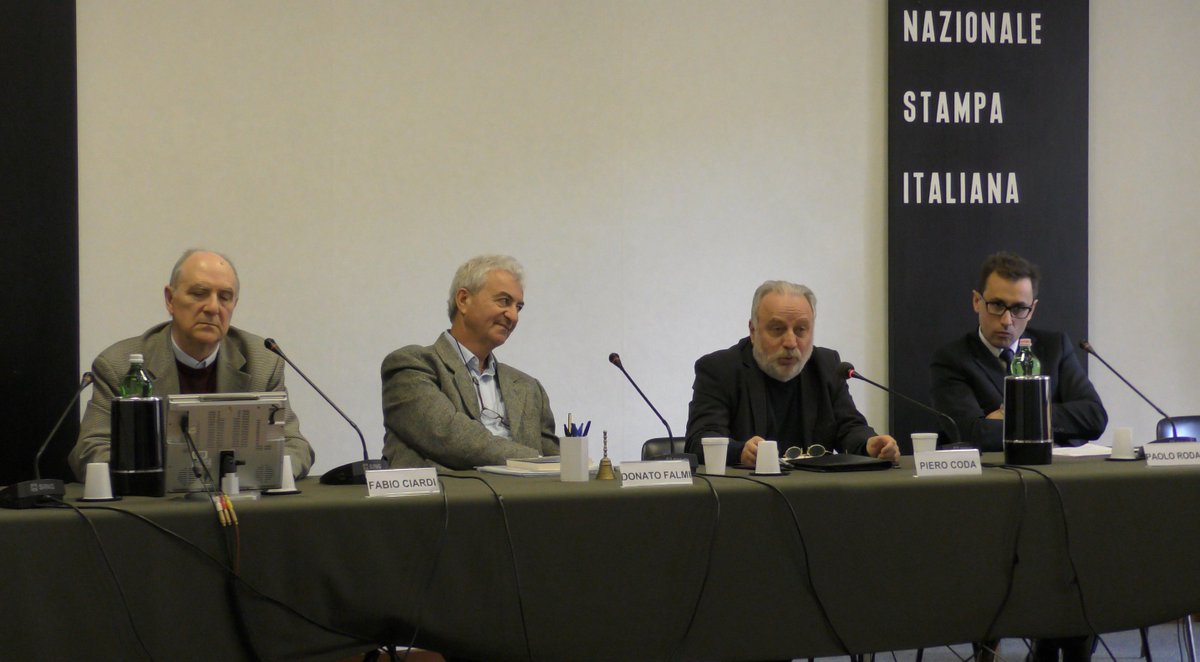 “It is quite a timely message,” commented Piero Coda, Rector of Sophia University Institute and member of the series’ scientific committee: There is no aspect of human life, or country where the leaven of this charism has not fermented. And yet,” he notes, “Chiara Lubich is still a widely unknown woman,” to discover and appreciate, even though her story and spirituality have anticipated many cultural paradigms that later materialized. “I was also in New York, with her, at the Malcolm X Mosque when she met with Imam W.D. Mohammed. There was a rabbi sitting beside me and it all seemed impossible to him. But she made it happen.” The literary production contained in the first volume is rather special. Compiled by Dr Fabio Ciardi, professor of Theology of Consecrated Life at the Claretianum Rome, her words are within the grasp of everyone, at times comments on sentences taken from the Gospels to be put into practice. These were first printed on handwritten leaflets, then mimeographed and, finally, printed in an ever growing number of copies. The Words of Life, with their simplicity and directness, have brought about a rediscovery of God’s Word in the twentieth century. In the experience of Chiara Lubich and her first companions, the Scriptures returned to being accessible to all, the humble and the simple, the educated and important, the children and the adults, the laity as well as to the consecrated. One can also discern prophetic signs in this of the universal call to holiness that was proclaimed many years later by the Second Vatican Council. The present edition, compiled by Fabio Ciardi, spans the period between 1943 and 2006. It is hoped that this monumental effort by Città Nuova and the Chiara Lubich Centre will be reflected in many other languages and cultural settings.
“It is quite a timely message,” commented Piero Coda, Rector of Sophia University Institute and member of the series’ scientific committee: There is no aspect of human life, or country where the leaven of this charism has not fermented. And yet,” he notes, “Chiara Lubich is still a widely unknown woman,” to discover and appreciate, even though her story and spirituality have anticipated many cultural paradigms that later materialized. “I was also in New York, with her, at the Malcolm X Mosque when she met with Imam W.D. Mohammed. There was a rabbi sitting beside me and it all seemed impossible to him. But she made it happen.” The literary production contained in the first volume is rather special. Compiled by Dr Fabio Ciardi, professor of Theology of Consecrated Life at the Claretianum Rome, her words are within the grasp of everyone, at times comments on sentences taken from the Gospels to be put into practice. These were first printed on handwritten leaflets, then mimeographed and, finally, printed in an ever growing number of copies. The Words of Life, with their simplicity and directness, have brought about a rediscovery of God’s Word in the twentieth century. In the experience of Chiara Lubich and her first companions, the Scriptures returned to being accessible to all, the humble and the simple, the educated and important, the children and the adults, the laity as well as to the consecrated. One can also discern prophetic signs in this of the universal call to holiness that was proclaimed many years later by the Second Vatican Council. The present edition, compiled by Fabio Ciardi, spans the period between 1943 and 2006. It is hoped that this monumental effort by Città Nuova and the Chiara Lubich Centre will be reflected in many other languages and cultural settings.
See video on Rome Reports (Vatican news agency) https://youtu.be/8RWX3ugmnh8
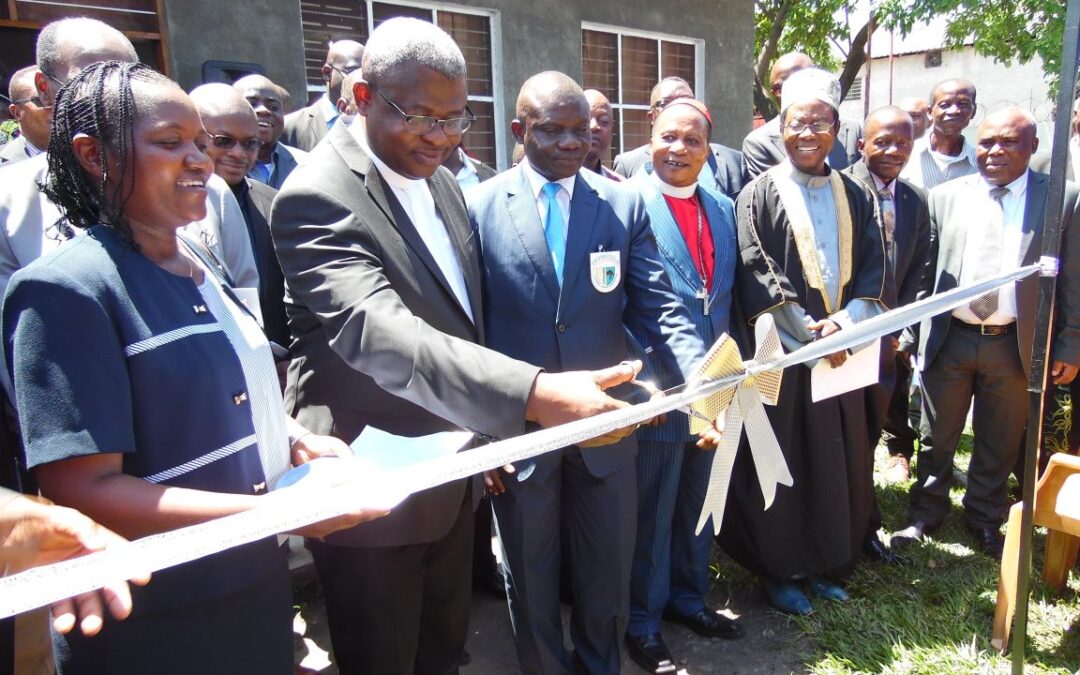
A School For Leaders of Communion
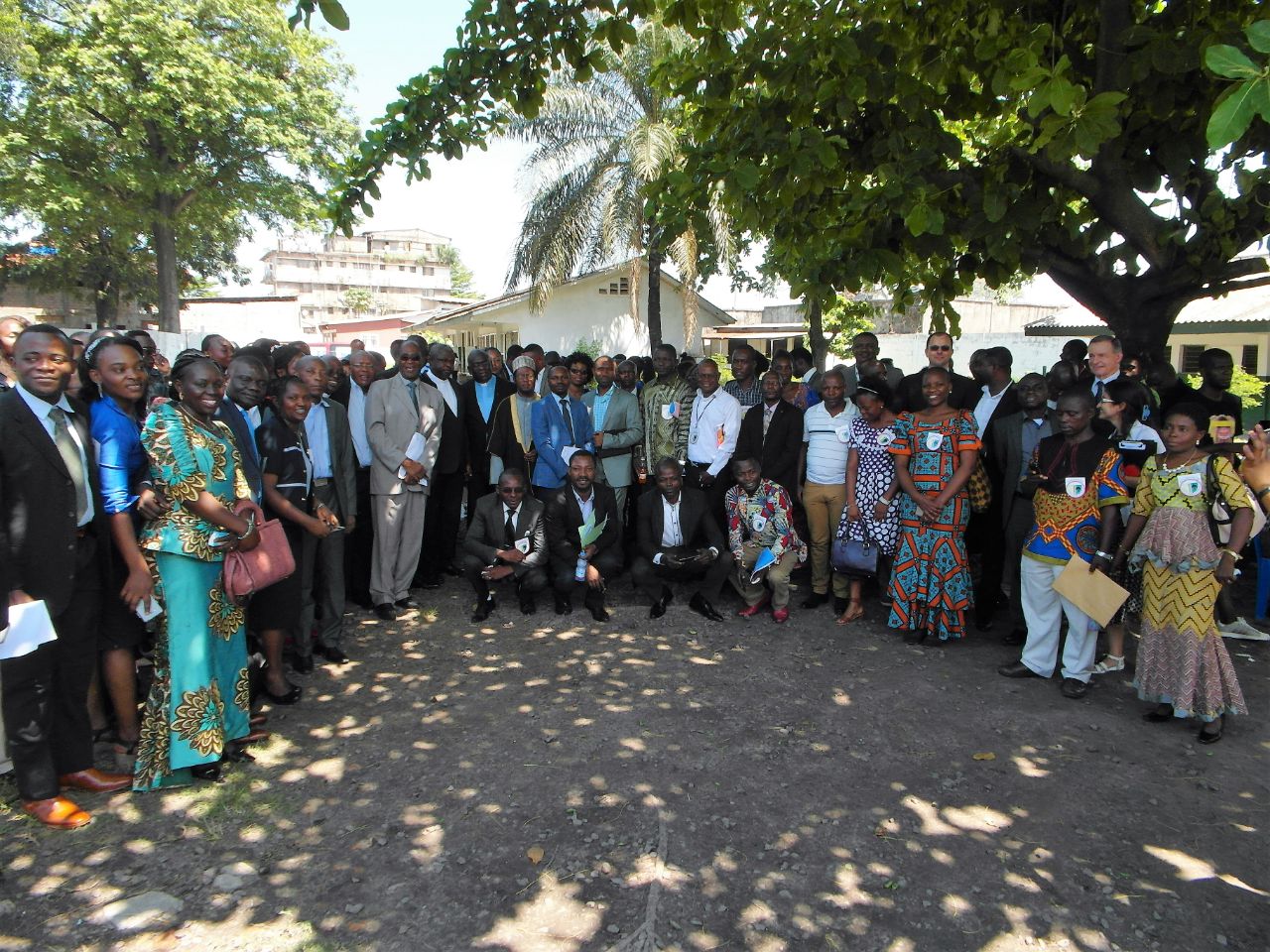 The political and social context is very dangerous and the per capita income is among the lowest in the world as pressure from international powers is being placed on the enormous natural resources of the region. But there is also the echo of the great African leaders from the twentieth century, from Nkruah to Senghor, from Lumumba to Nyerere that still resonates like a warning to leave the past behind and set great goals that “always seem impossible until done” (Mandela). It was in that context that on November 4th of last year the Ecoforleaders School of Higher Training in Communion Leadership was inaugurated in Kinshasa, Democratic Republic of the Congo in the presence of several political, diplomatic, academic ((among whom the Rectors of the Catholic University and the University of Mapon, and the two Emeritus Rectors of the Kasangani University and the National Pedagogy), Christian and Muslim religious leaders in an attempt to lift up a hope for openness in that African country. It all began with a group of African students who wondered how they could offer themselves for the building of a new Africa. Now they are working with the support of Sophia University Institute and the Focolare’s International Centre of the Movement for Unity in Politics.
The political and social context is very dangerous and the per capita income is among the lowest in the world as pressure from international powers is being placed on the enormous natural resources of the region. But there is also the echo of the great African leaders from the twentieth century, from Nkruah to Senghor, from Lumumba to Nyerere that still resonates like a warning to leave the past behind and set great goals that “always seem impossible until done” (Mandela). It was in that context that on November 4th of last year the Ecoforleaders School of Higher Training in Communion Leadership was inaugurated in Kinshasa, Democratic Republic of the Congo in the presence of several political, diplomatic, academic ((among whom the Rectors of the Catholic University and the University of Mapon, and the two Emeritus Rectors of the Kasangani University and the National Pedagogy), Christian and Muslim religious leaders in an attempt to lift up a hope for openness in that African country. It all began with a group of African students who wondered how they could offer themselves for the building of a new Africa. Now they are working with the support of Sophia University Institute and the Focolare’s International Centre of the Movement for Unity in Politics. 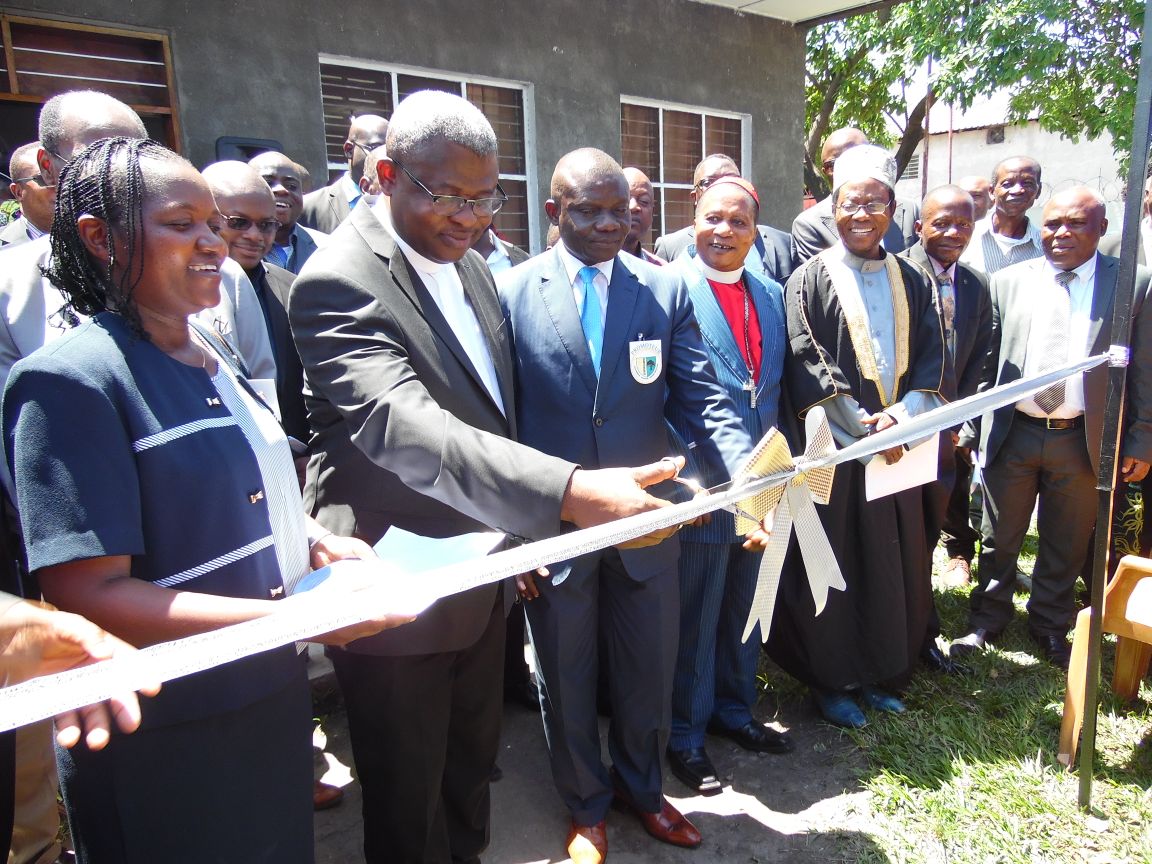 The Secretary of the Bishops Conference of the Democratic Republic of the Congo was invited to cut the ribbon, a man know for having conducted the dialogue between politicians of the majority and opposition leaders during the election controversy that linked the presidential election date to the next census. The Secretary remains a point of encounter between the parties until this day. Five students will begin courses given by a faculty that includes three university rectors and several tutors. This is not an isolated initiative, because the School is inserted into a broader project already presented at UNESCO, a project of formation in a leadership style inspired by universal brotherhood, which include the training of tutors and professors in Nairobi next January. The project is of interest to the whole East of Africa and will last for three years. Afterwards, it will be expanded to other regions of the continent. See also: News Repubblica Democratica del Congo
The Secretary of the Bishops Conference of the Democratic Republic of the Congo was invited to cut the ribbon, a man know for having conducted the dialogue between politicians of the majority and opposition leaders during the election controversy that linked the presidential election date to the next census. The Secretary remains a point of encounter between the parties until this day. Five students will begin courses given by a faculty that includes three university rectors and several tutors. This is not an isolated initiative, because the School is inserted into a broader project already presented at UNESCO, a project of formation in a leadership style inspired by universal brotherhood, which include the training of tutors and professors in Nairobi next January. The project is of interest to the whole East of Africa and will last for three years. Afterwards, it will be expanded to other regions of the continent. See also: News Repubblica Democratica del Congo

